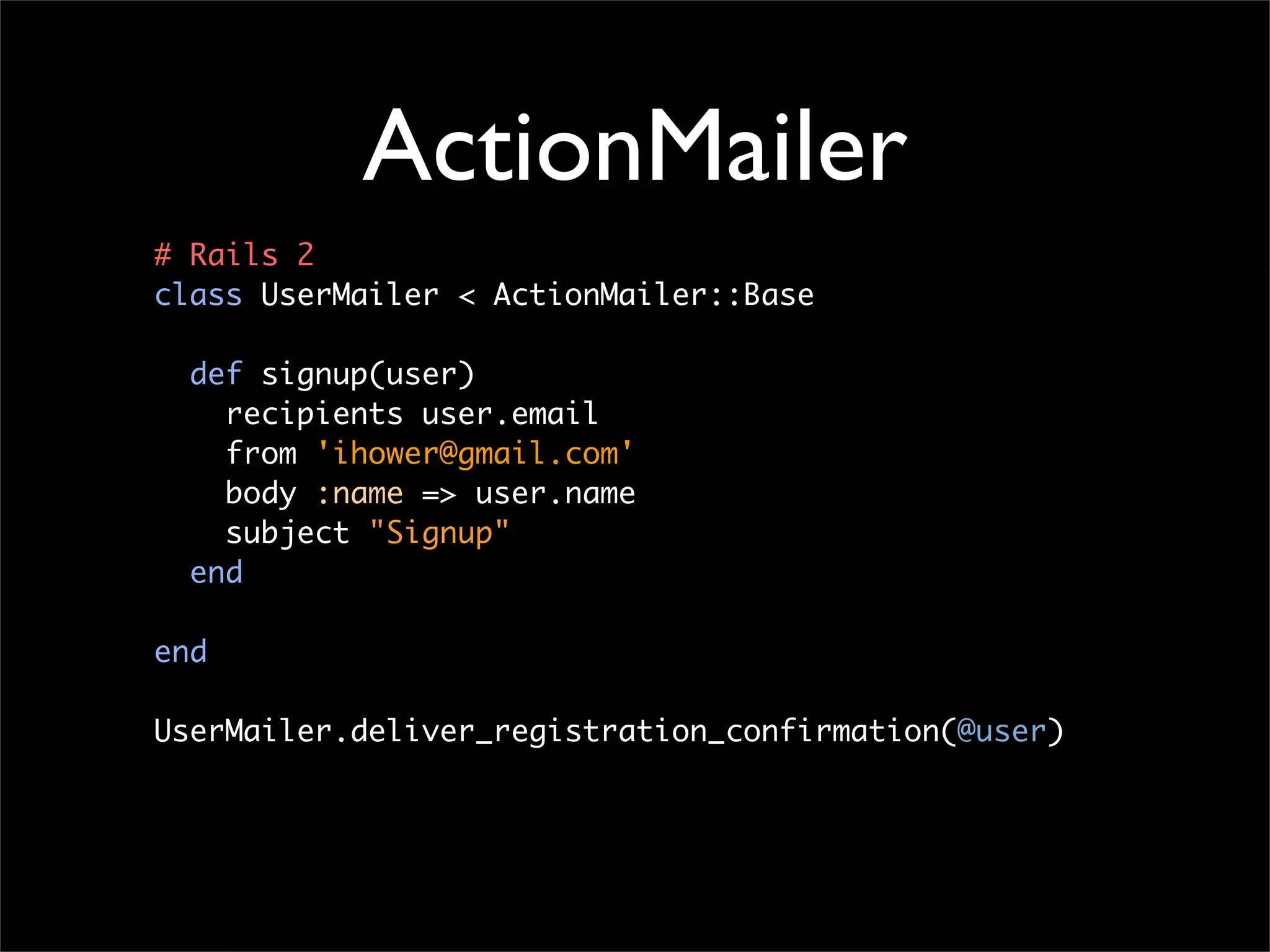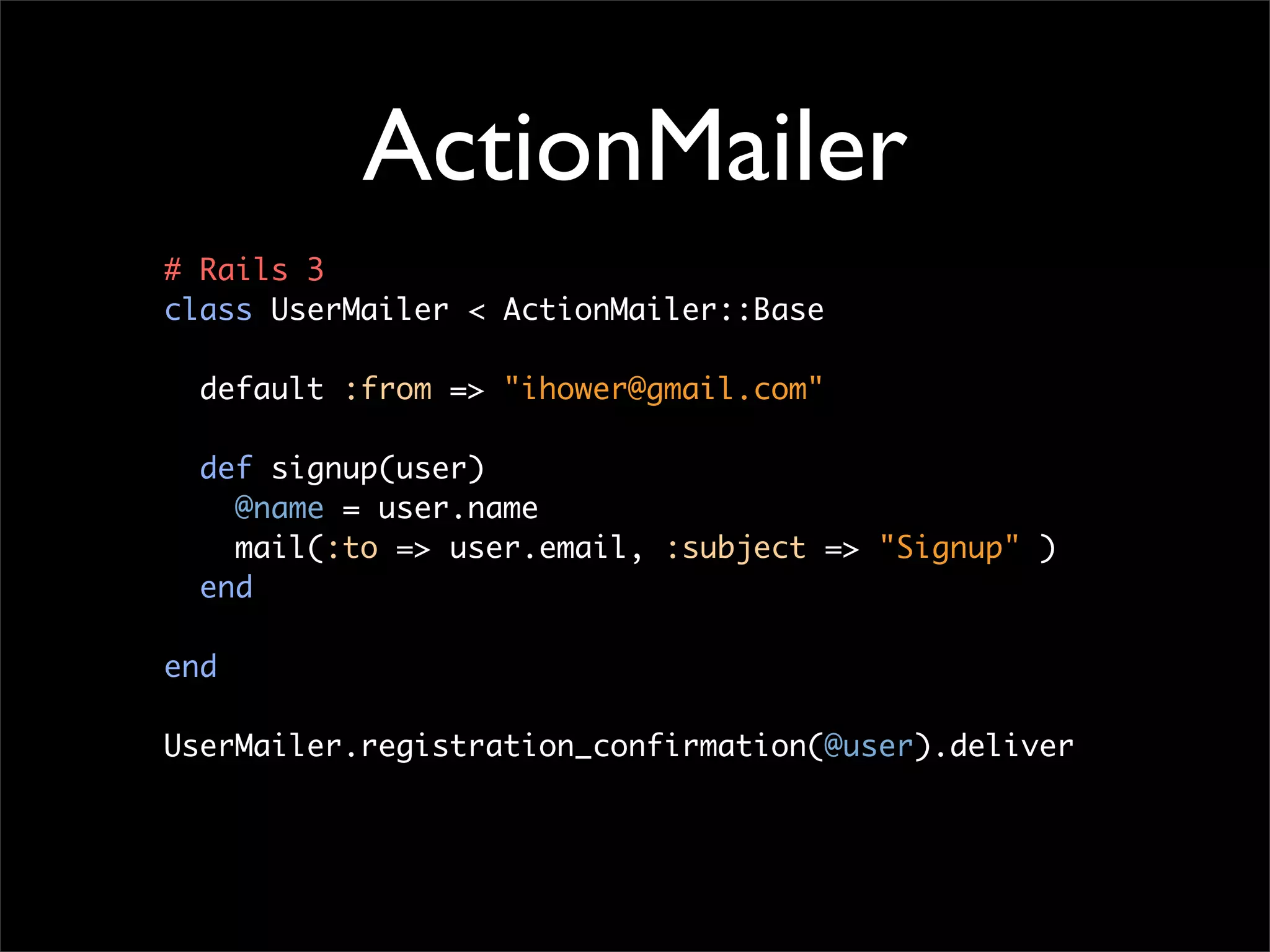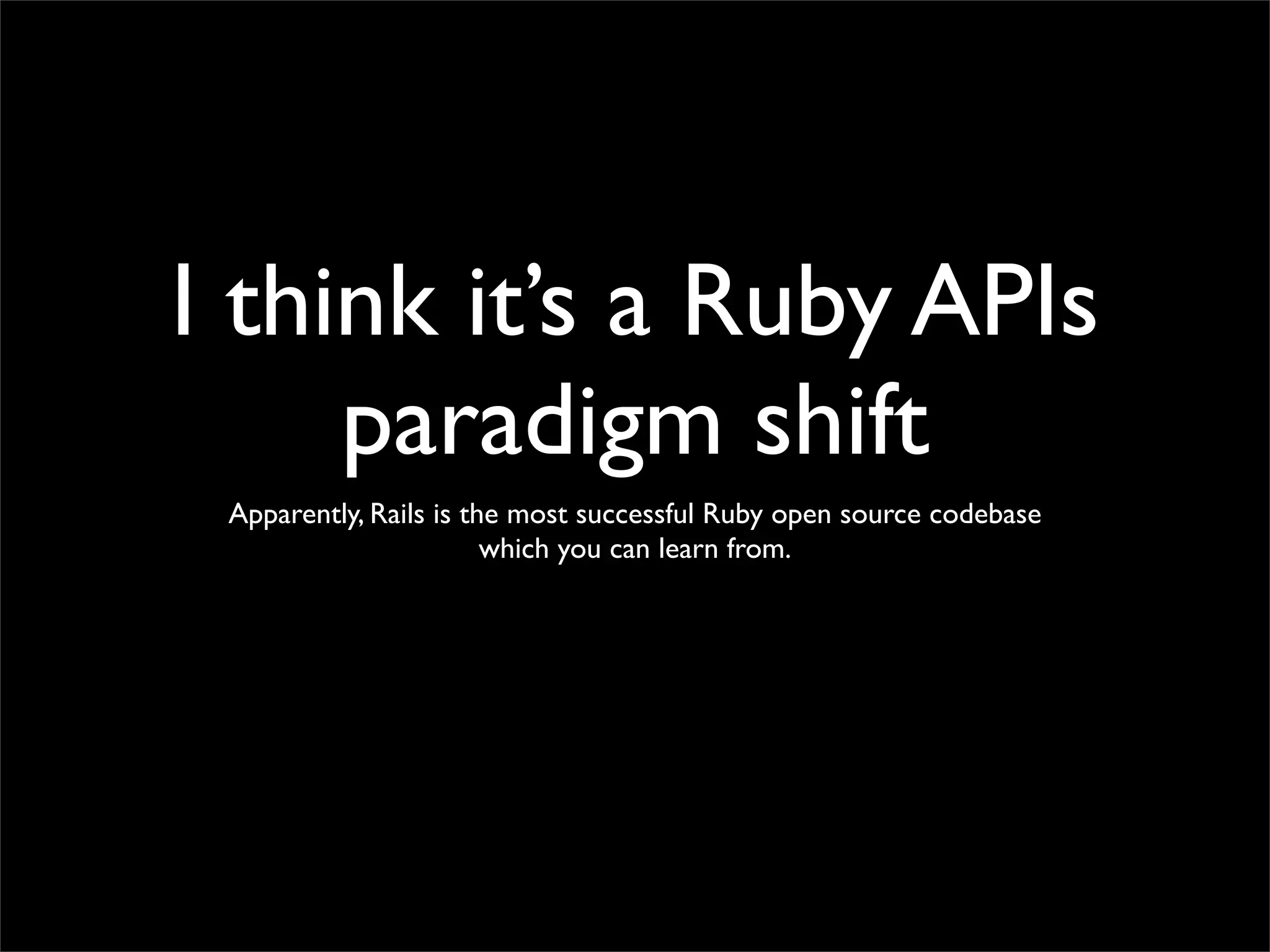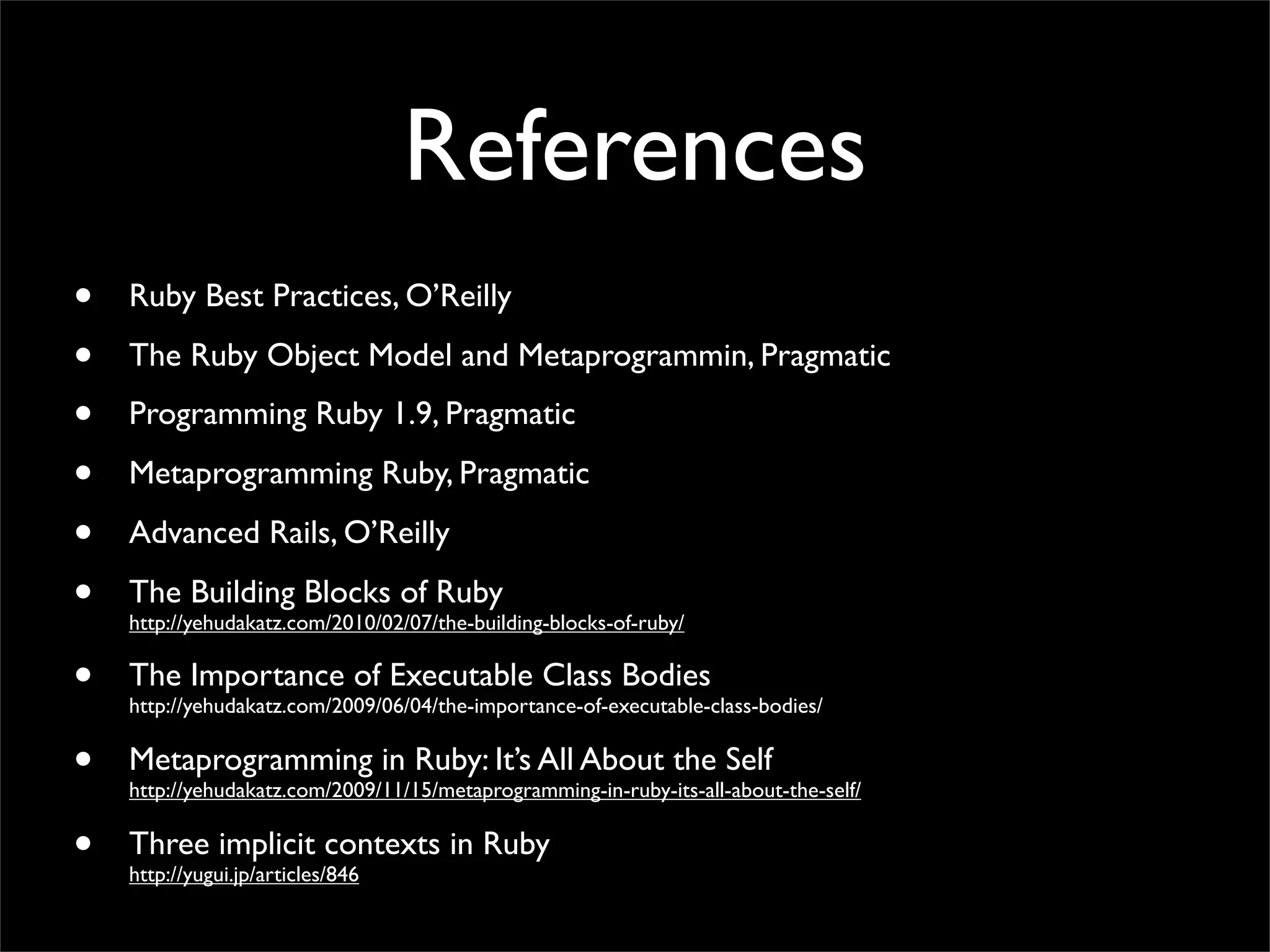The document provides techniques for designing beautiful Ruby APIs. It discusses 10 techniques: 1) argument processing, 2) code blocks, 3) module, 4) method_missing, 5) const_missing, 6) method chaining, 7) core extension, 8) class macro, 9) instance_eval, and 10) Class.new. For each technique, it provides examples of how it can be implemented and used to create clean, readable APIs in Ruby. It also includes a sub-talk on Ruby's object model and how metaprogramming works.

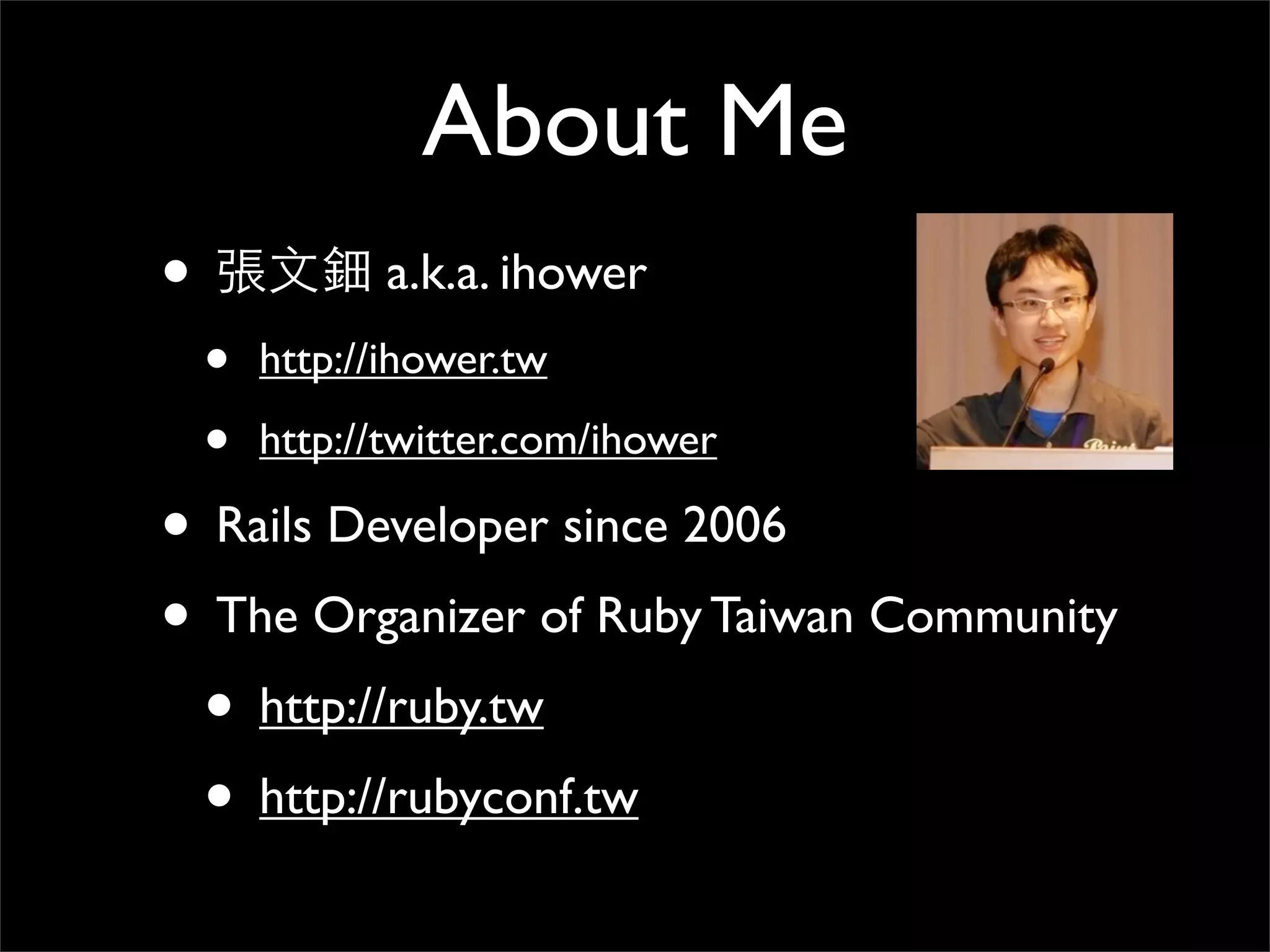
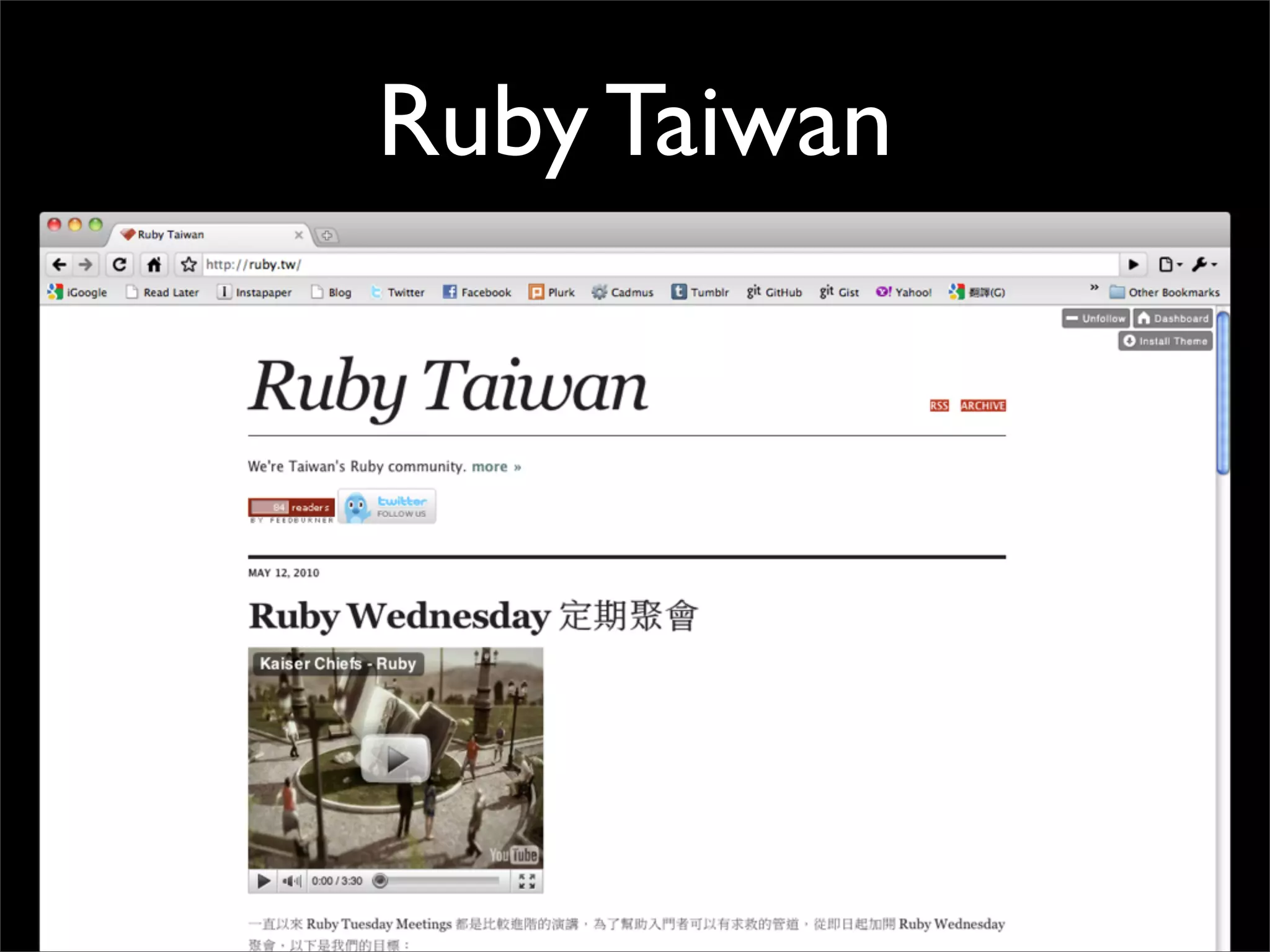

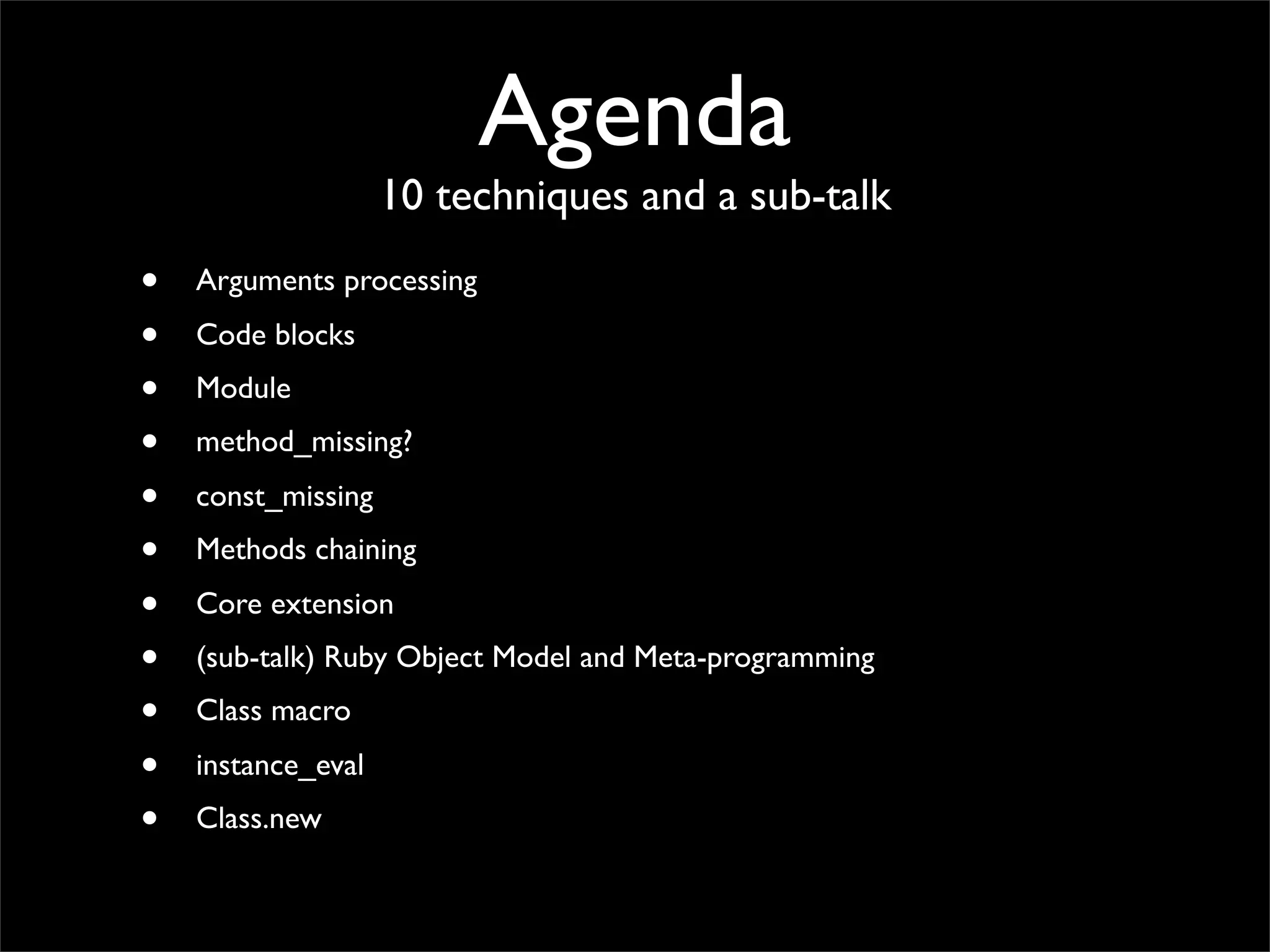
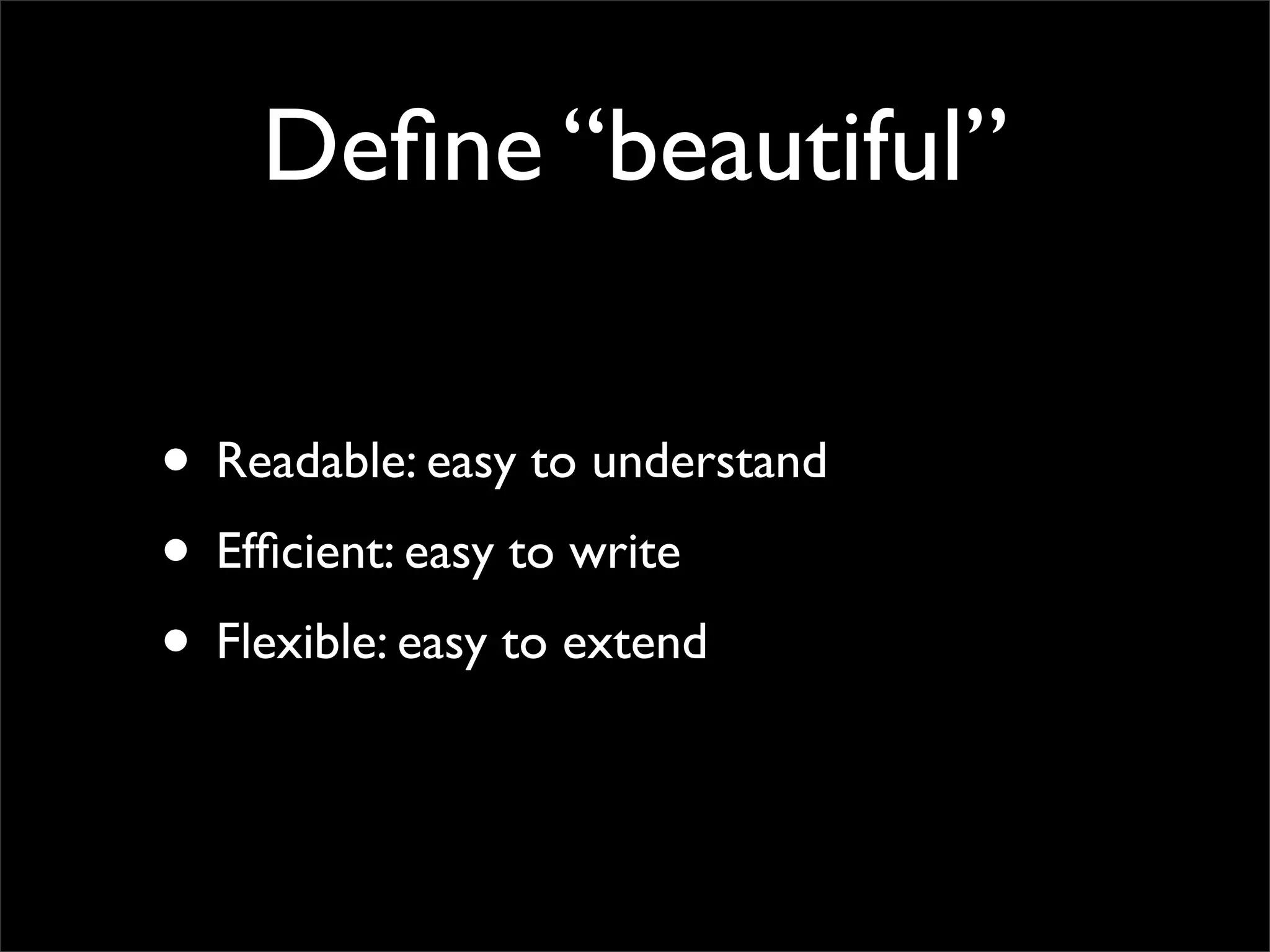

![Pseudo-Keyword Arguments def blah(options) puts options[:foo] puts options[:bar] end blah(:foo => "test", :bar => "test")](https://image.slidesharecdn.com/designing-ruby-apis-100424202457-phpapp01/75/Designing-Ruby-APIs-8-2048.jpg)
![Treating Arguments as an Array def sum(*args) puts args[0] puts args[1] puts args[2] puts args[3] end sum(1,2,3) # 1 # 2 # 3 # nil](https://image.slidesharecdn.com/designing-ruby-apis-100424202457-phpapp01/75/Designing-Ruby-APIs-9-2048.jpg)
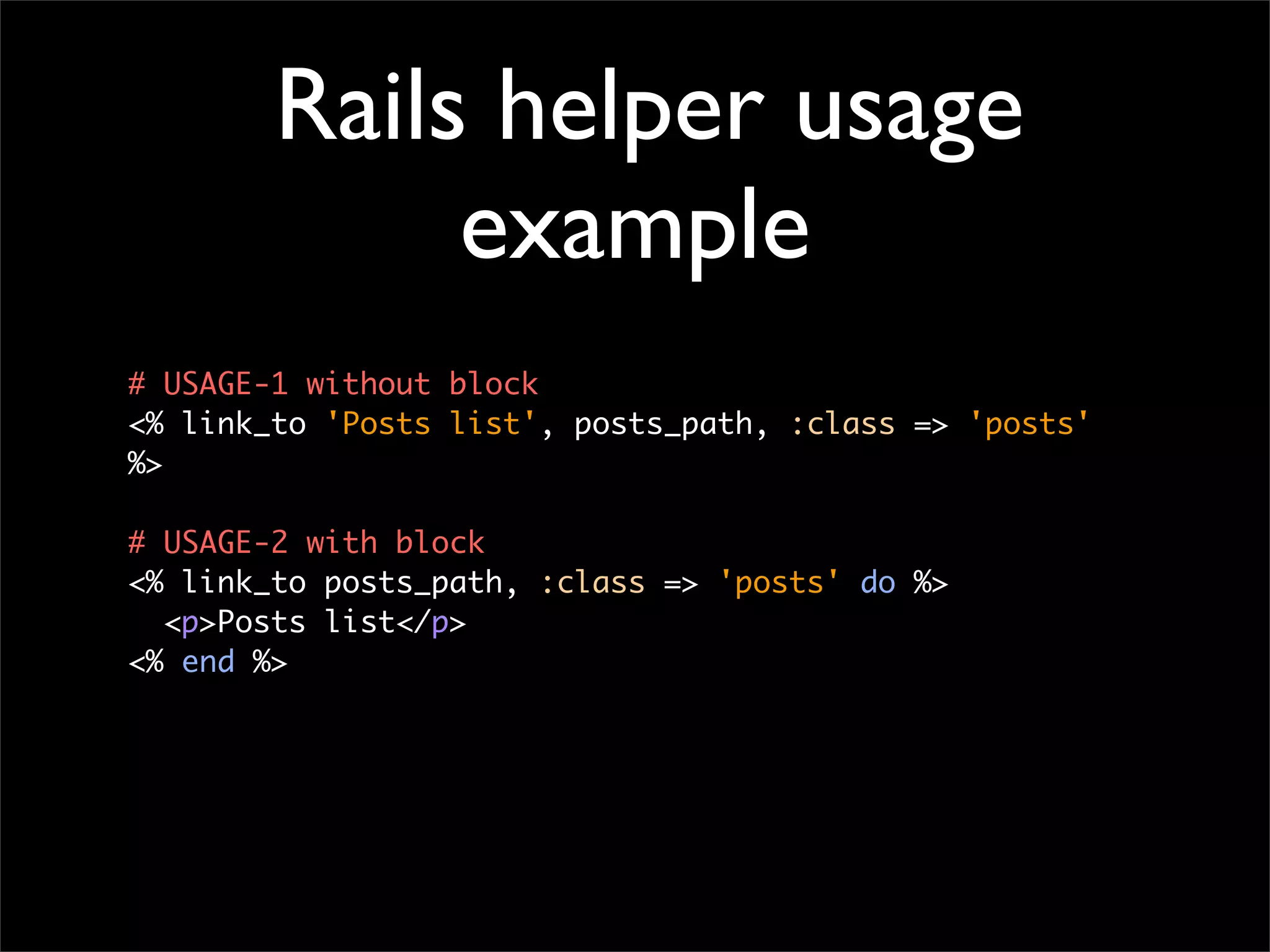
![# Rails3's source code def link_to(*args, &block) if block_given? options = args.first || {} html_options = args.second link_to(capture(&block), options, html_options) else name = args[0] options = args[1] || {} html_options = args[2] html_options = convert_options_to_data_attributes(options, html_options) url = url_for(options) if html_options html_options = html_options.stringify_keys href = html_options['href'] tag_options = tag_options(html_options) else tag_options = nil end href_attr = "href="#{url}"" unless href "<a #{href_attr}#{tag_options}>#{ERB::Util.h(name || url)}</a>".html_safe end end](https://image.slidesharecdn.com/designing-ruby-apis-100424202457-phpapp01/75/Designing-Ruby-APIs-11-2048.jpg)
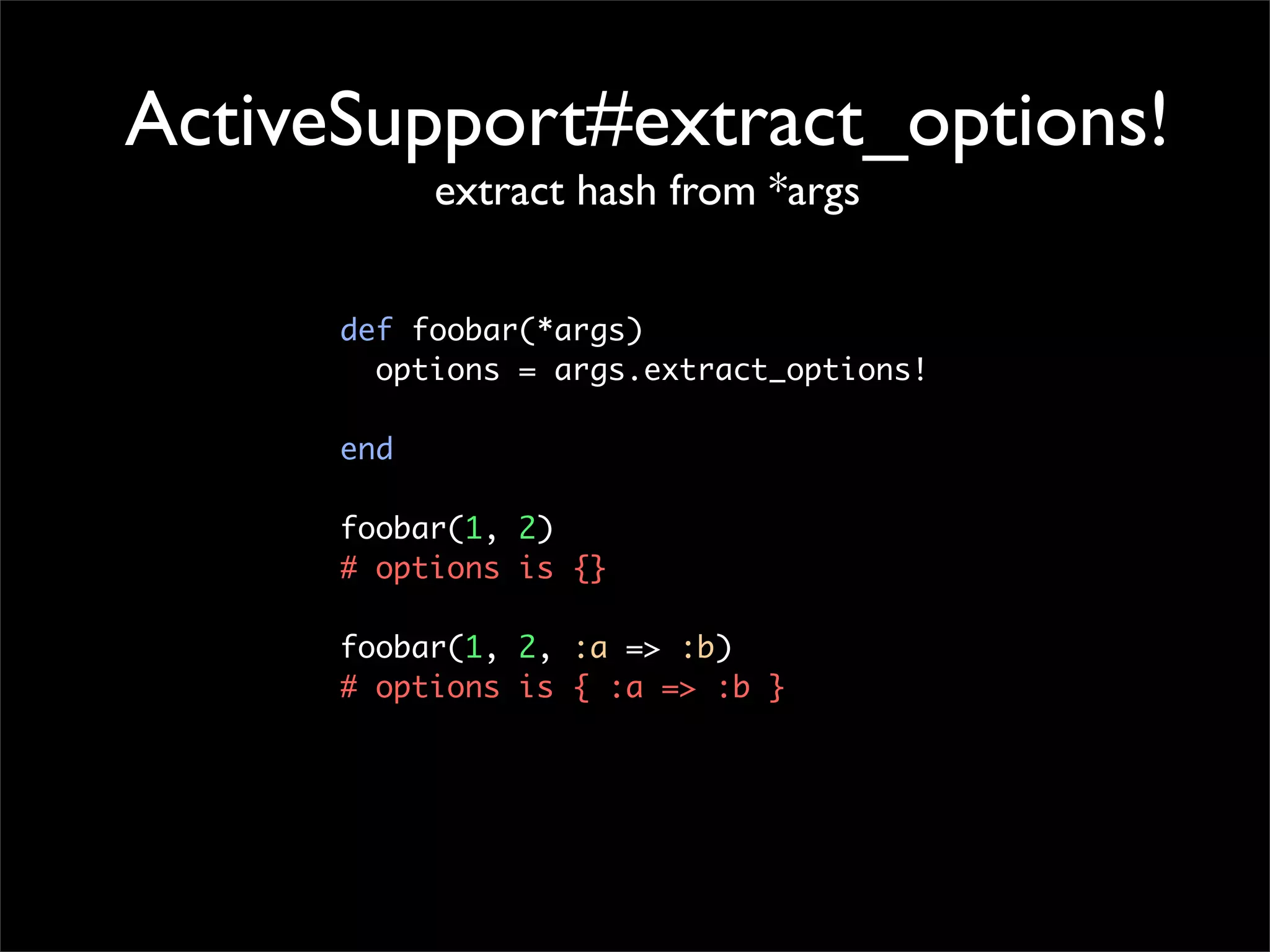

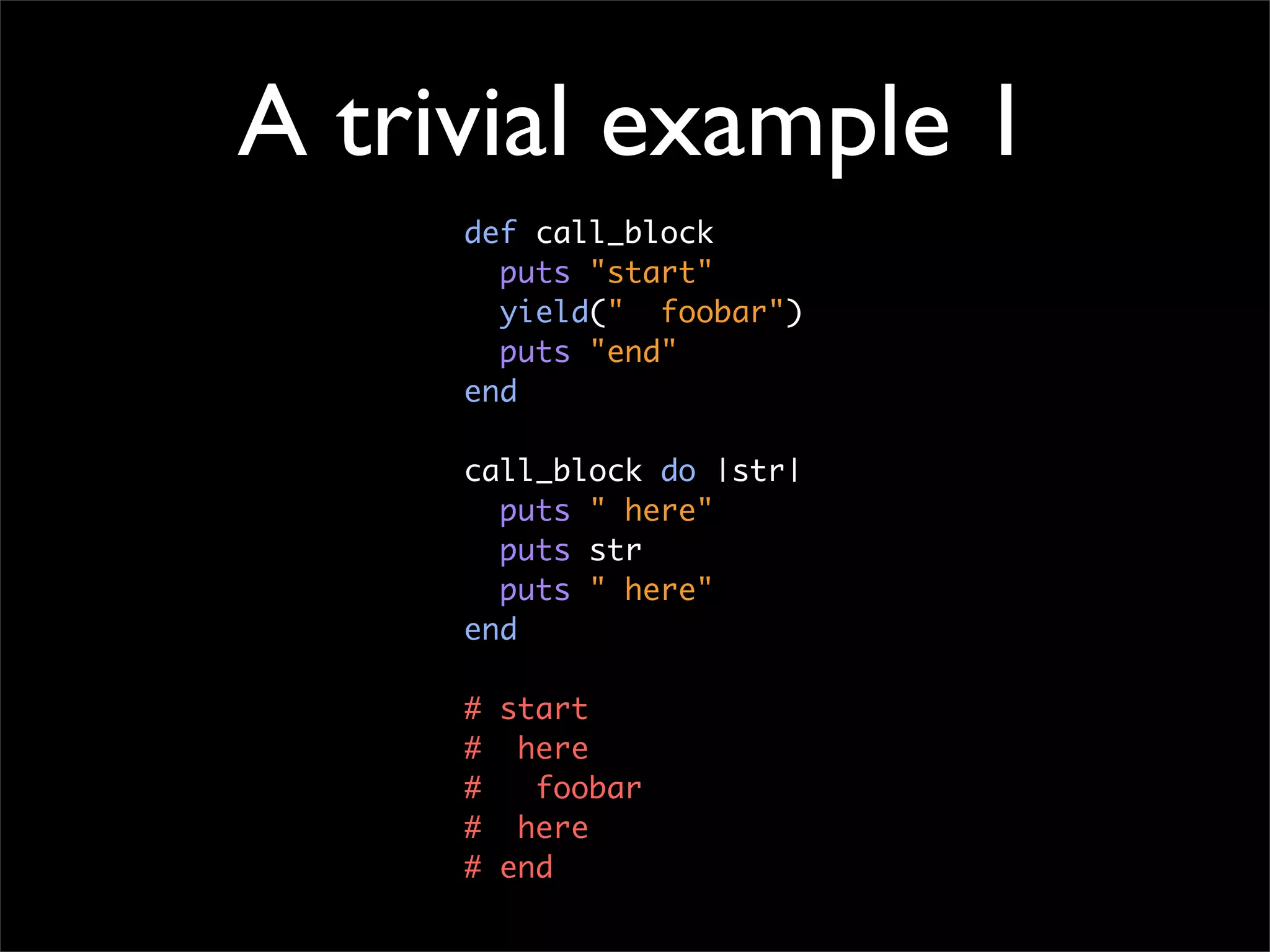
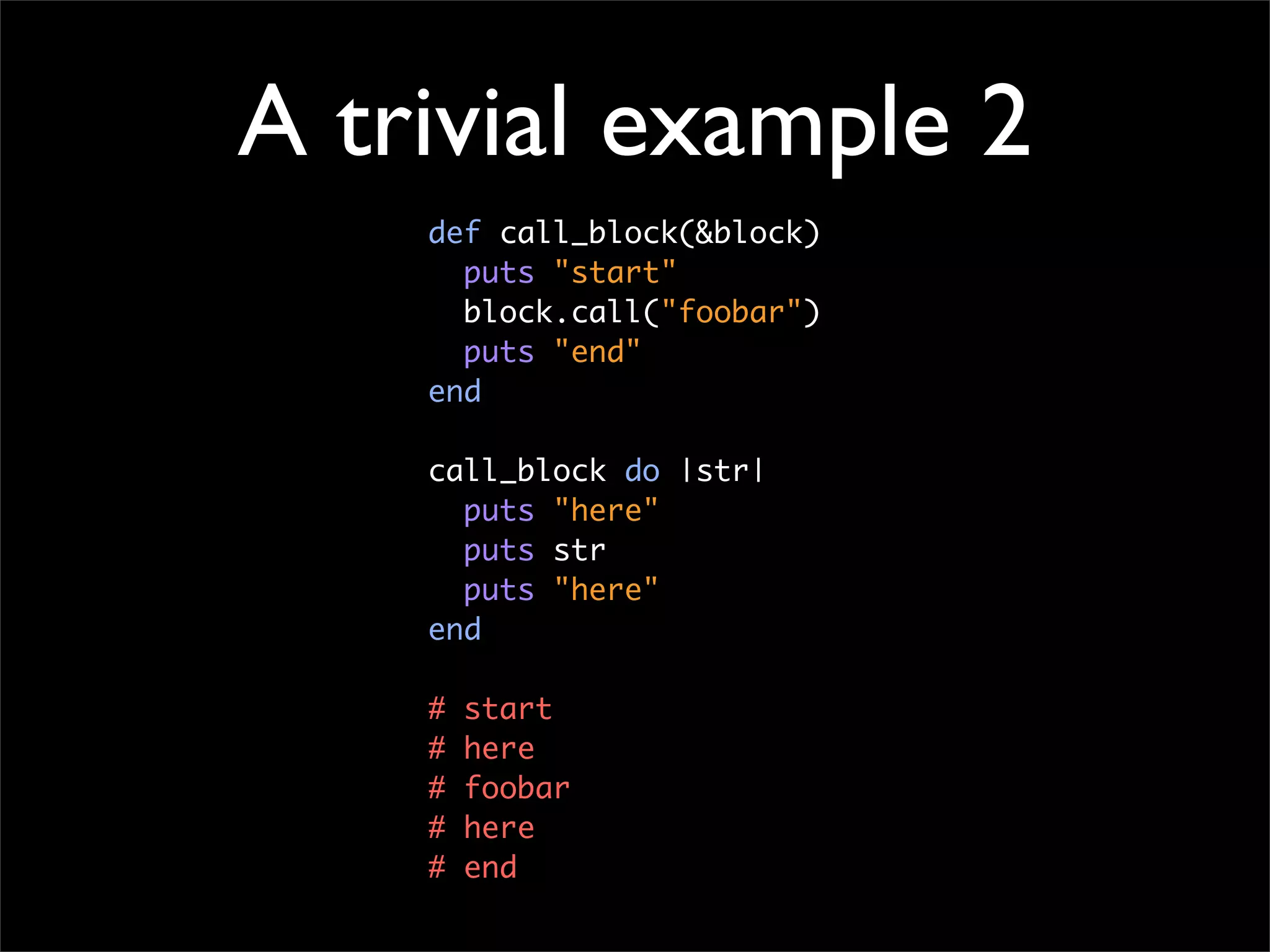
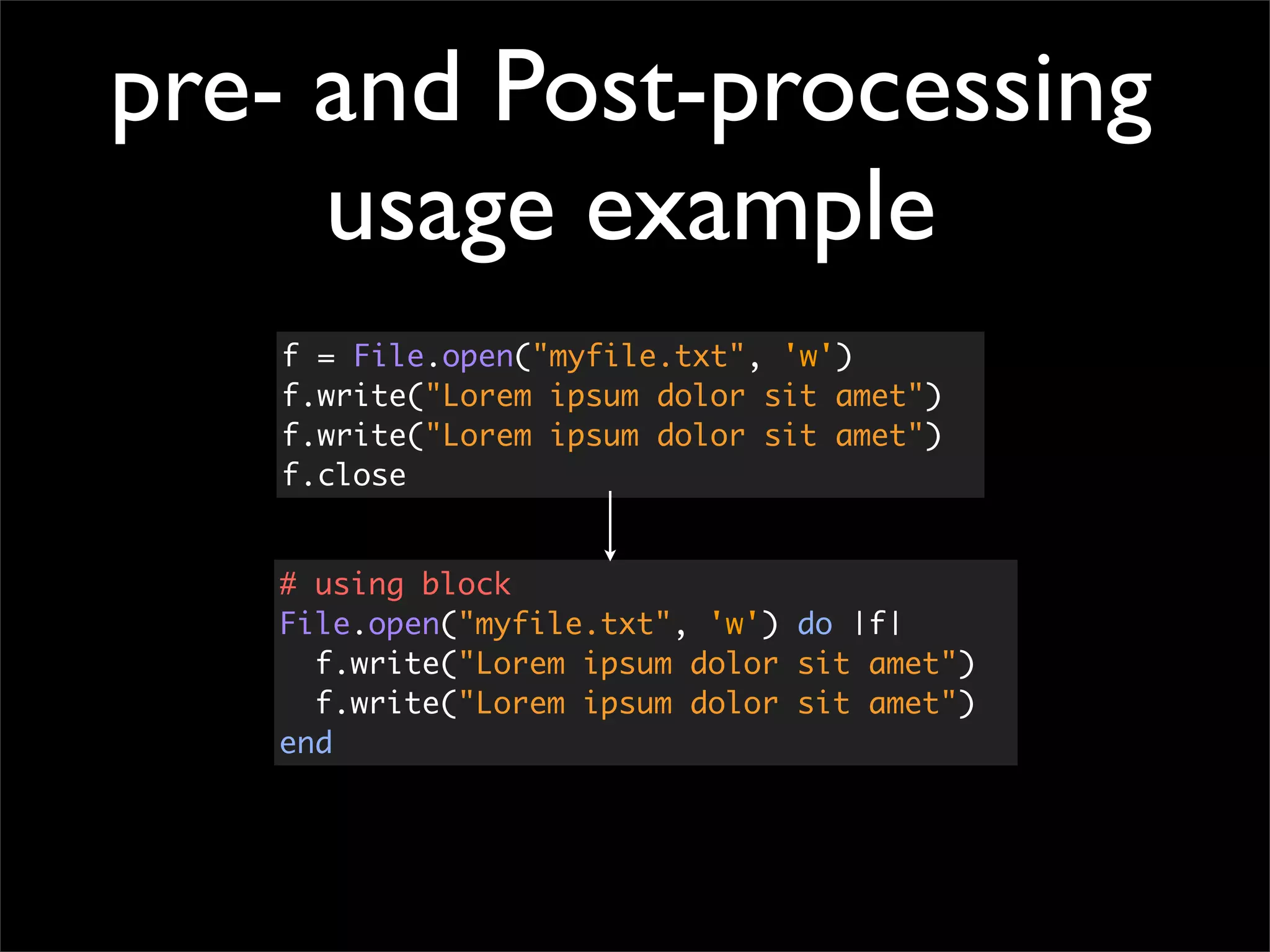
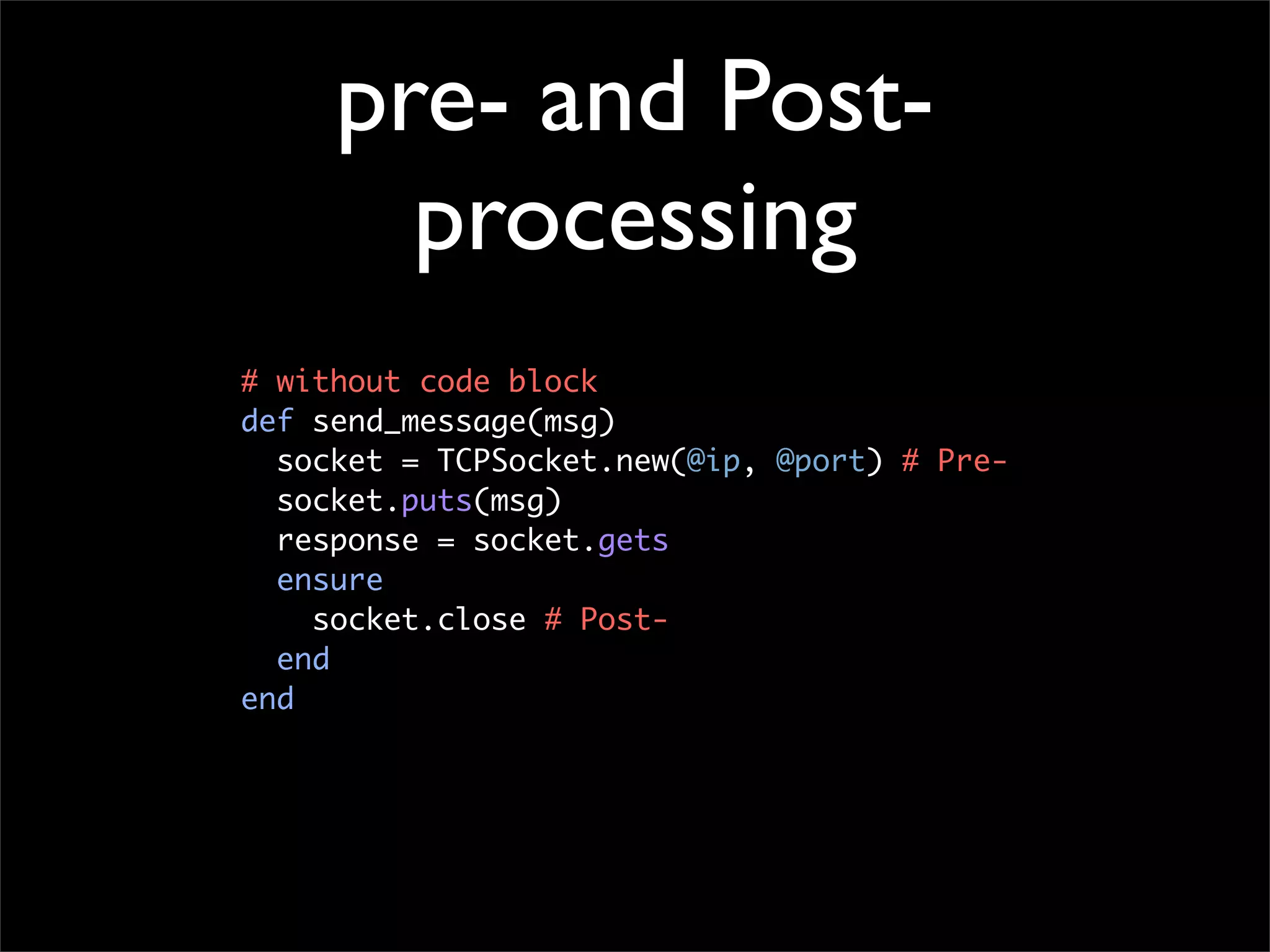
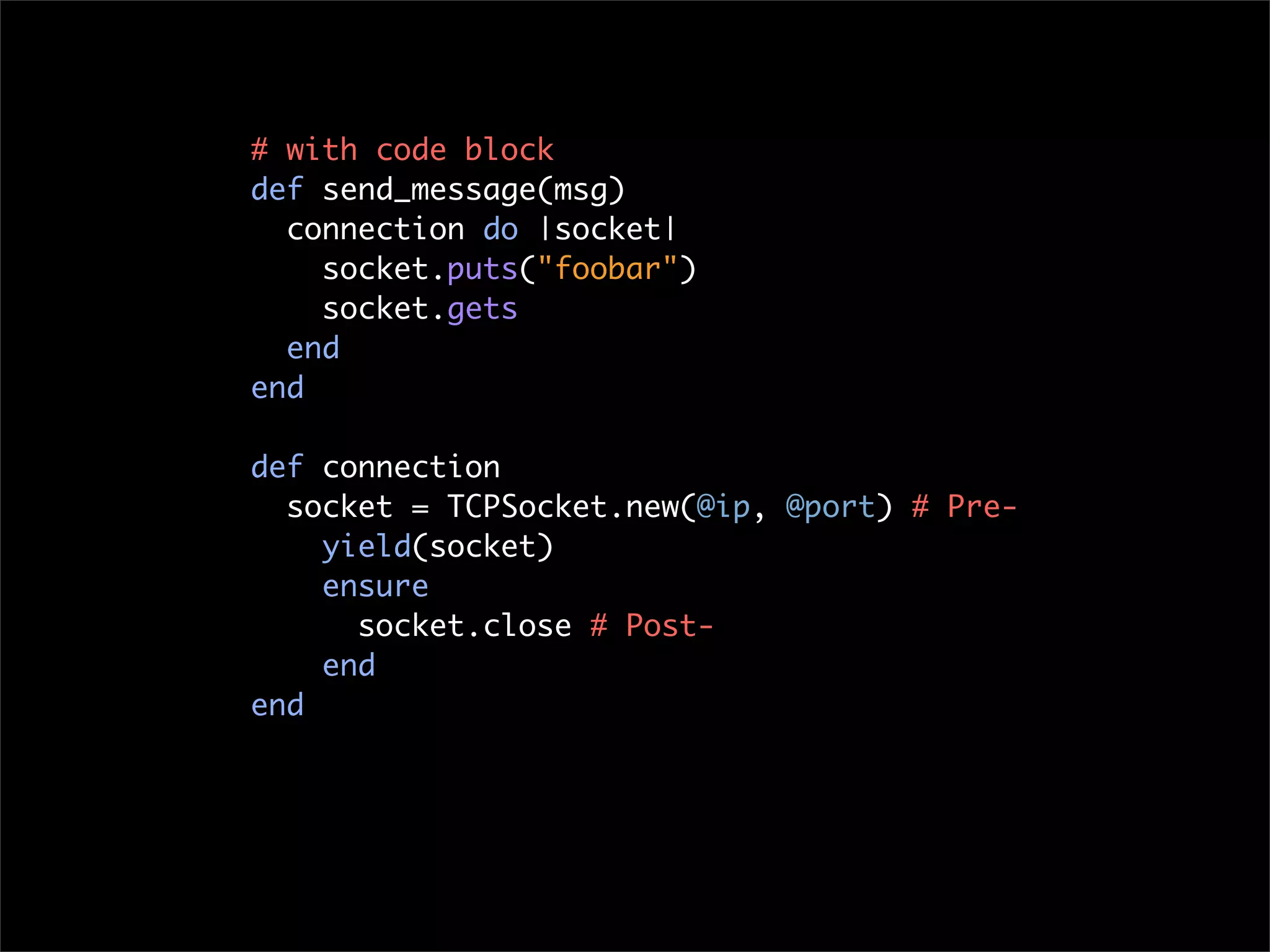
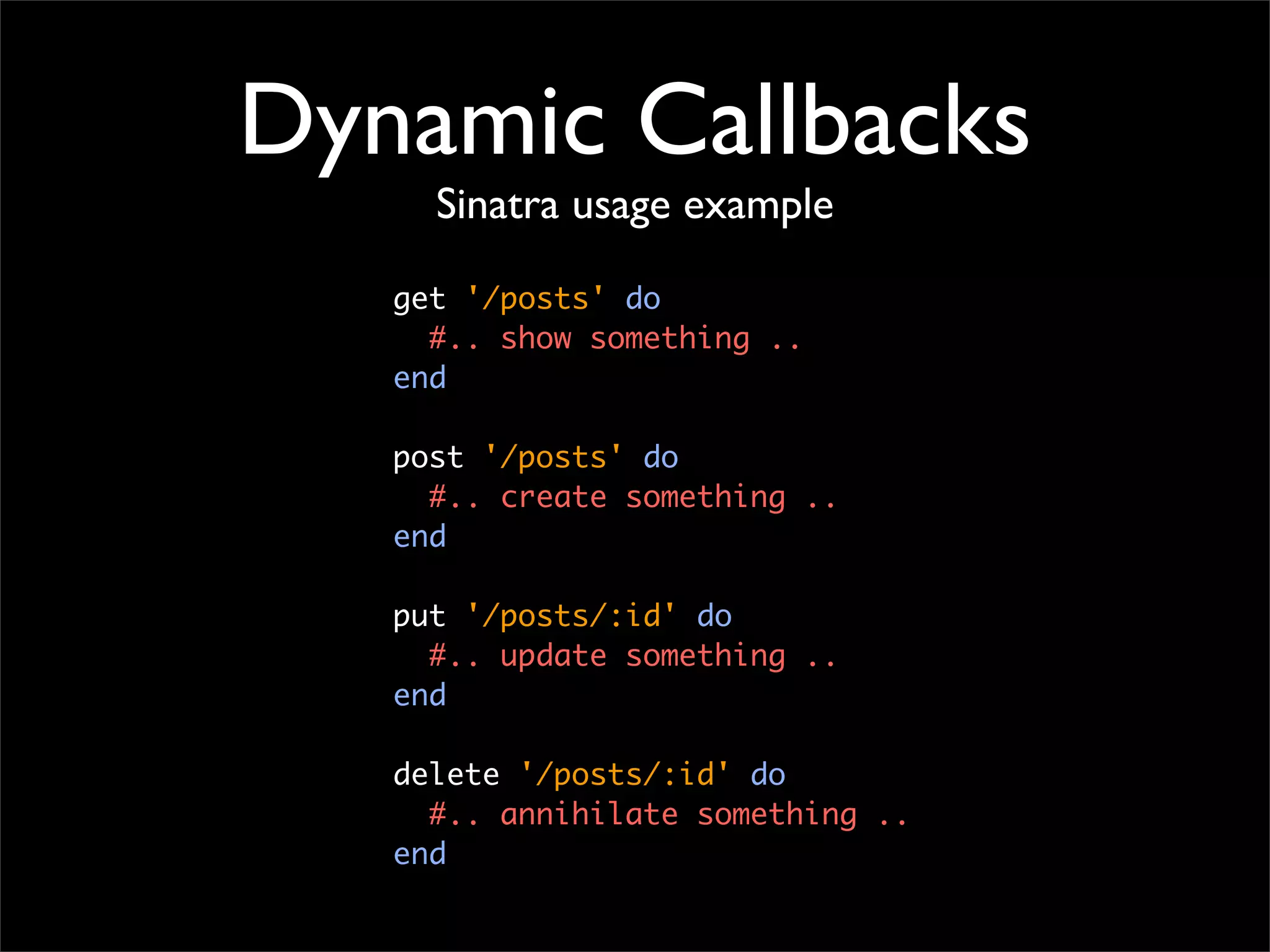
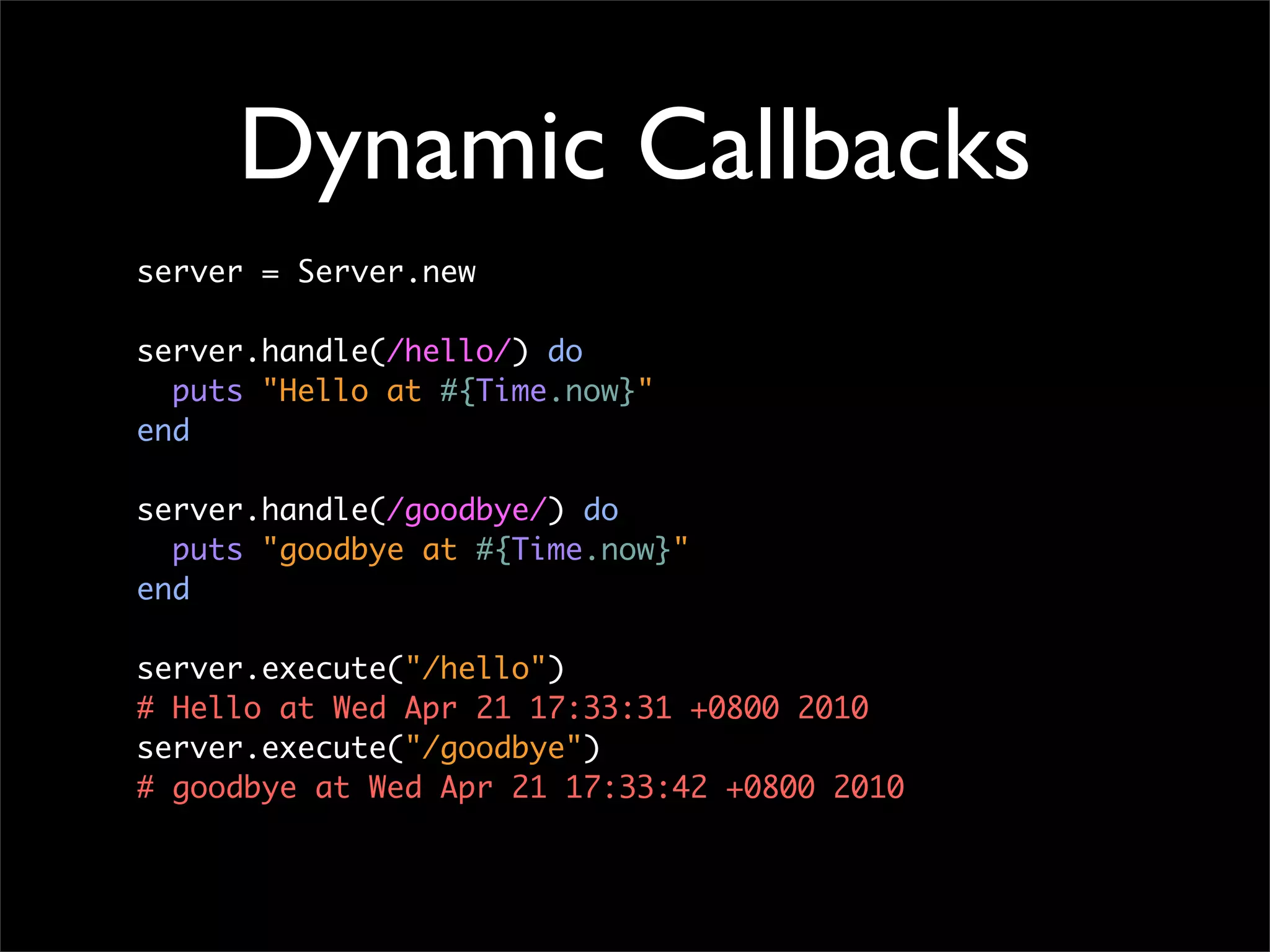
![class Server def initialize @handlers = {} end def handle(pattern, &block) @handlers[pattern] = block end def execute(url) @handlers.each do |pattern, block| if match = url.match(pattern) block.call break end end end end](https://image.slidesharecdn.com/designing-ruby-apis-100424202457-phpapp01/75/Designing-Ruby-APIs-21-2048.jpg)
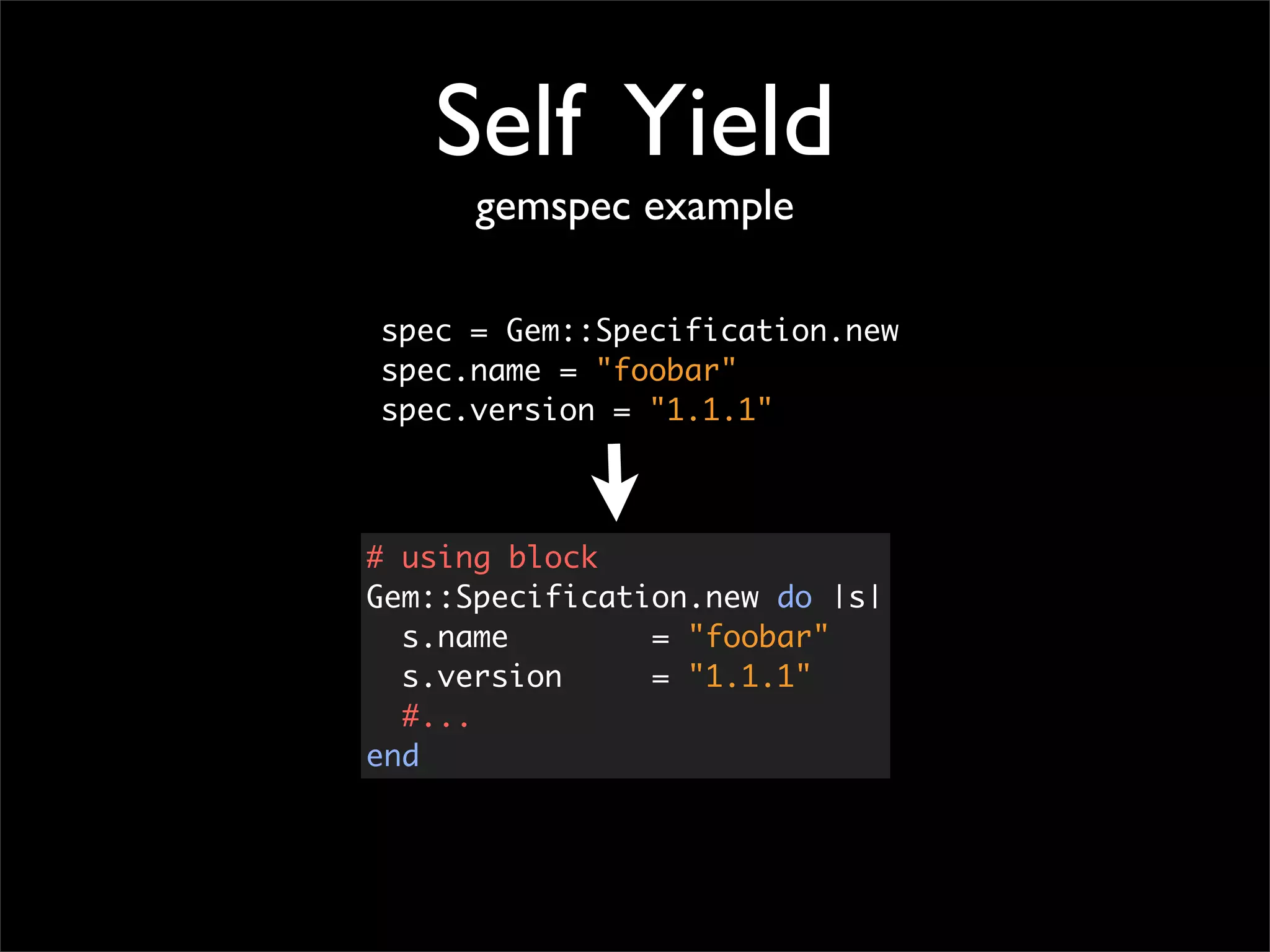
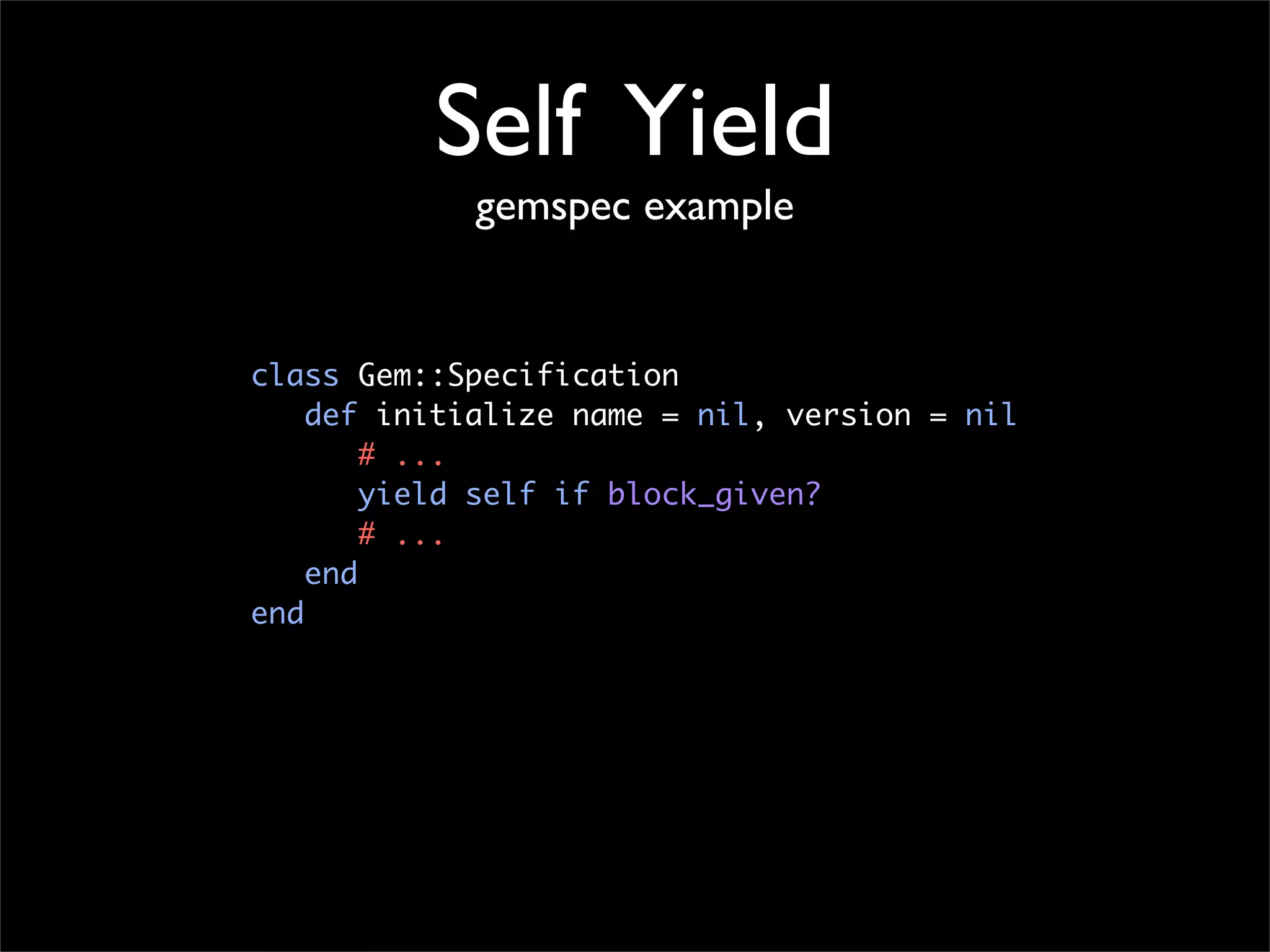

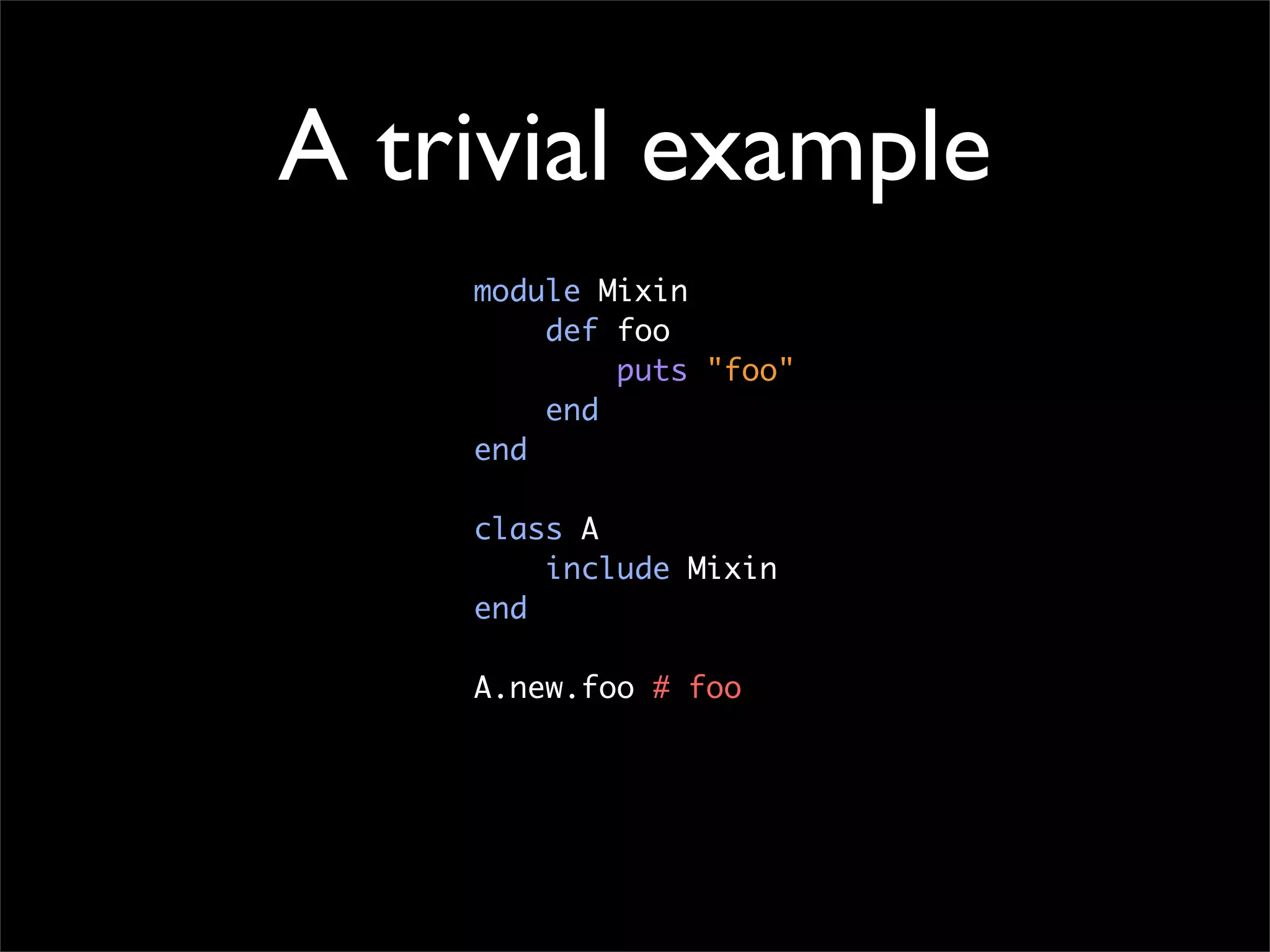
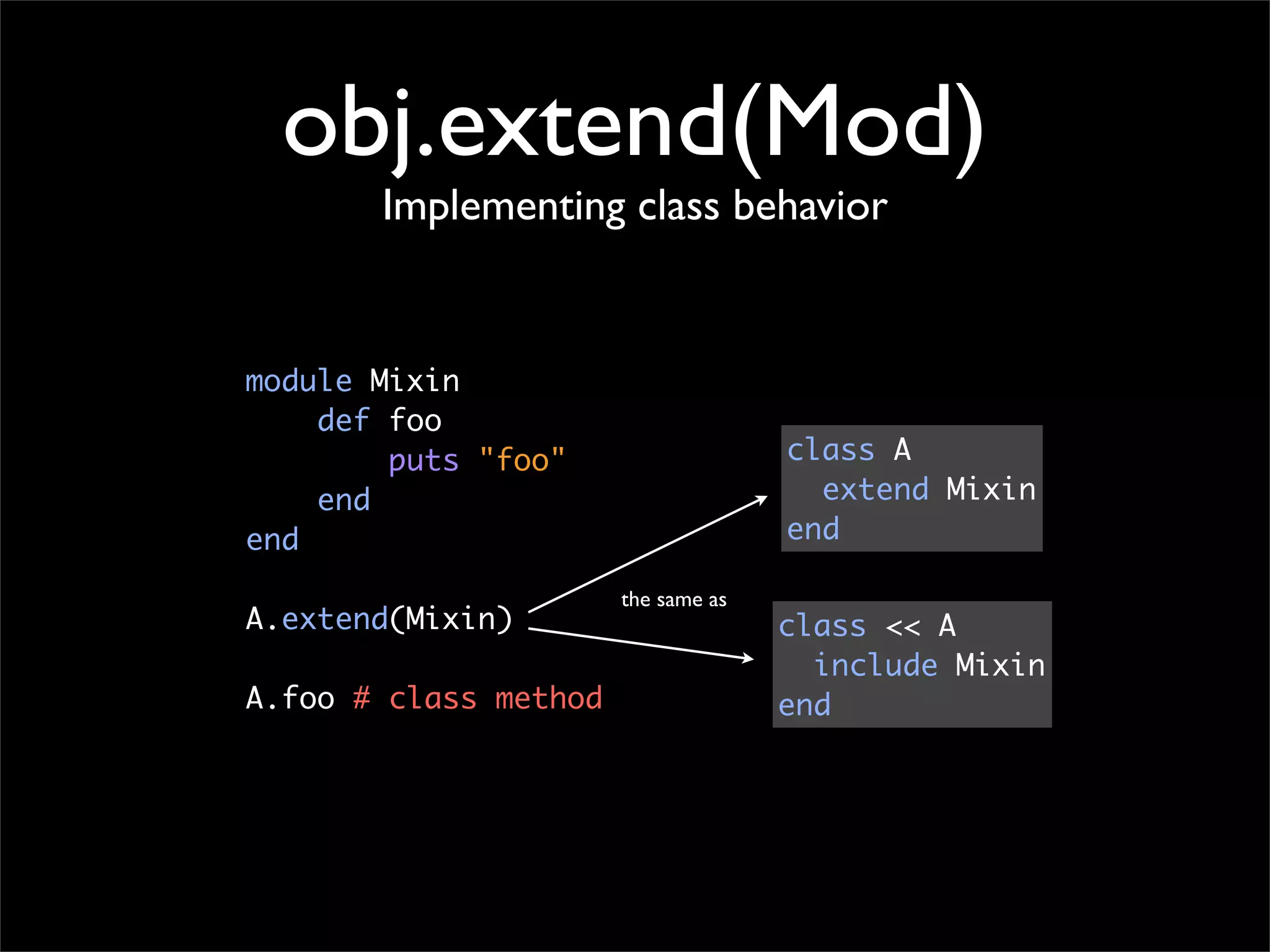
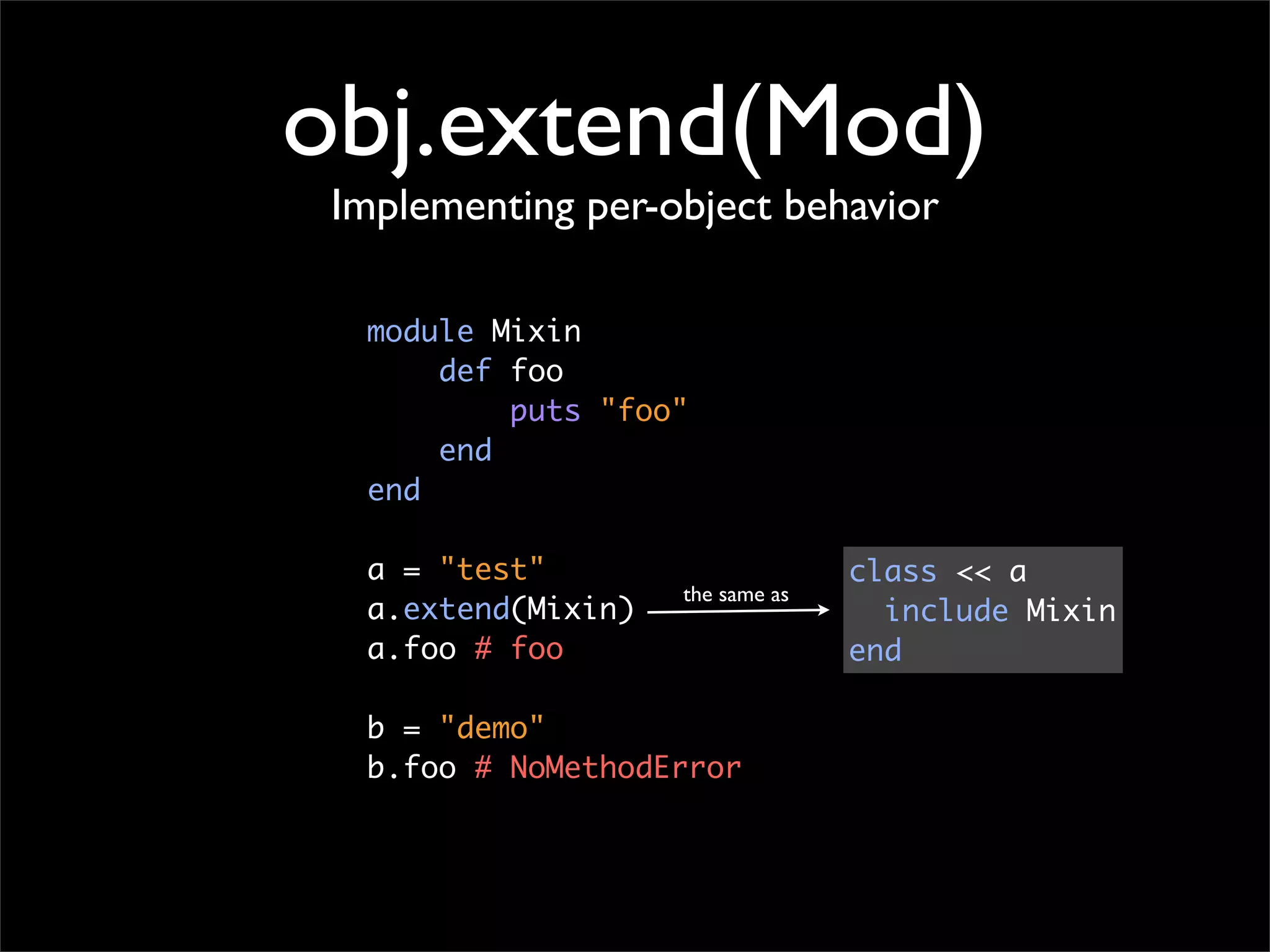
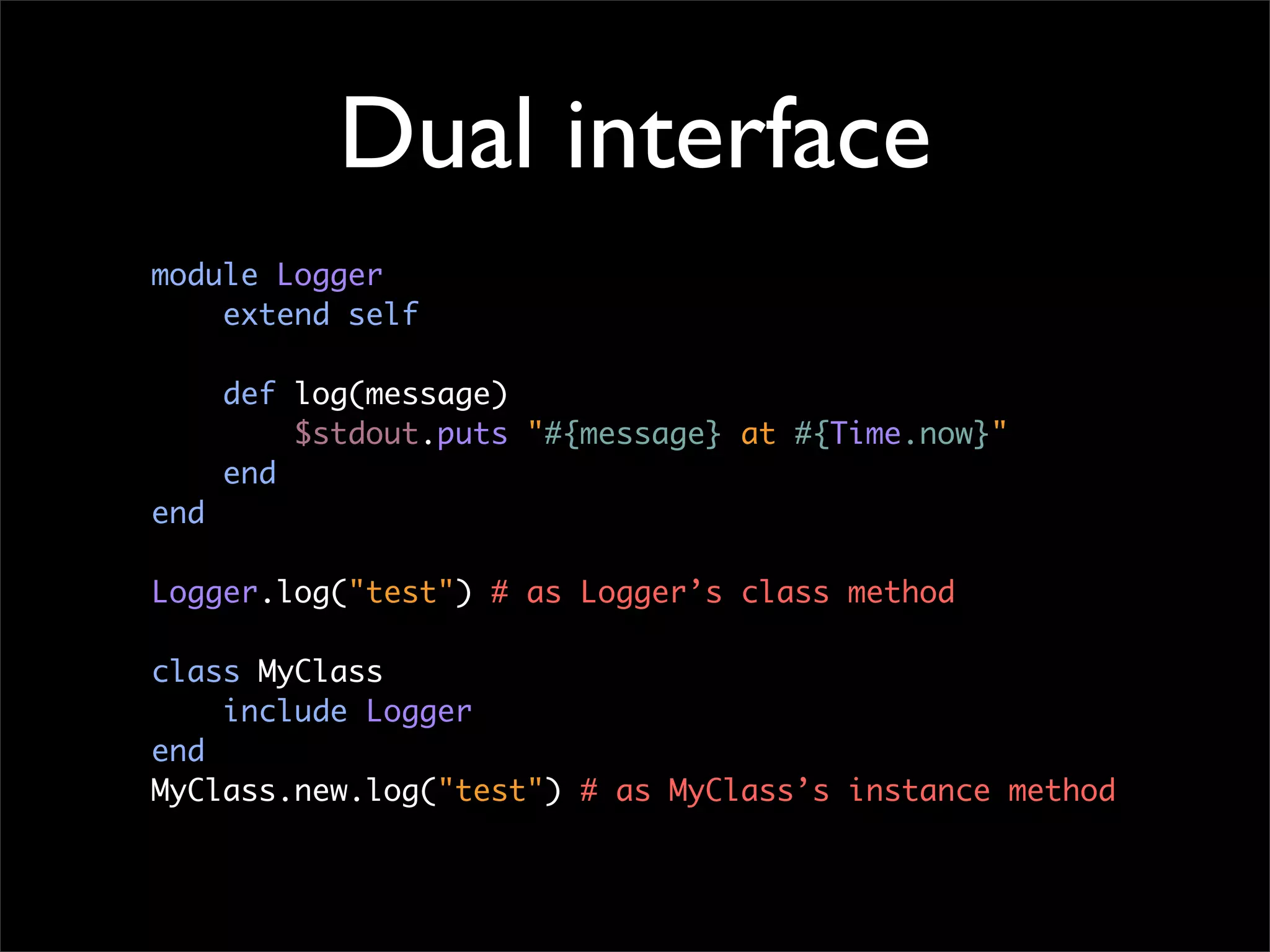
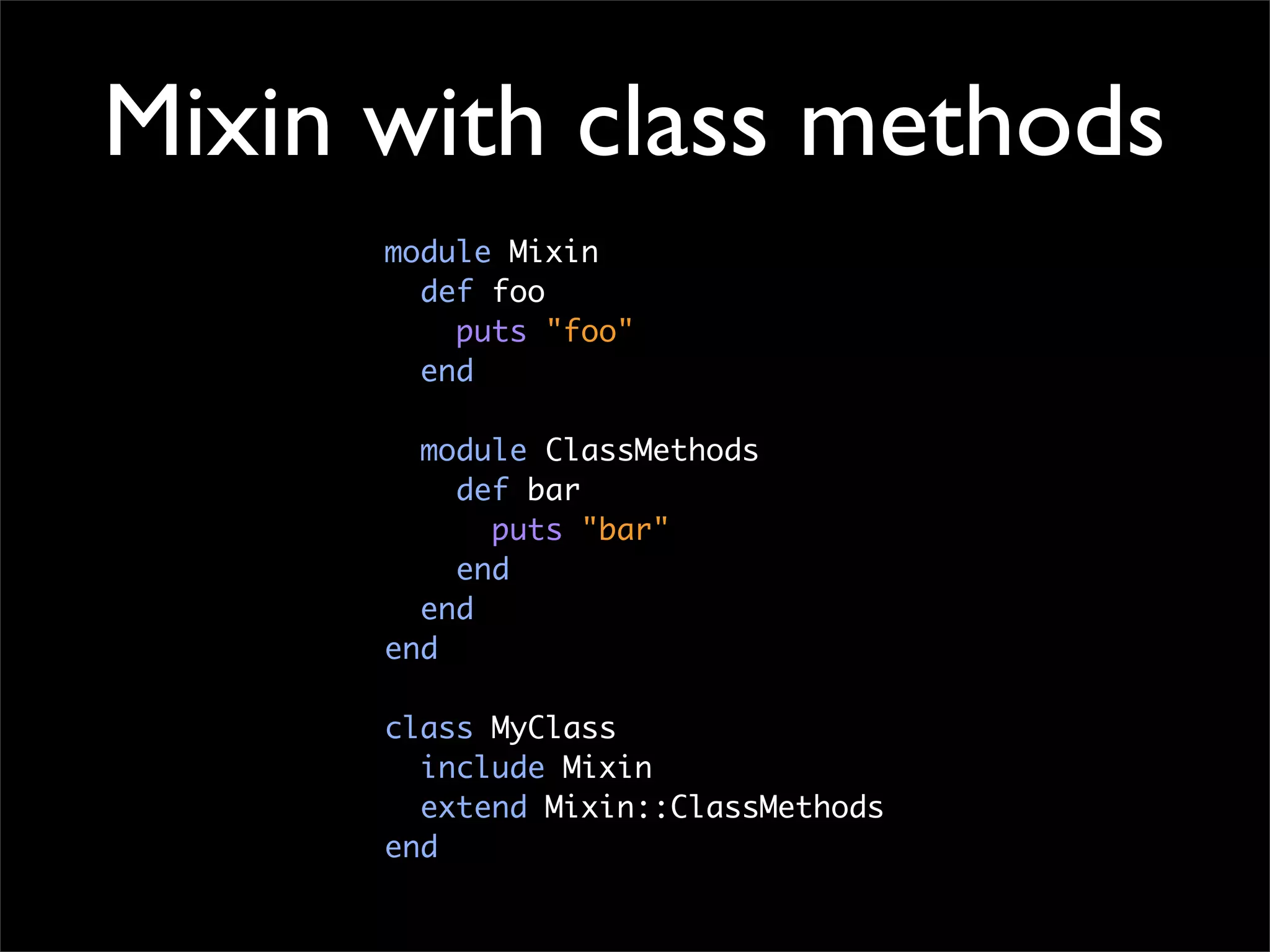
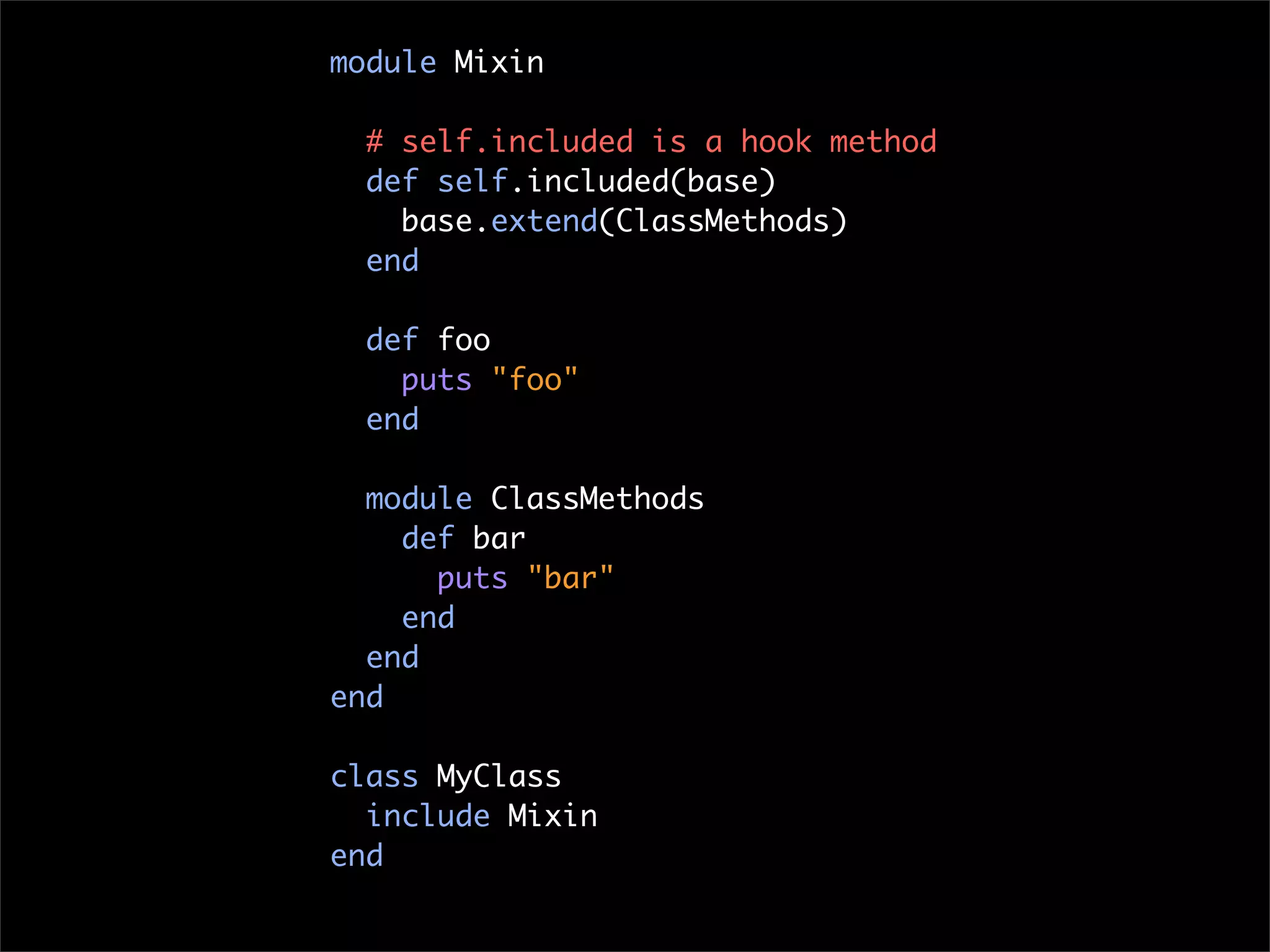
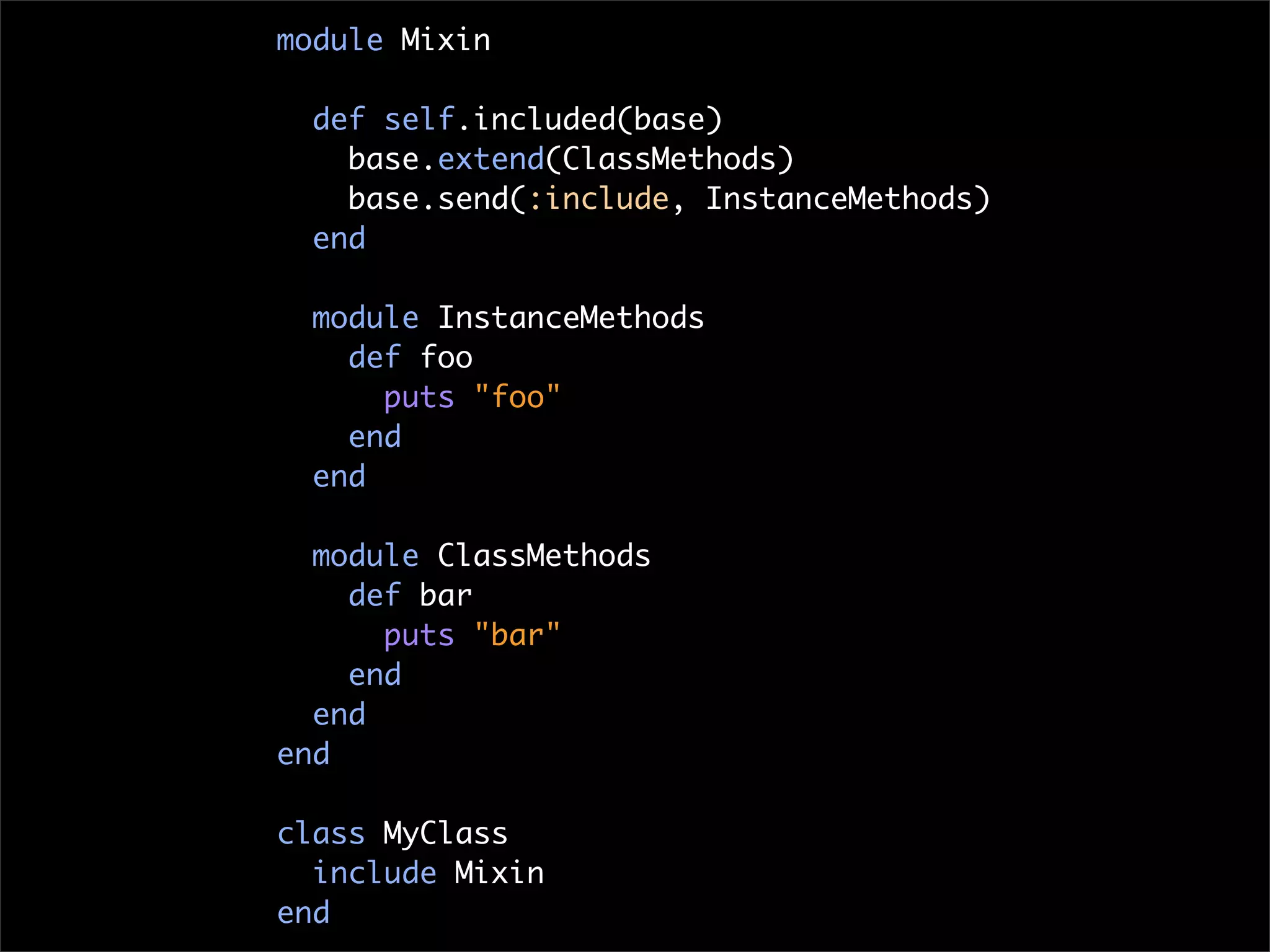

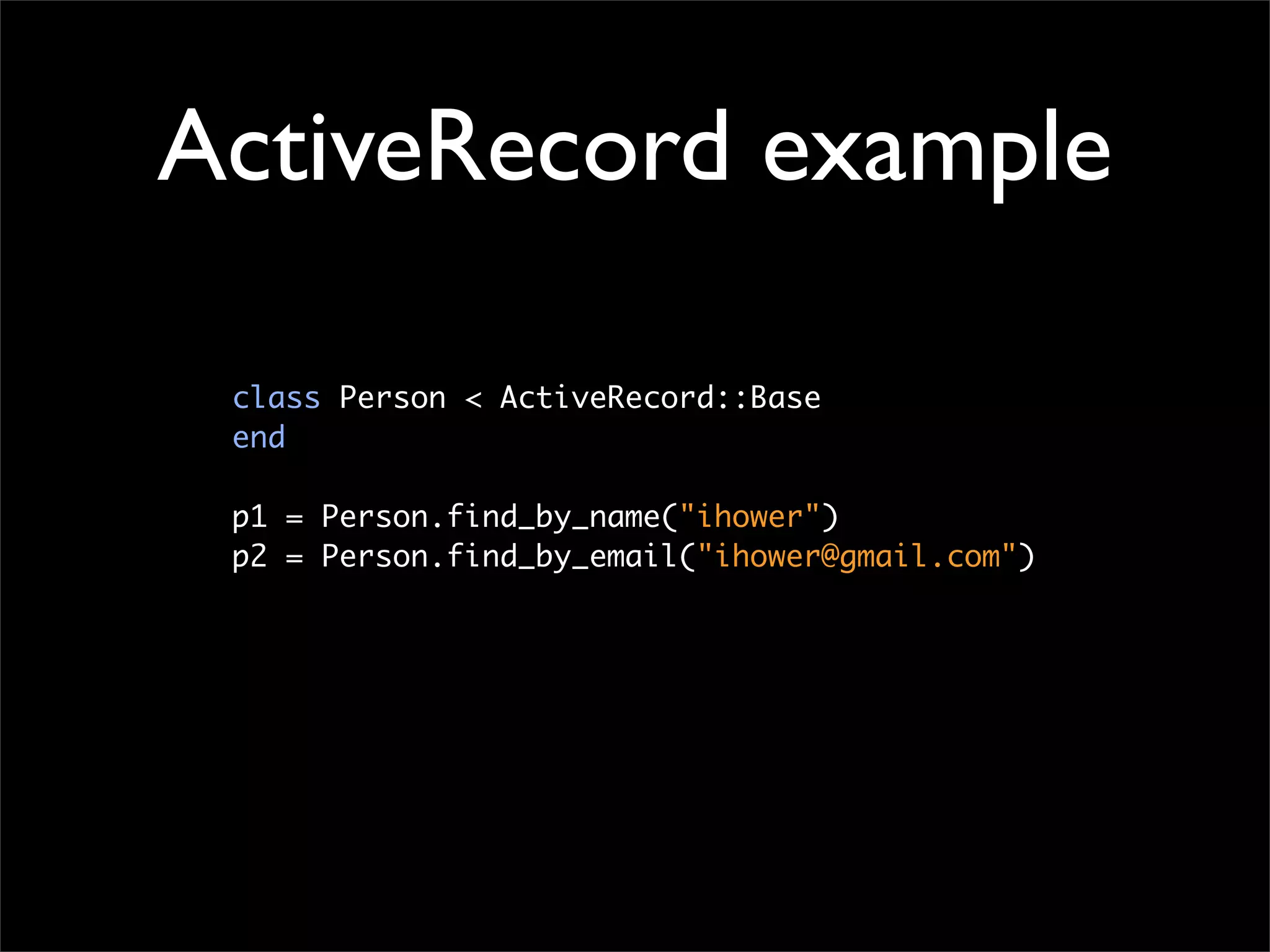
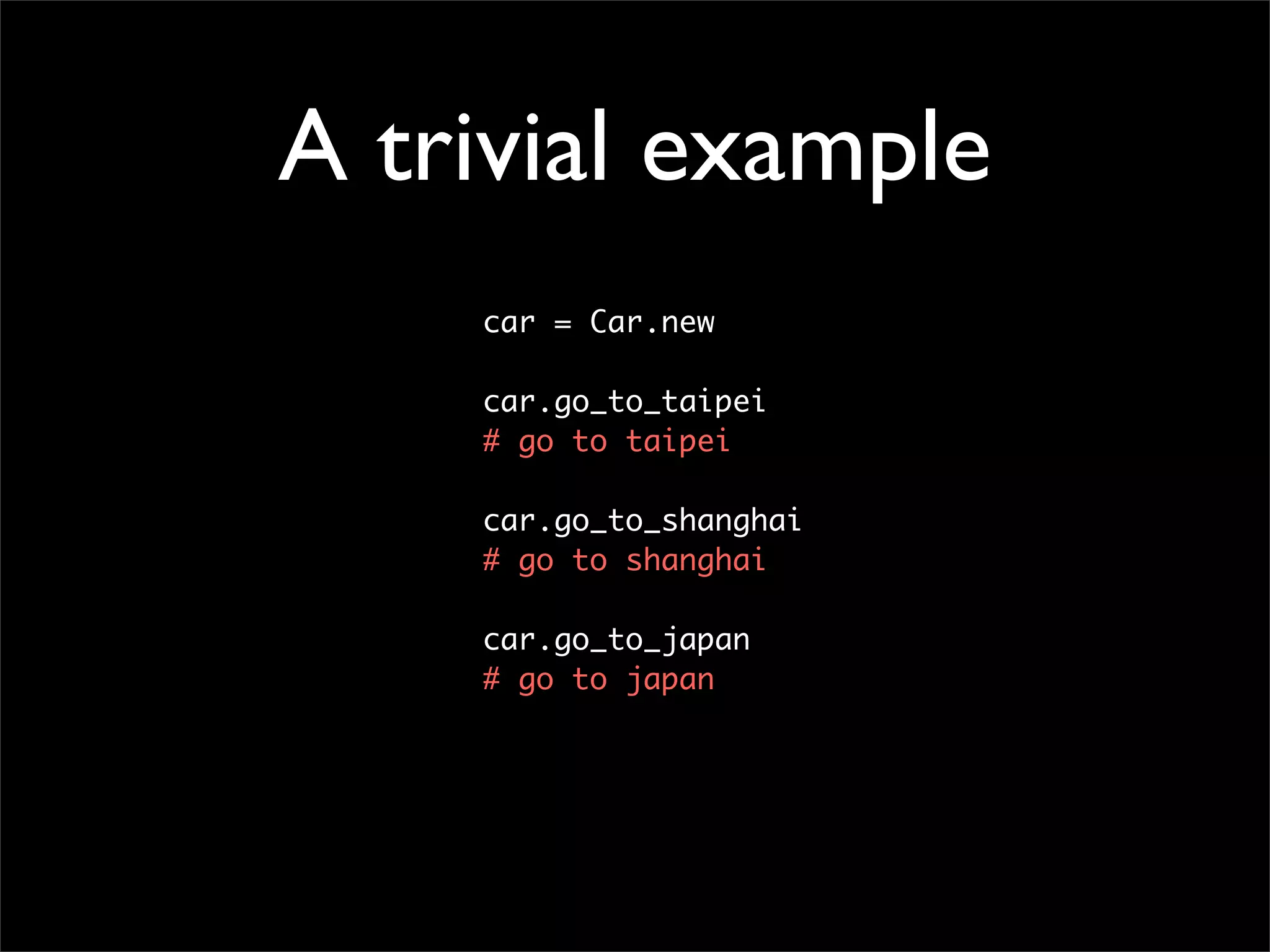
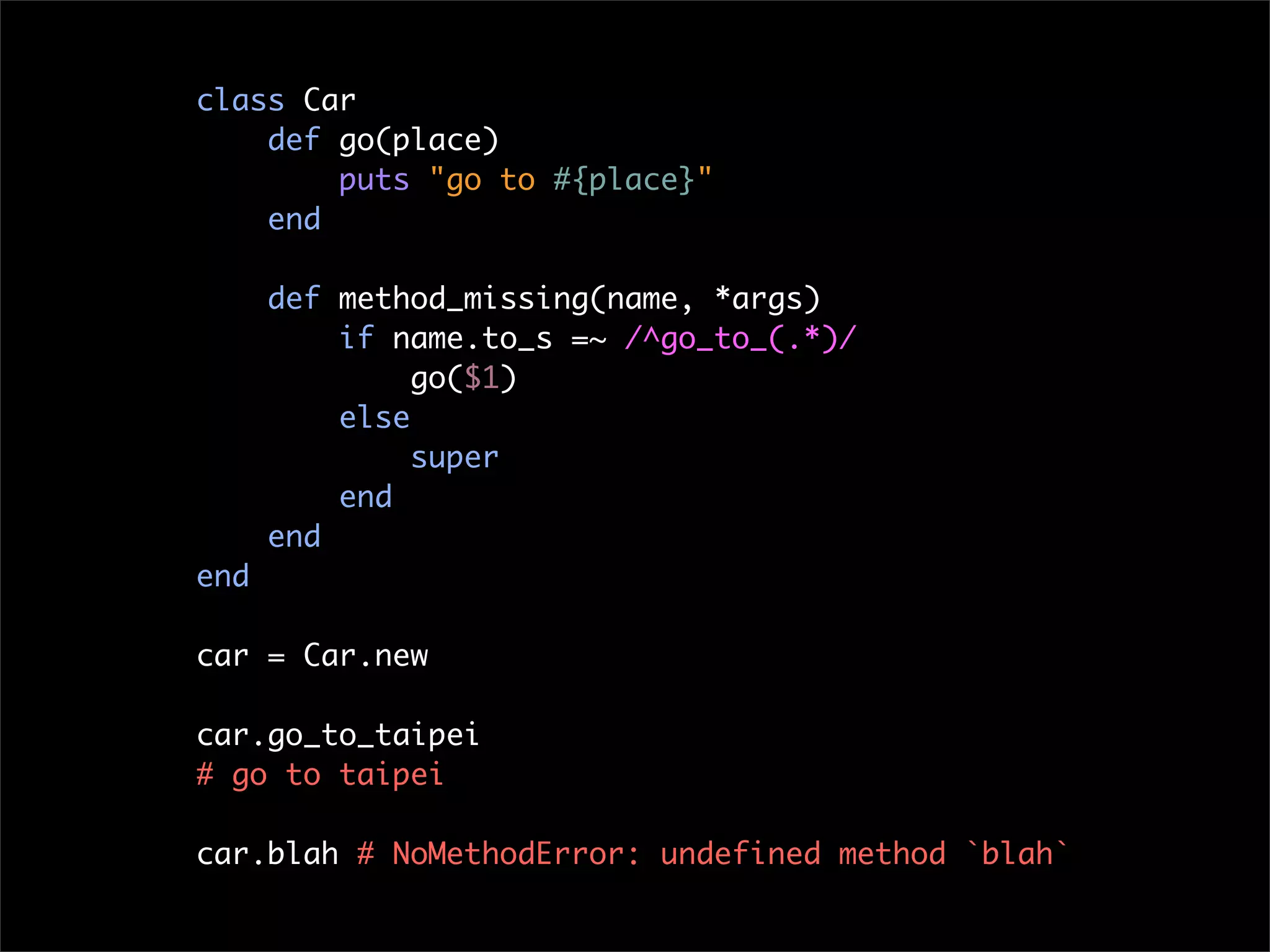
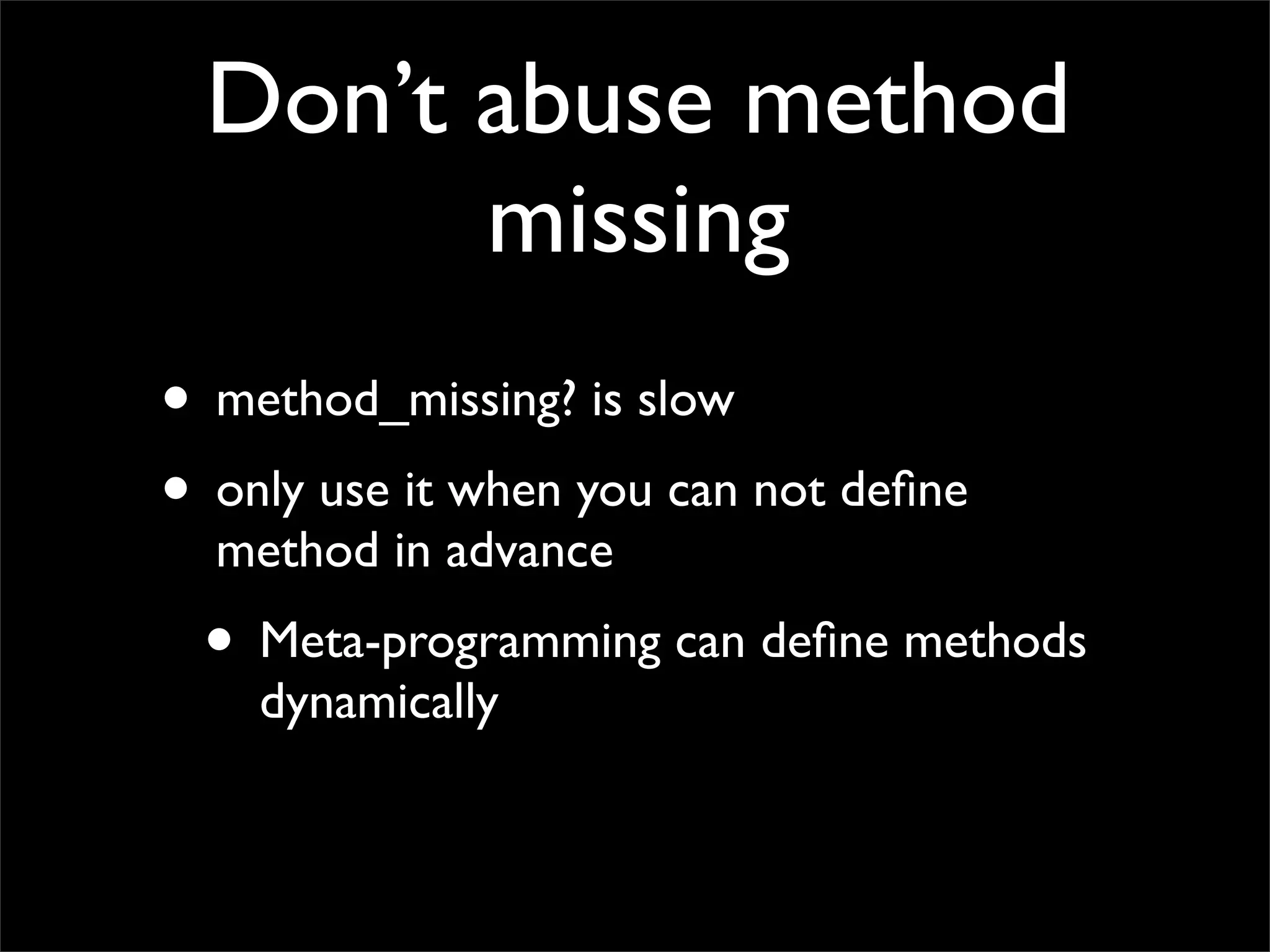
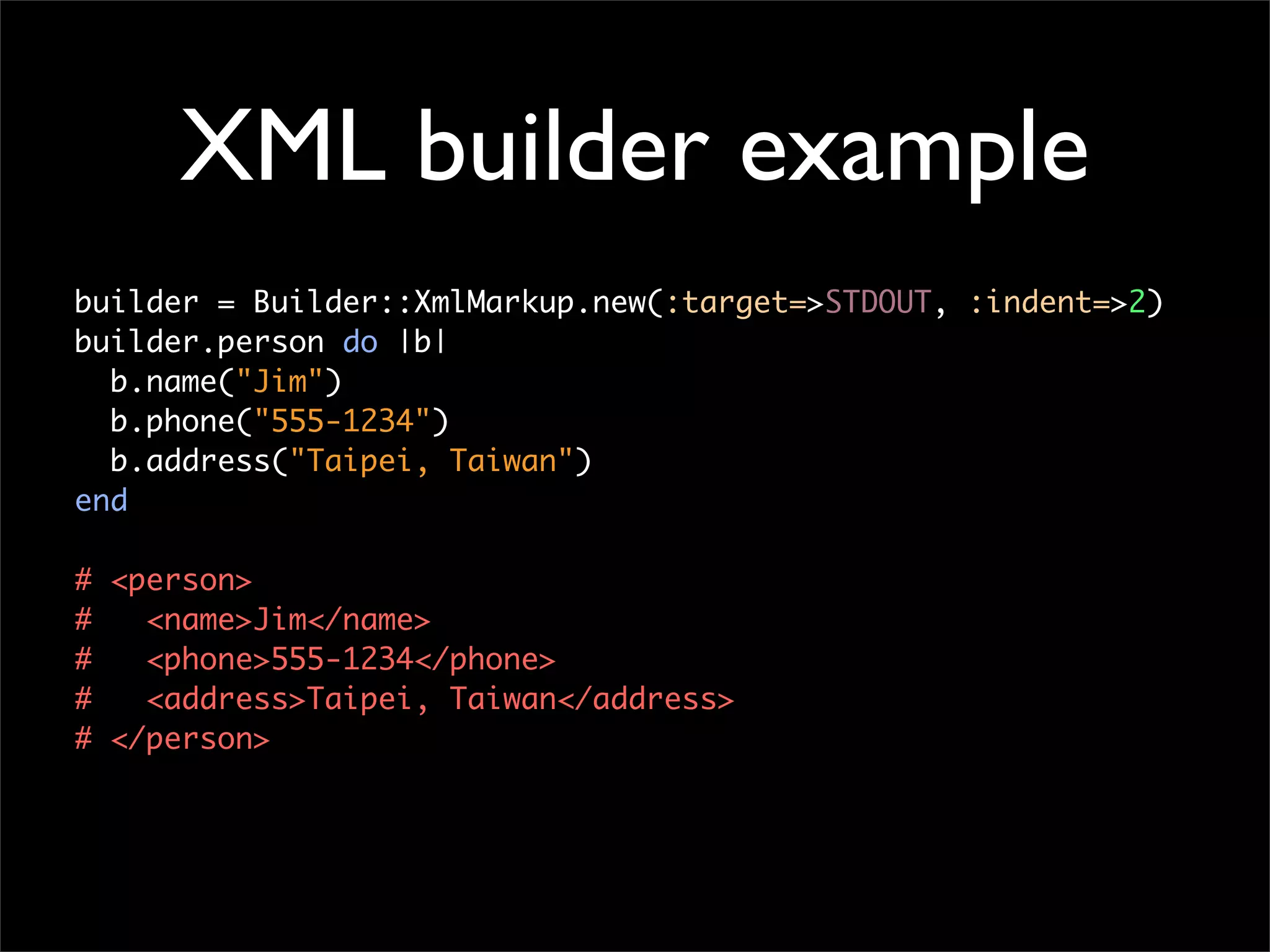
![We need BlankSlate or BasicObject to avoid name conflict # Jim Weirich's BlankSlate from XML builder >> BlankSlate.instance_methods => ["__send__", "instance_eval", "__id__"] # Ruby 1.9 >> BasicObject.instance_methods => [:==, :equal?, :!, :! =, :instance_eval, :instance_exec, :__send__] # an easy BlankSlate class BlankSlate instance_methods.each { |m| undef_method m unless m =~ /^__/ } end >> BlankSlate.instance_methods => ["__send__", "__id__"]](https://image.slidesharecdn.com/designing-ruby-apis-100424202457-phpapp01/75/Designing-Ruby-APIs-38-2048.jpg)
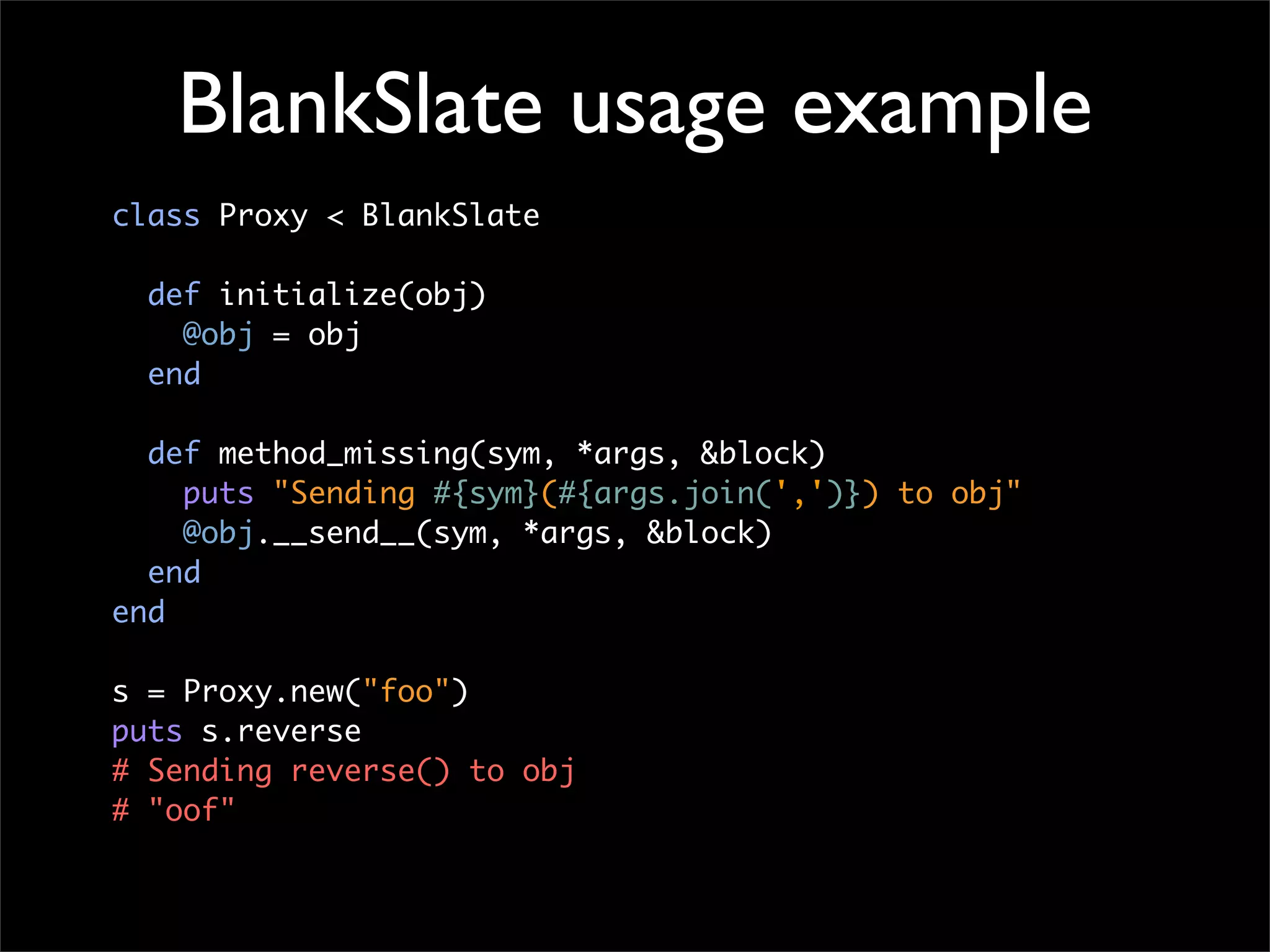

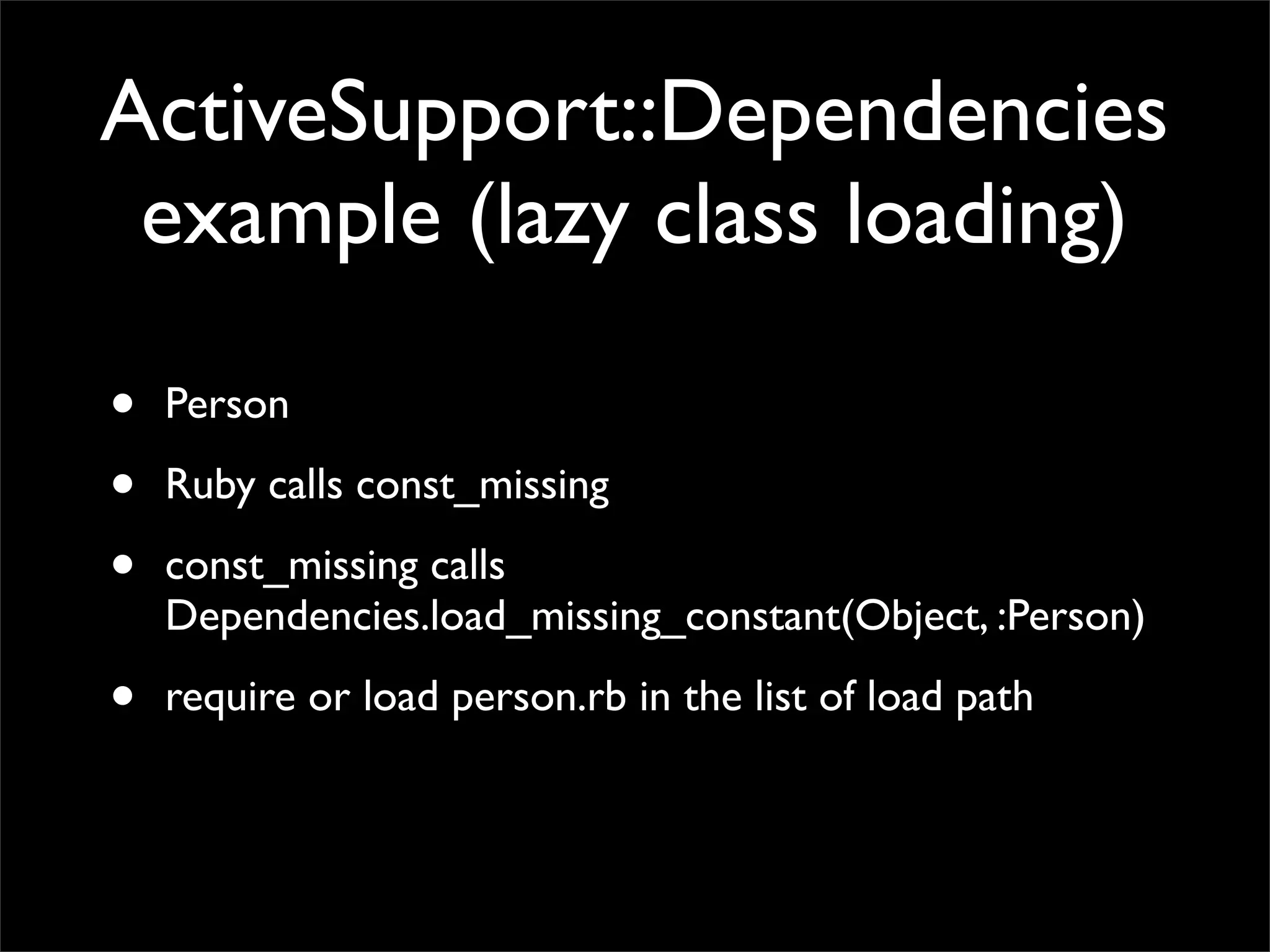
![Global constant class Module original_c_m = instance_method(:const_missing) define_method(:const_missing) do |name| if name.to_s =~ /^U([0-9a-fA-F]{4})$/ [$1.to_i(16)].pack("U*") else original_c_m.bind(self).call(name) end end end puts U0123 # ģ puts U9999 #](https://image.slidesharecdn.com/designing-ruby-apis-100424202457-phpapp01/75/Designing-Ruby-APIs-42-2048.jpg)
![Localized constant (you can use super here) class Color def self.const_missing(name) if name.to_s =~ /[a-zA-Z]/ const_set(name, new) else super end end end Color::RED #<Color:0x1018078a0> Color::GREEN #<Color:0x1018059d8>](https://image.slidesharecdn.com/designing-ruby-apis-100424202457-phpapp01/75/Designing-Ruby-APIs-43-2048.jpg)
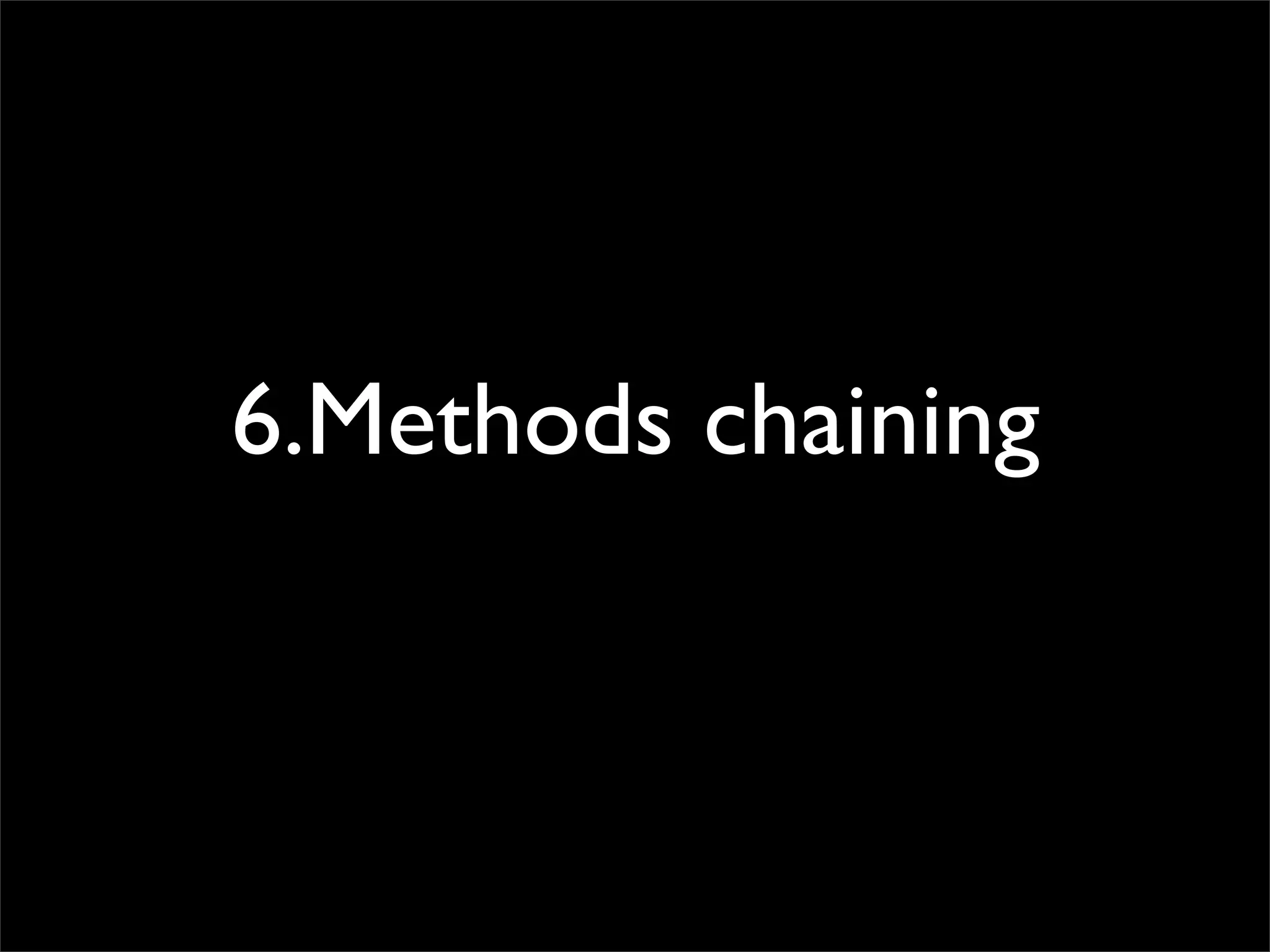
![an Array example [1,1,2,3,3,4,5].uniq!.reject!{ |i| i%2 == 0 }.reverse # 5,3,1](https://image.slidesharecdn.com/designing-ruby-apis-100424202457-phpapp01/75/Designing-Ruby-APIs-45-2048.jpg)
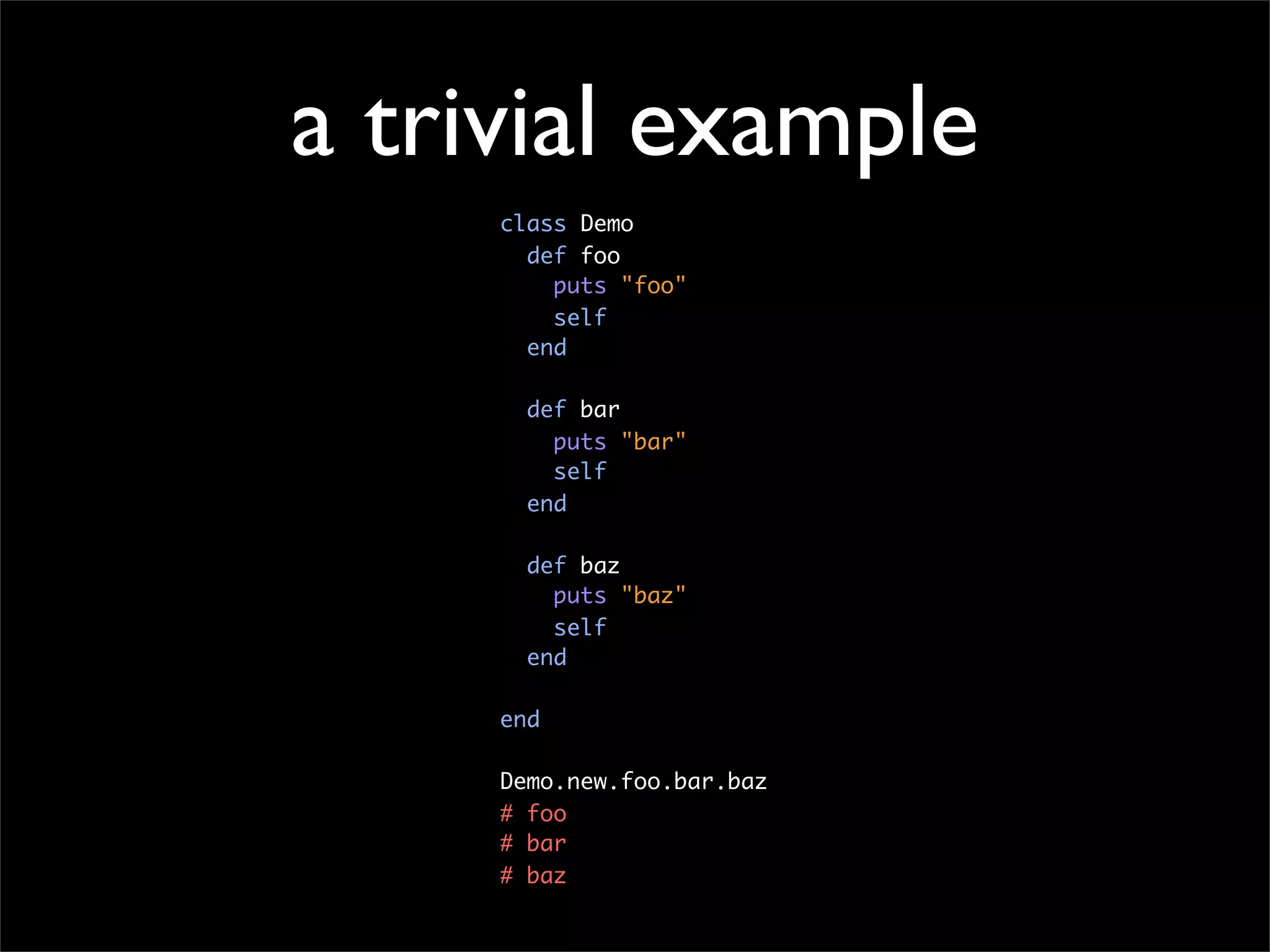
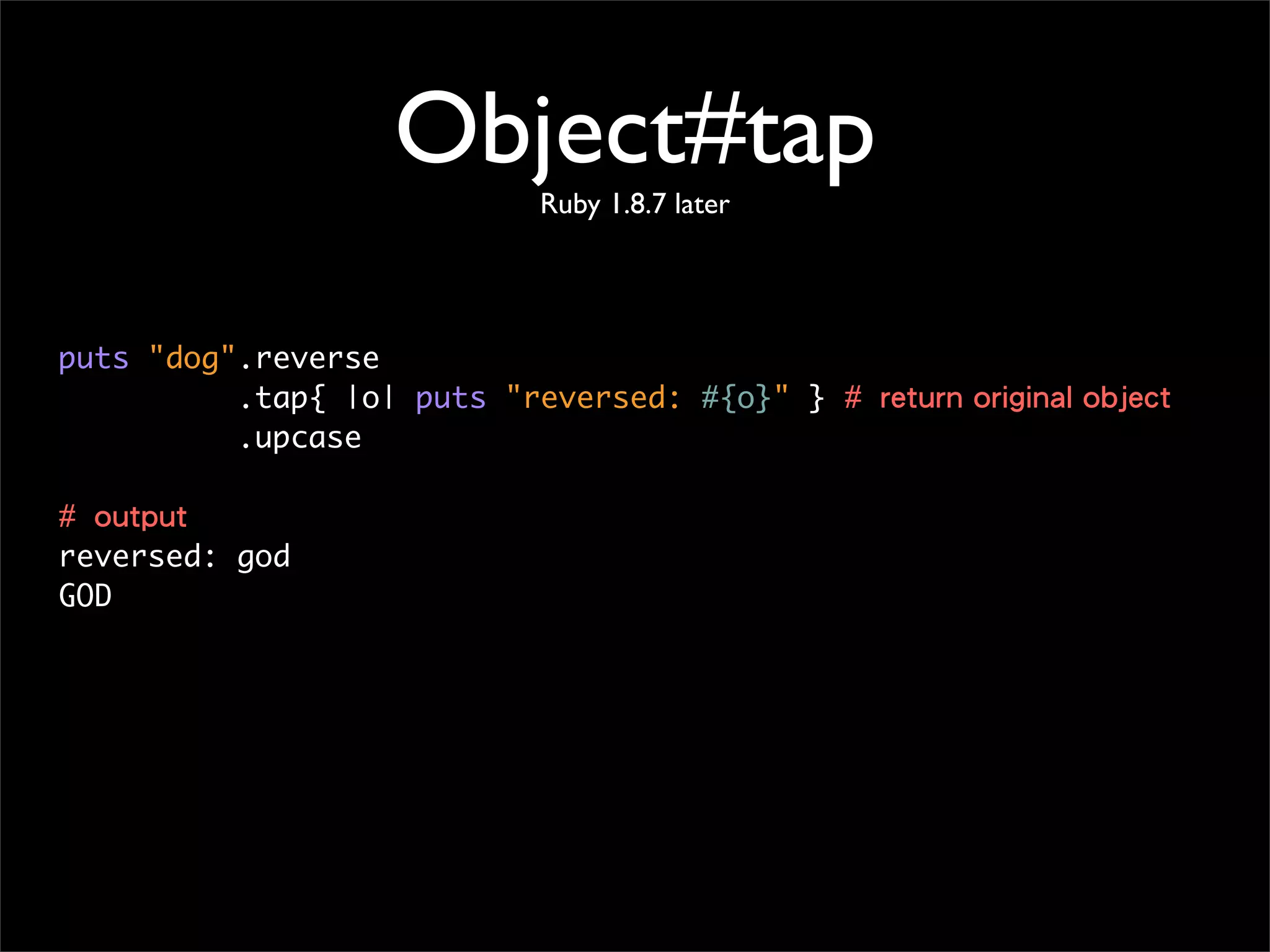
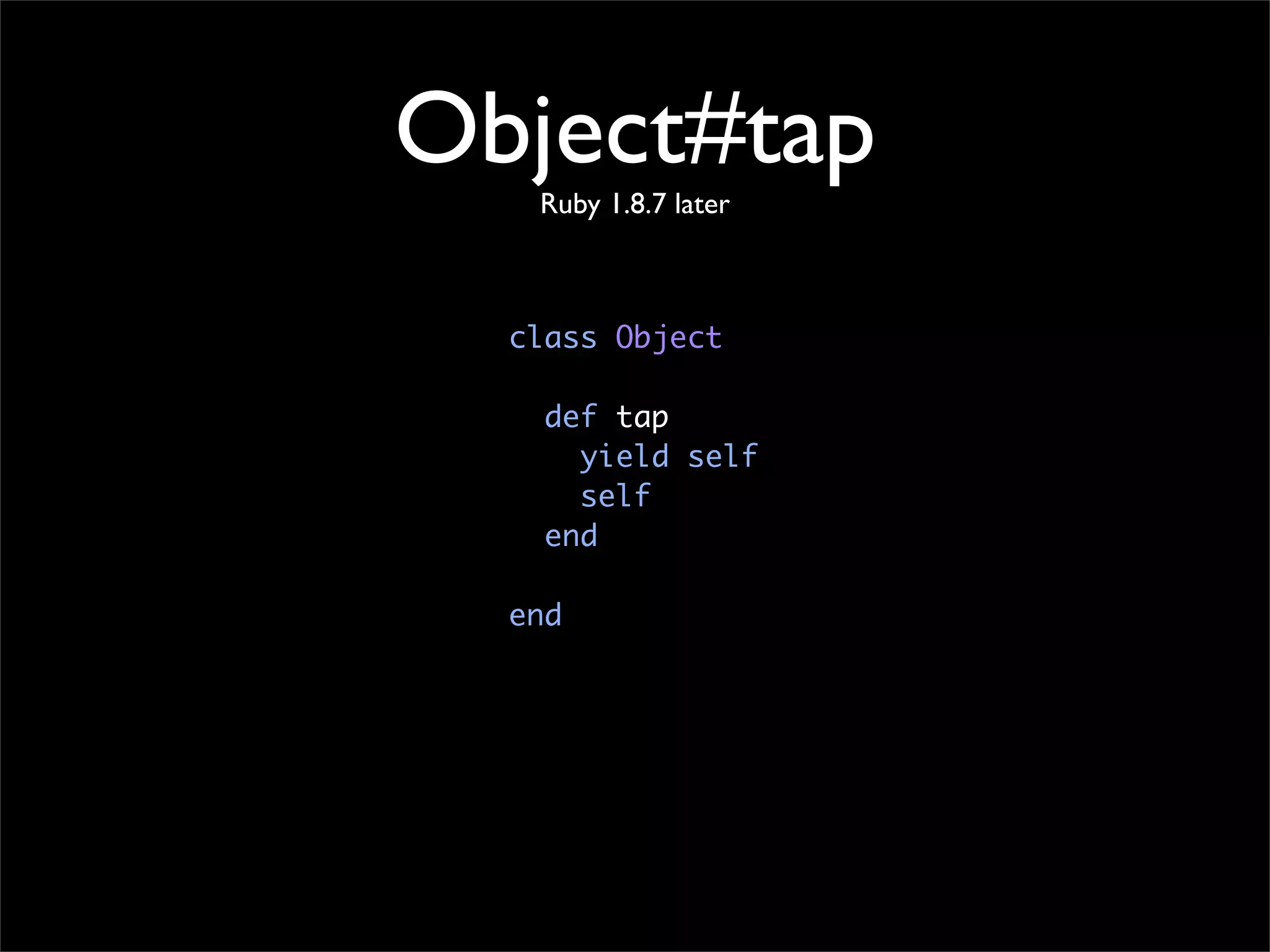

![NilClass#try example person = Person.find_by_email(params[:email]) # but we don't know @person exists or not # Without try @person ? @person.name : nil # With try @person.try(:name)](https://image.slidesharecdn.com/designing-ruby-apis-100424202457-phpapp01/75/Designing-Ruby-APIs-50-2048.jpg)
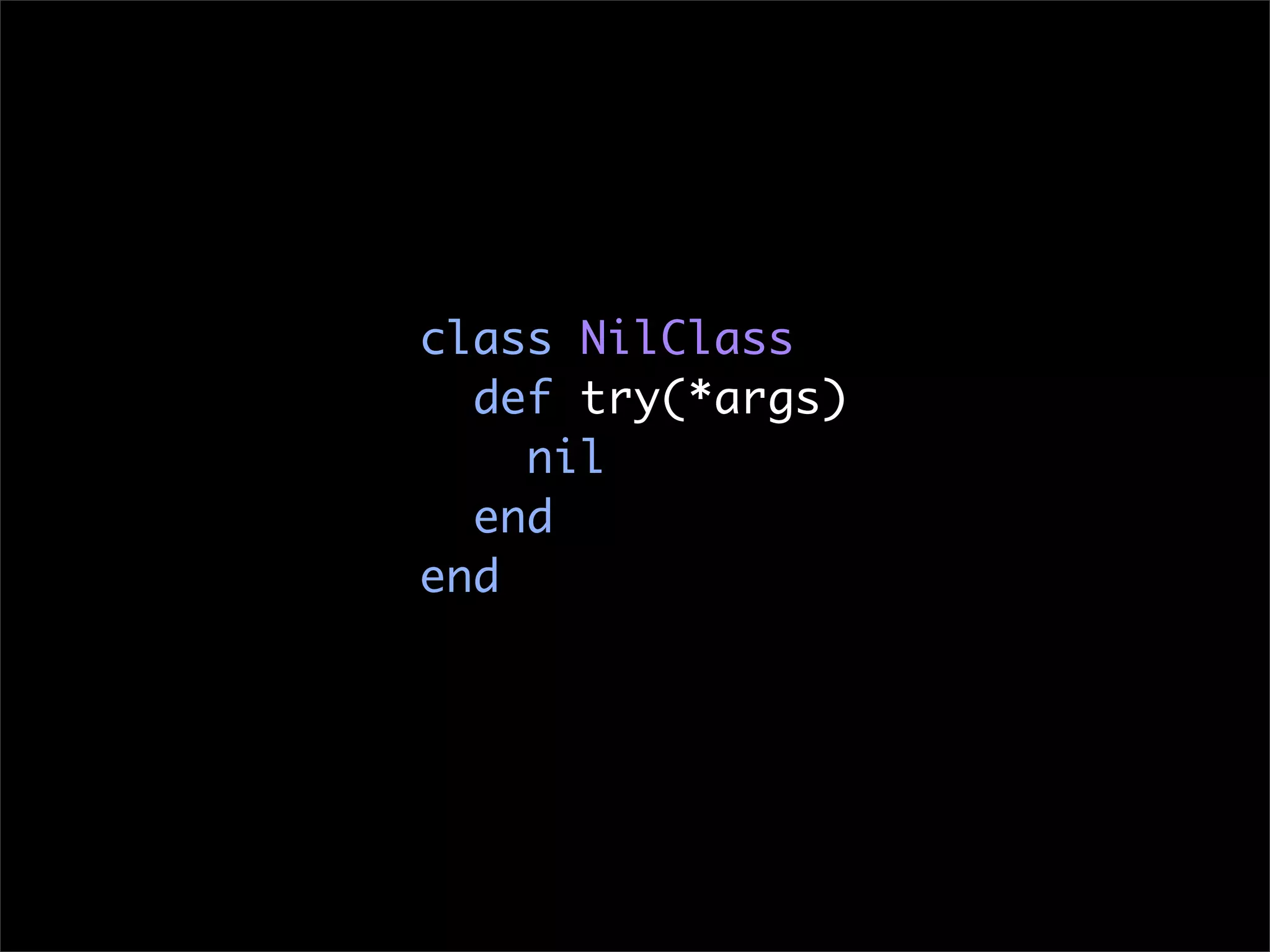
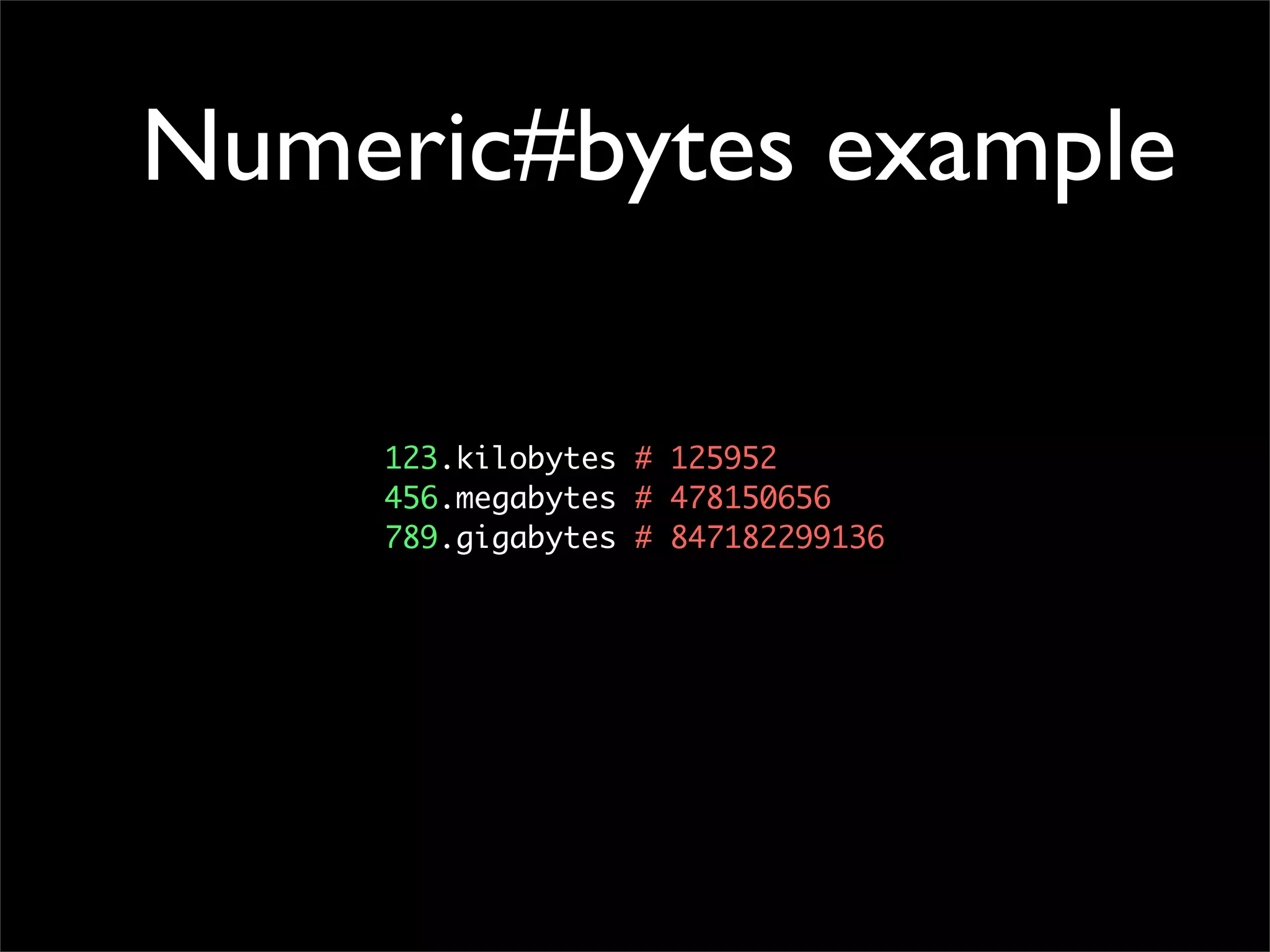
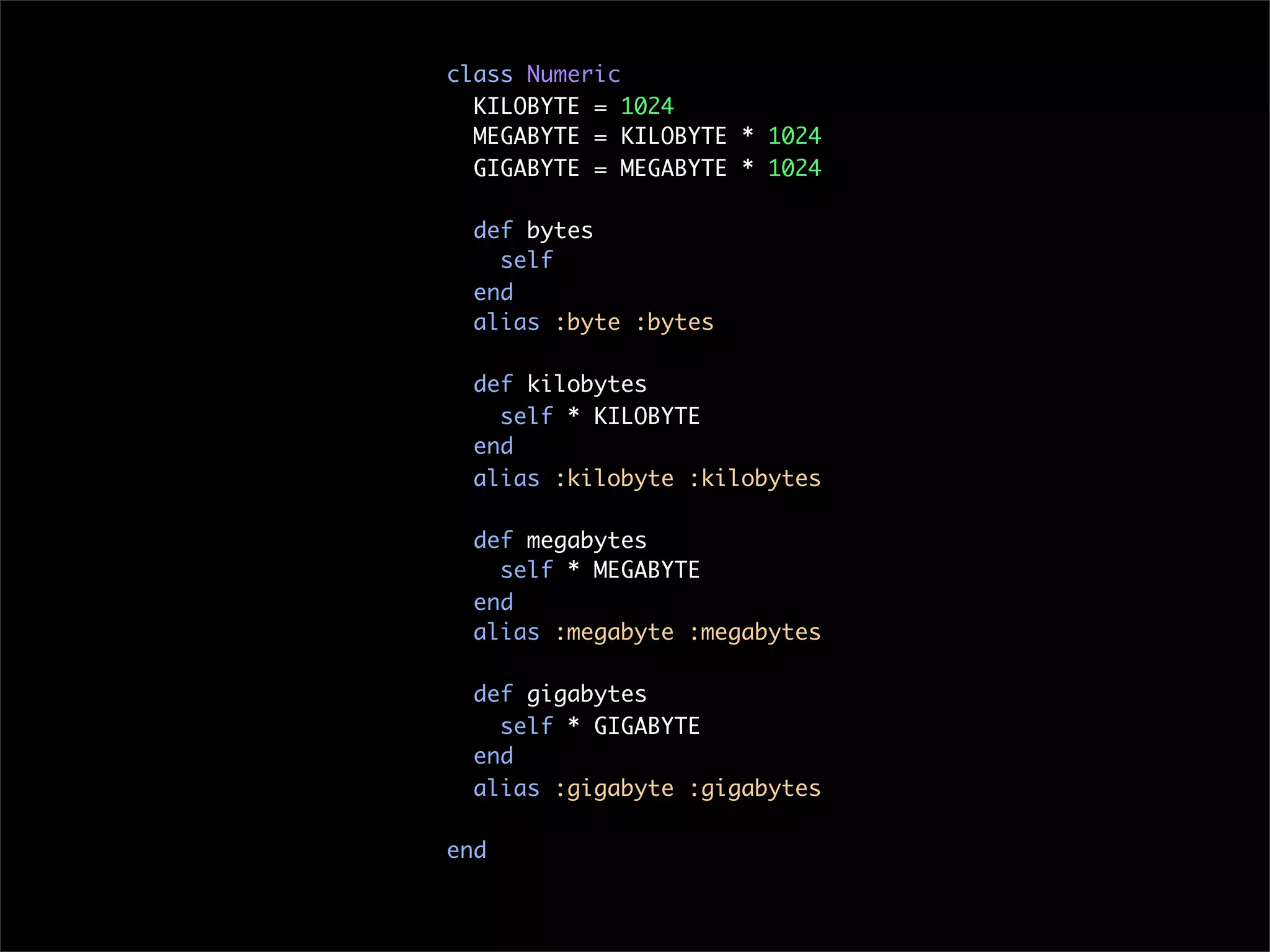
![Object#blank? example [1,2,3].blank? # false "blah".blank? # false "".blank? # true class Demo def return_nil end end Demo.new.blank? # false Demo.new.return_nil.blank? # true](https://image.slidesharecdn.com/designing-ruby-apis-100424202457-phpapp01/75/Designing-Ruby-APIs-54-2048.jpg)
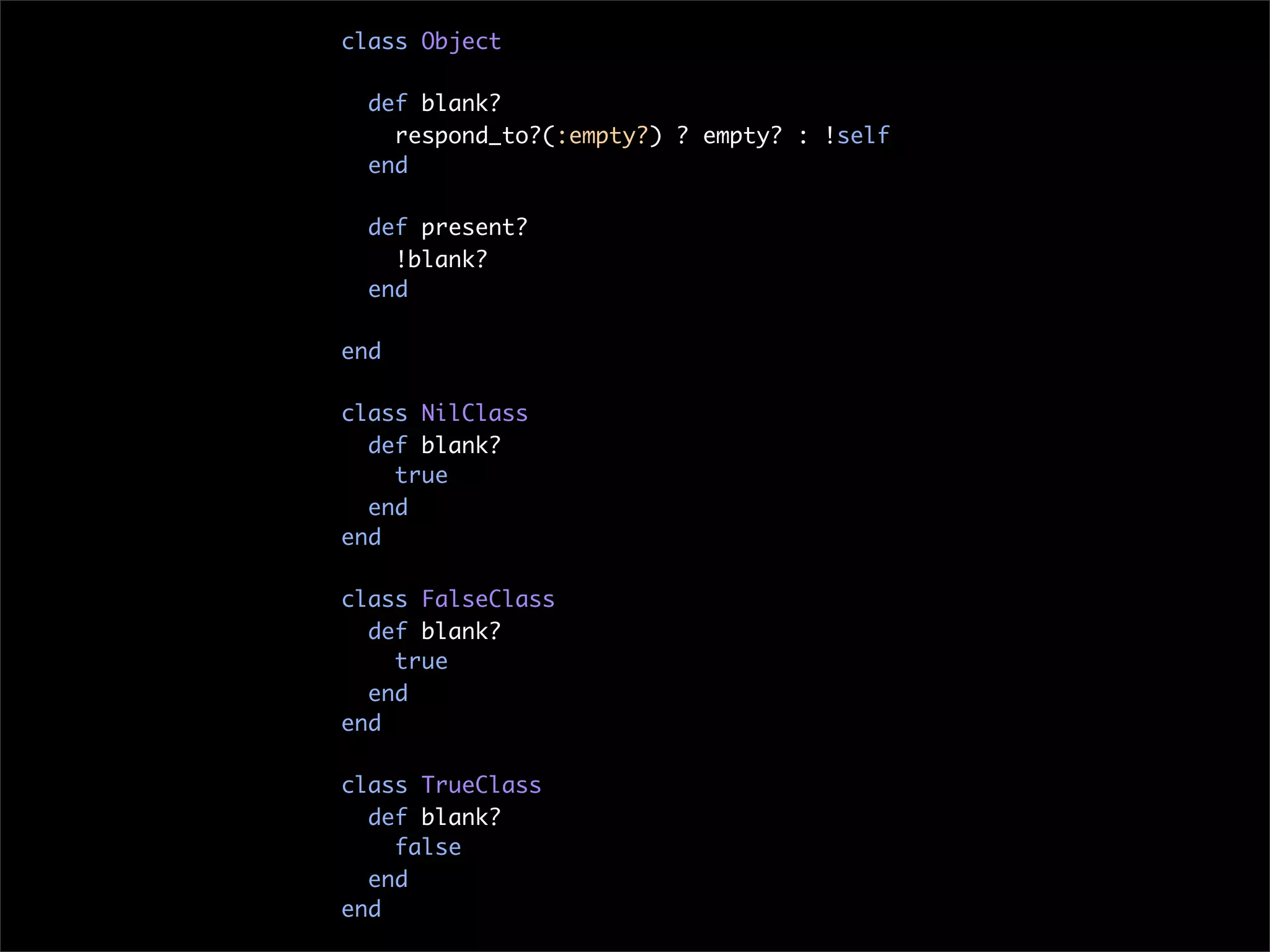
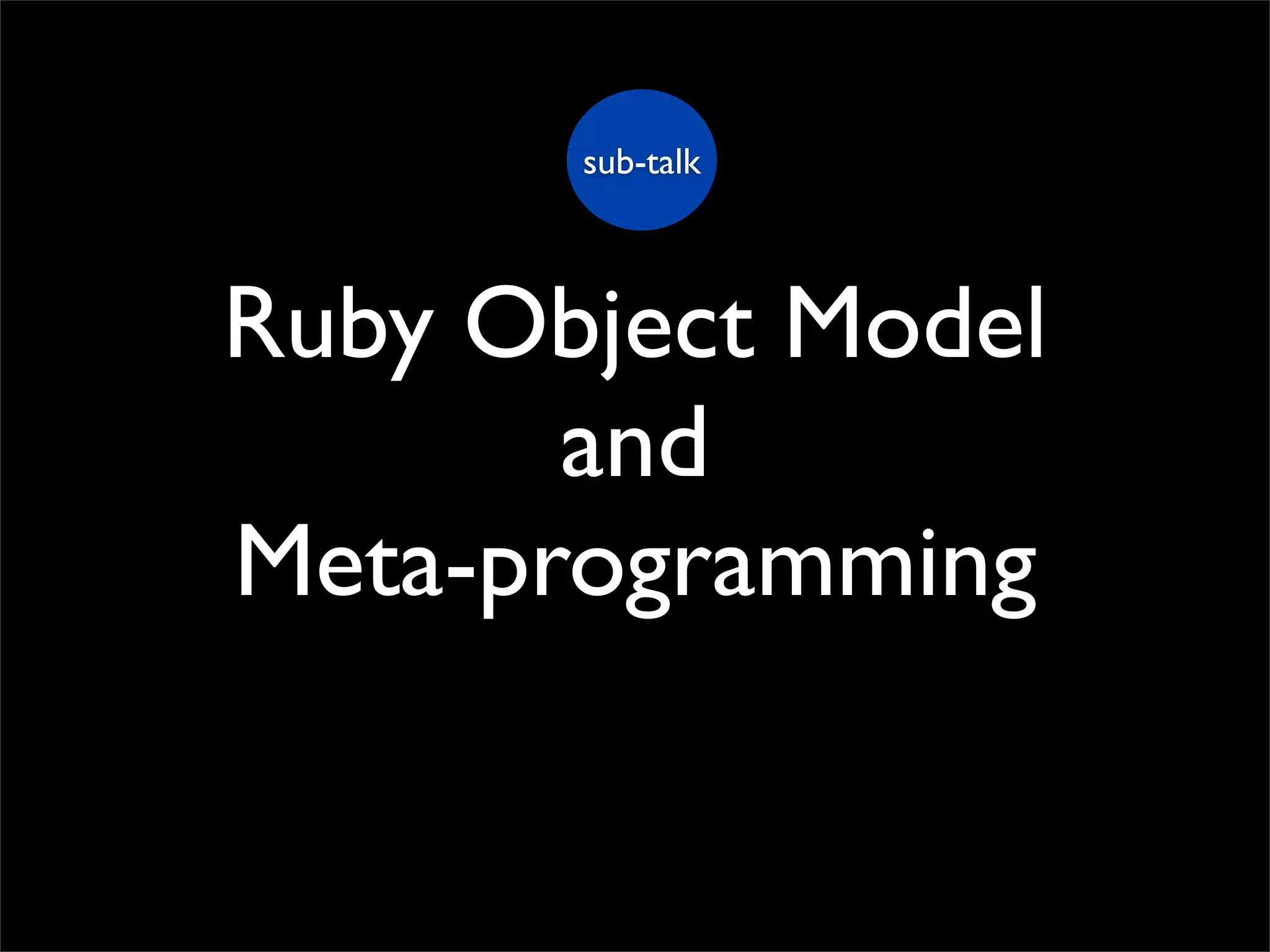
![self (current object) class Demo puts self # Demo def blah puts self # <Demo:0x10180f398> object [1,2,3].each do |i| puts self # <Demo:0x10180f398> object end end class AnotherDemo puts self # Demo::AnotherDemo end end](https://image.slidesharecdn.com/designing-ruby-apis-100424202457-phpapp01/75/Designing-Ruby-APIs-57-2048.jpg)

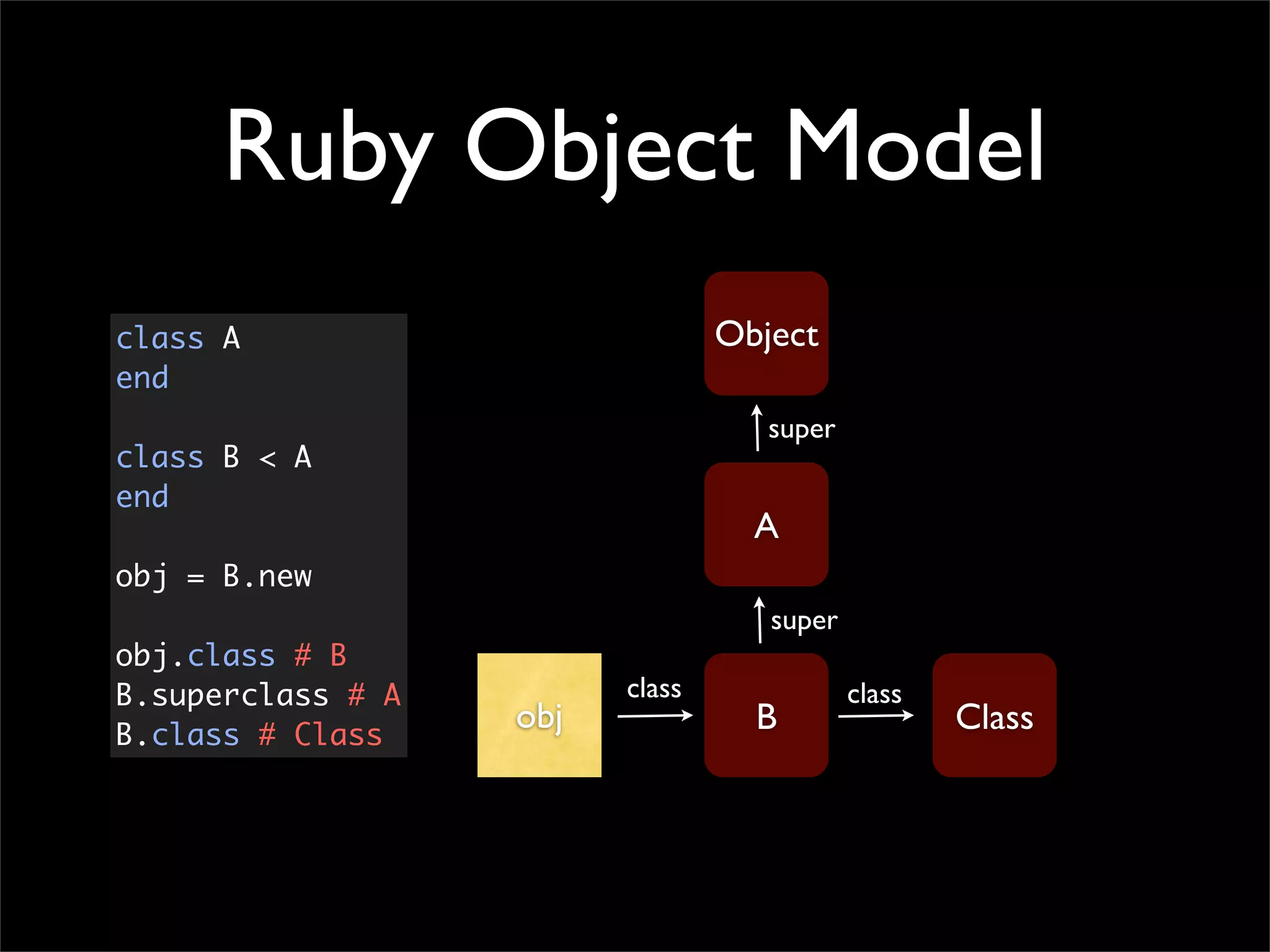
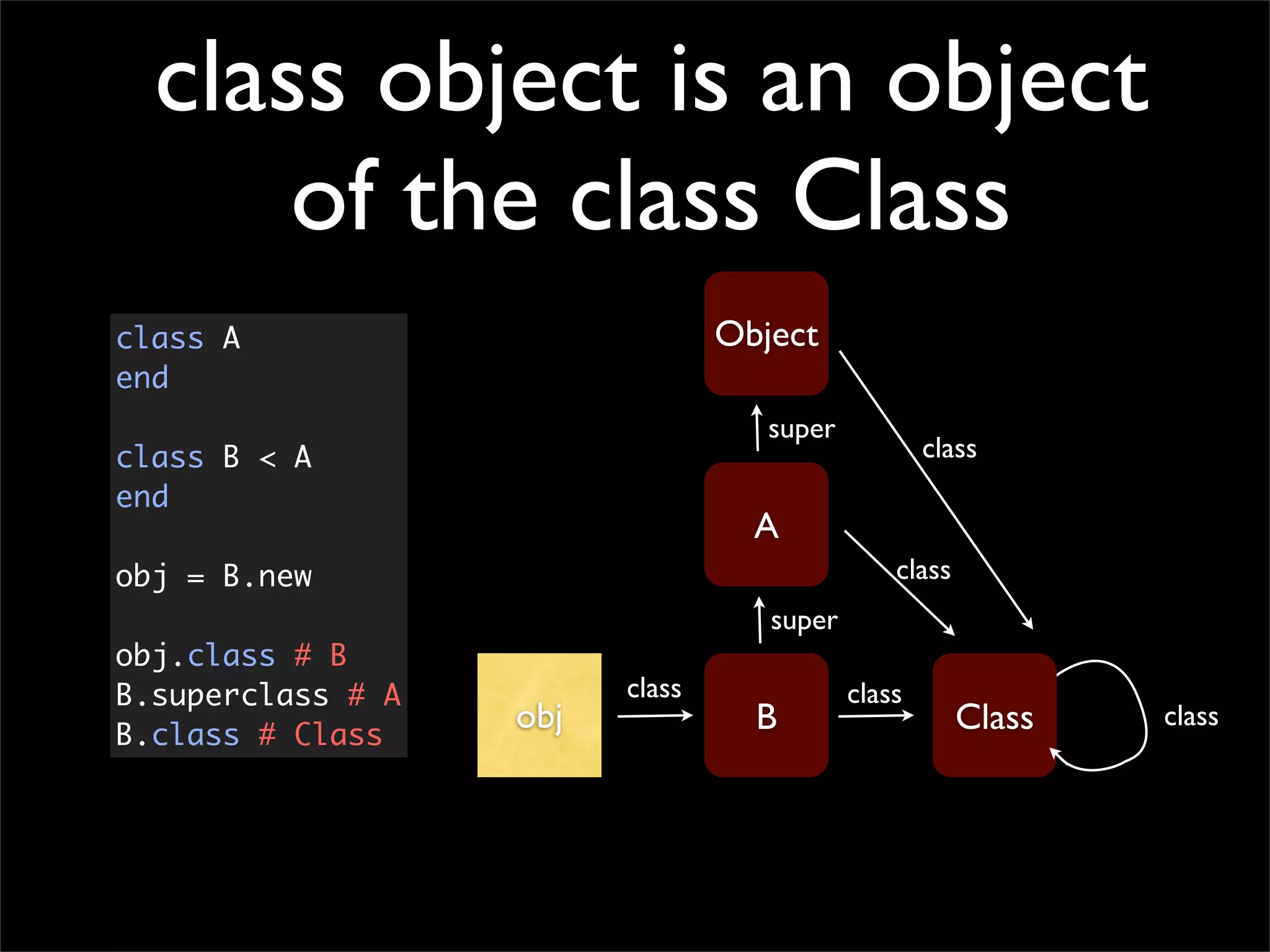
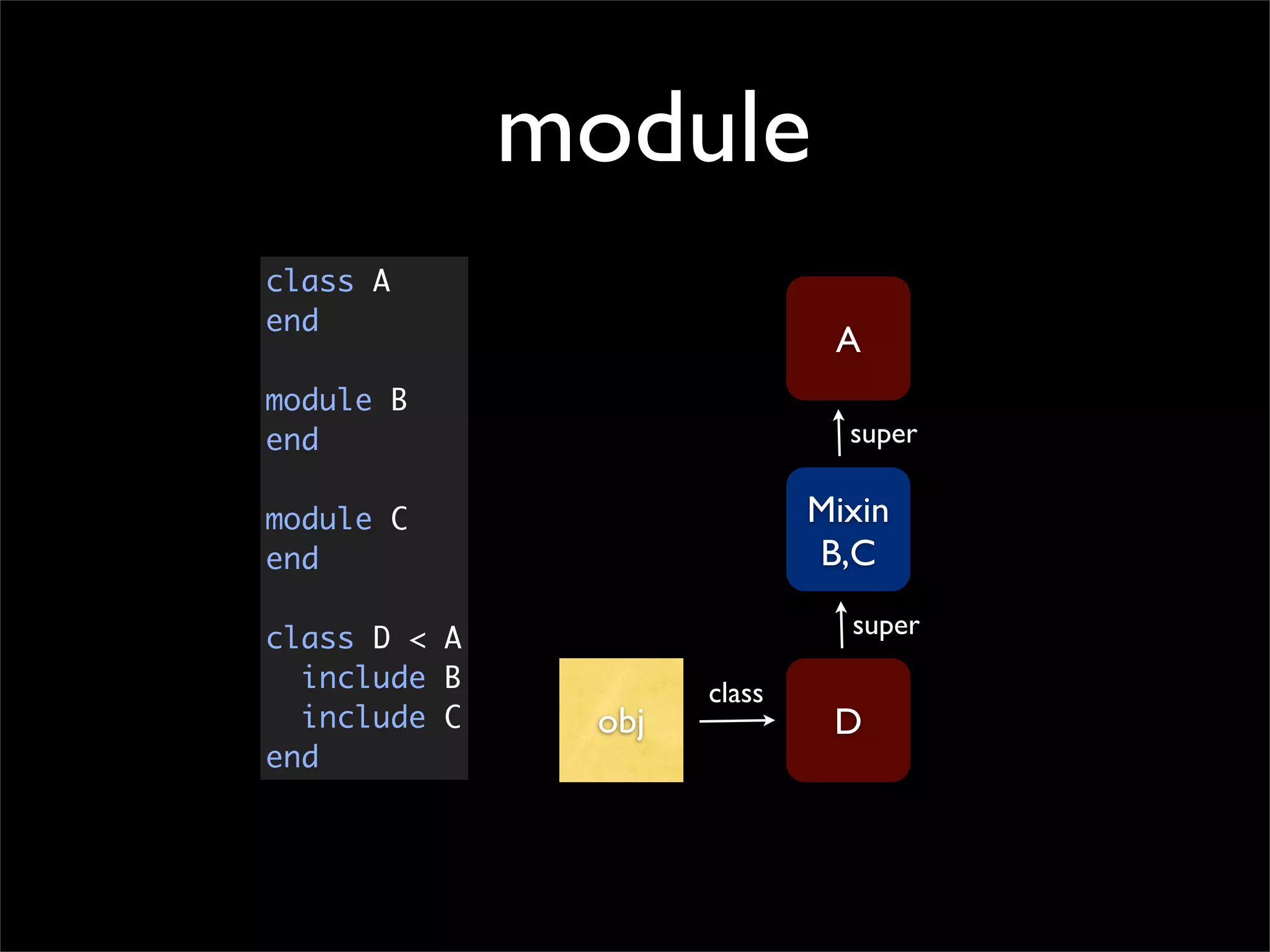
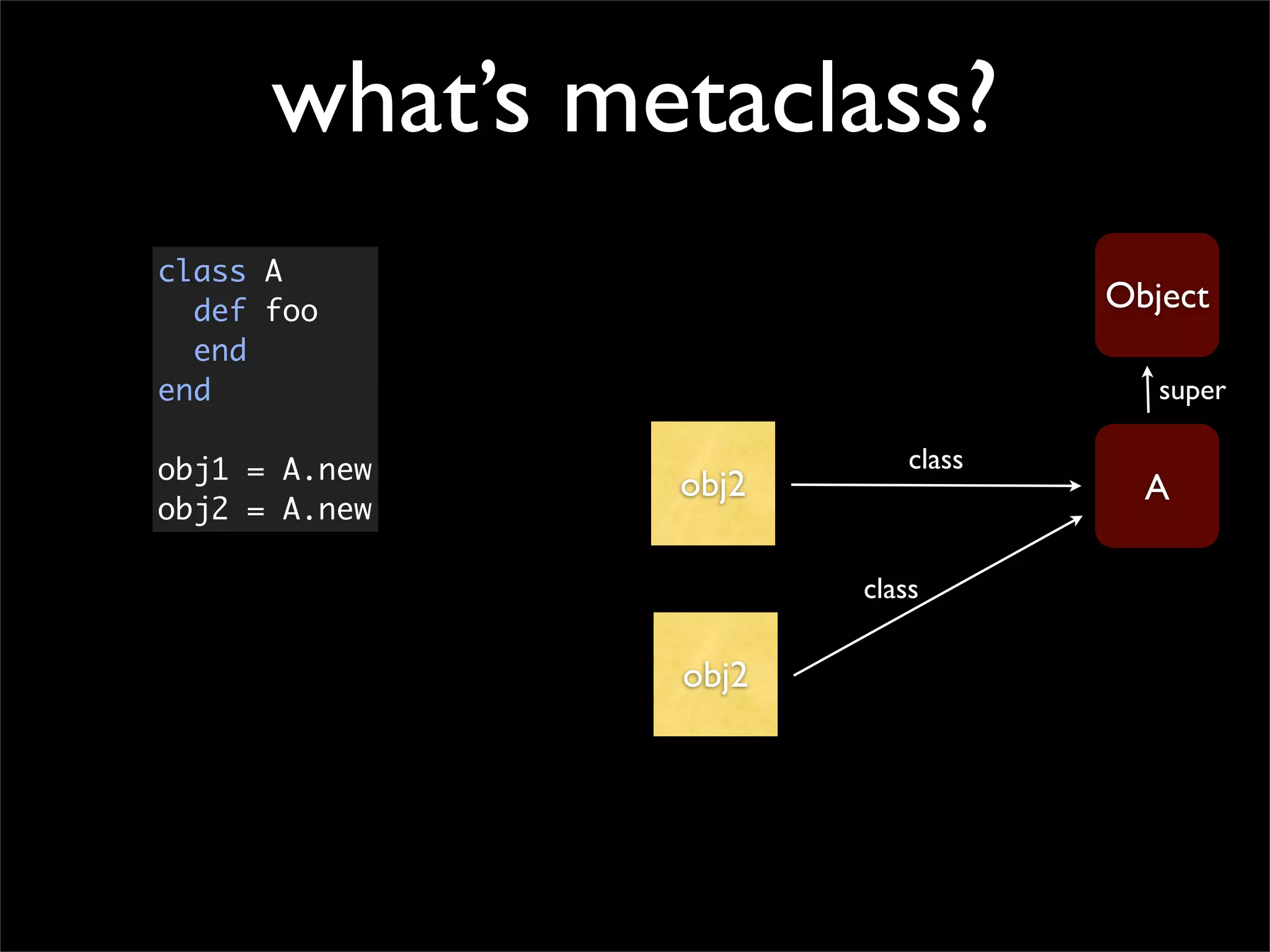
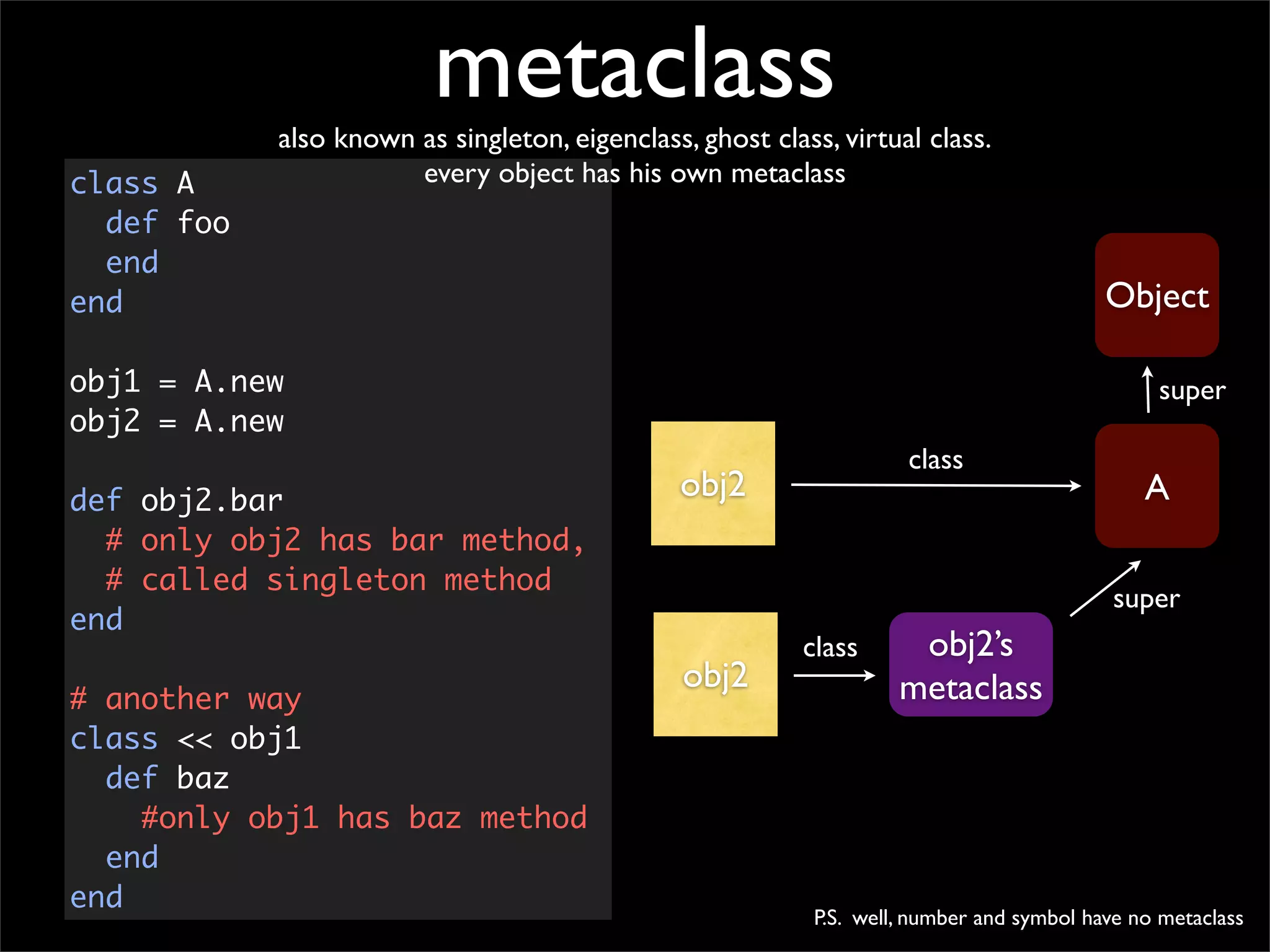
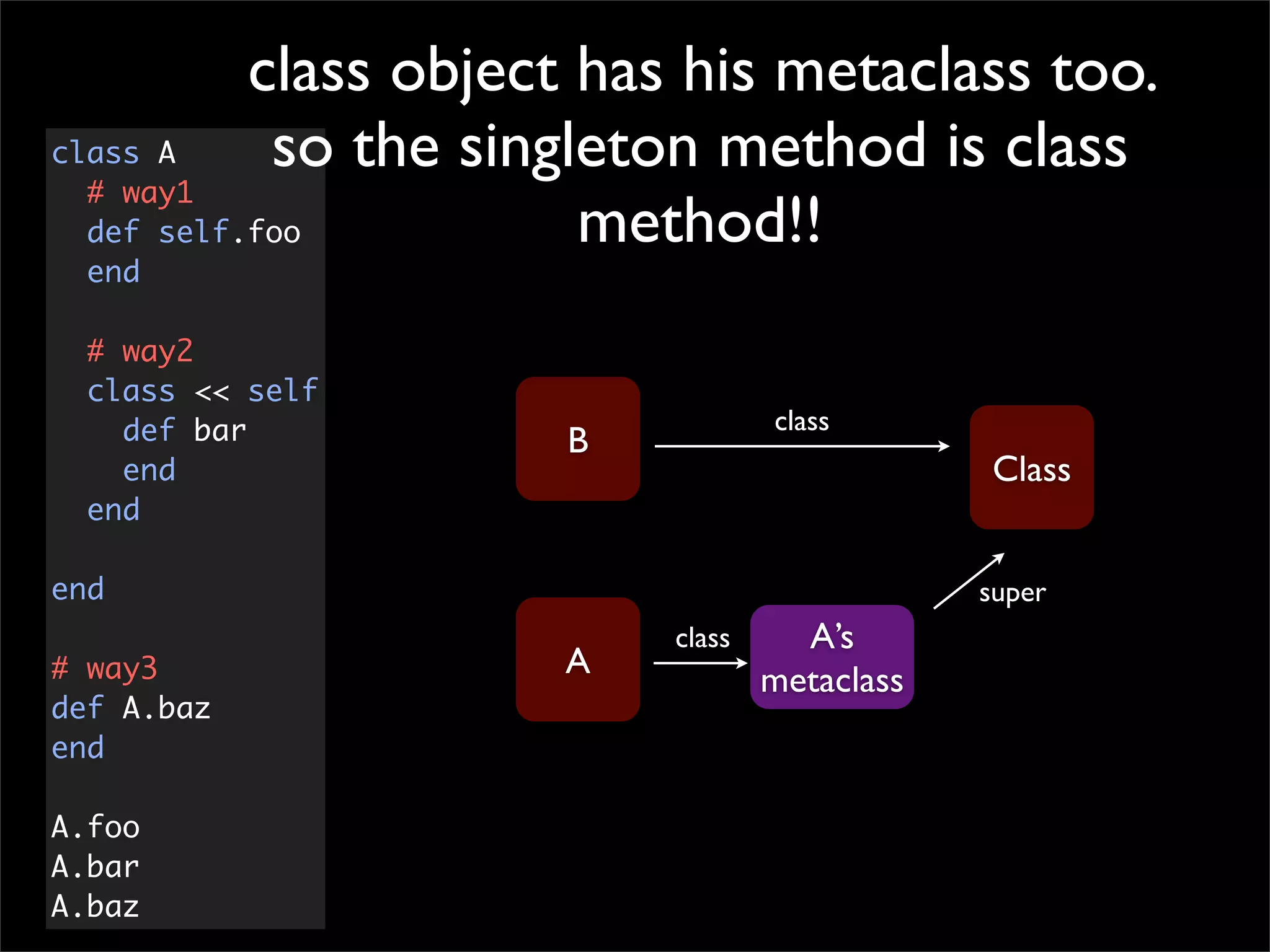
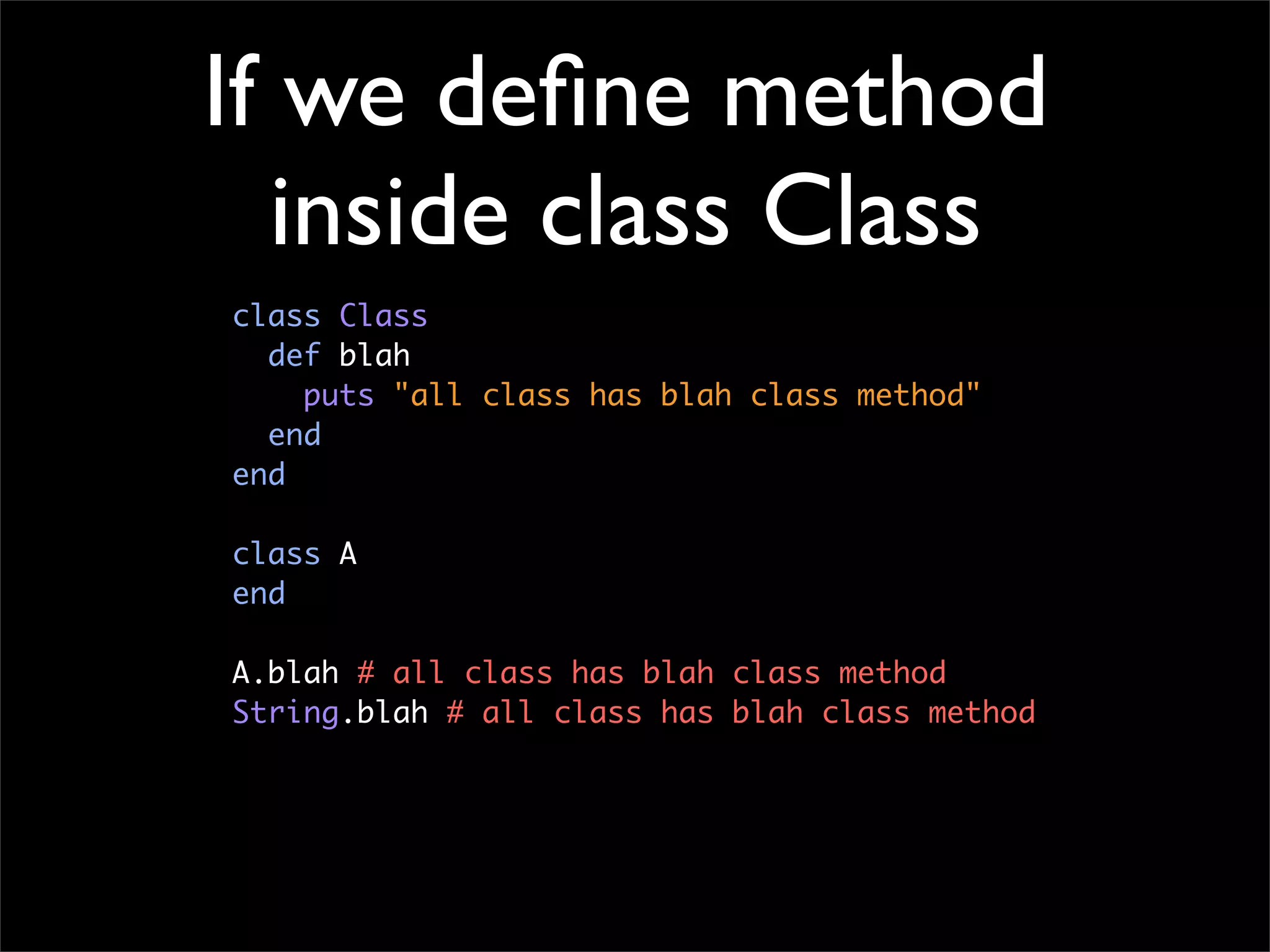
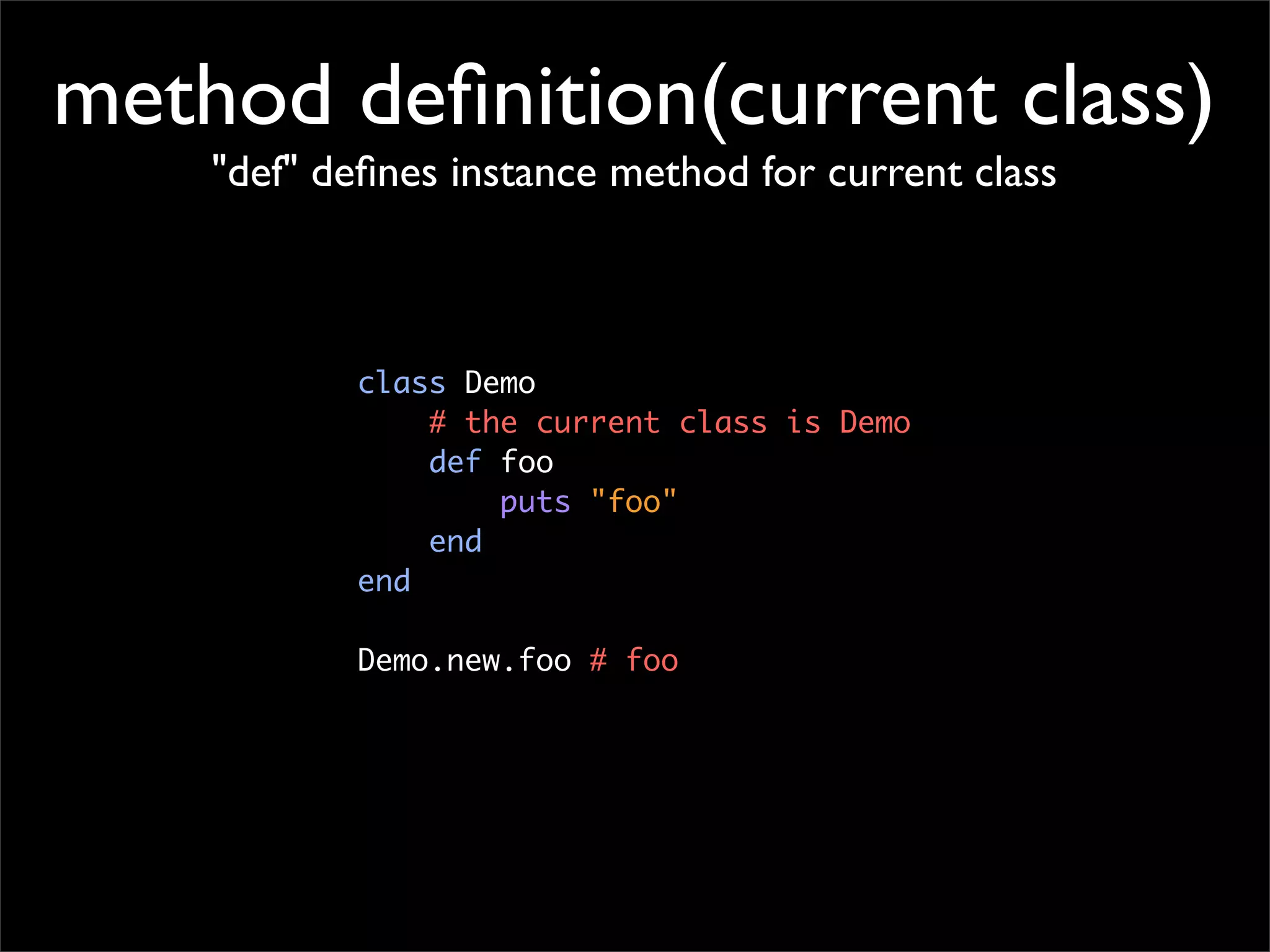
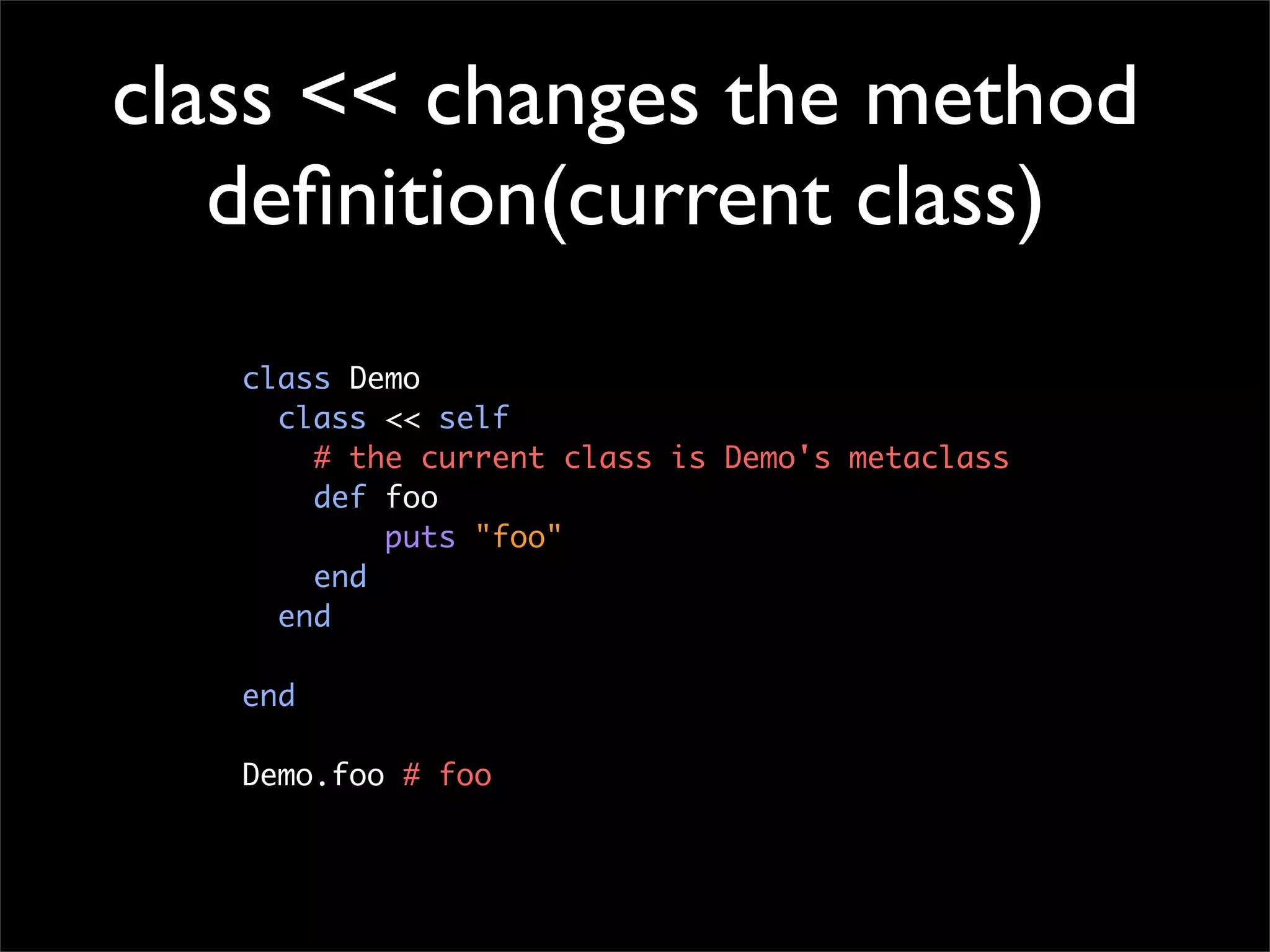
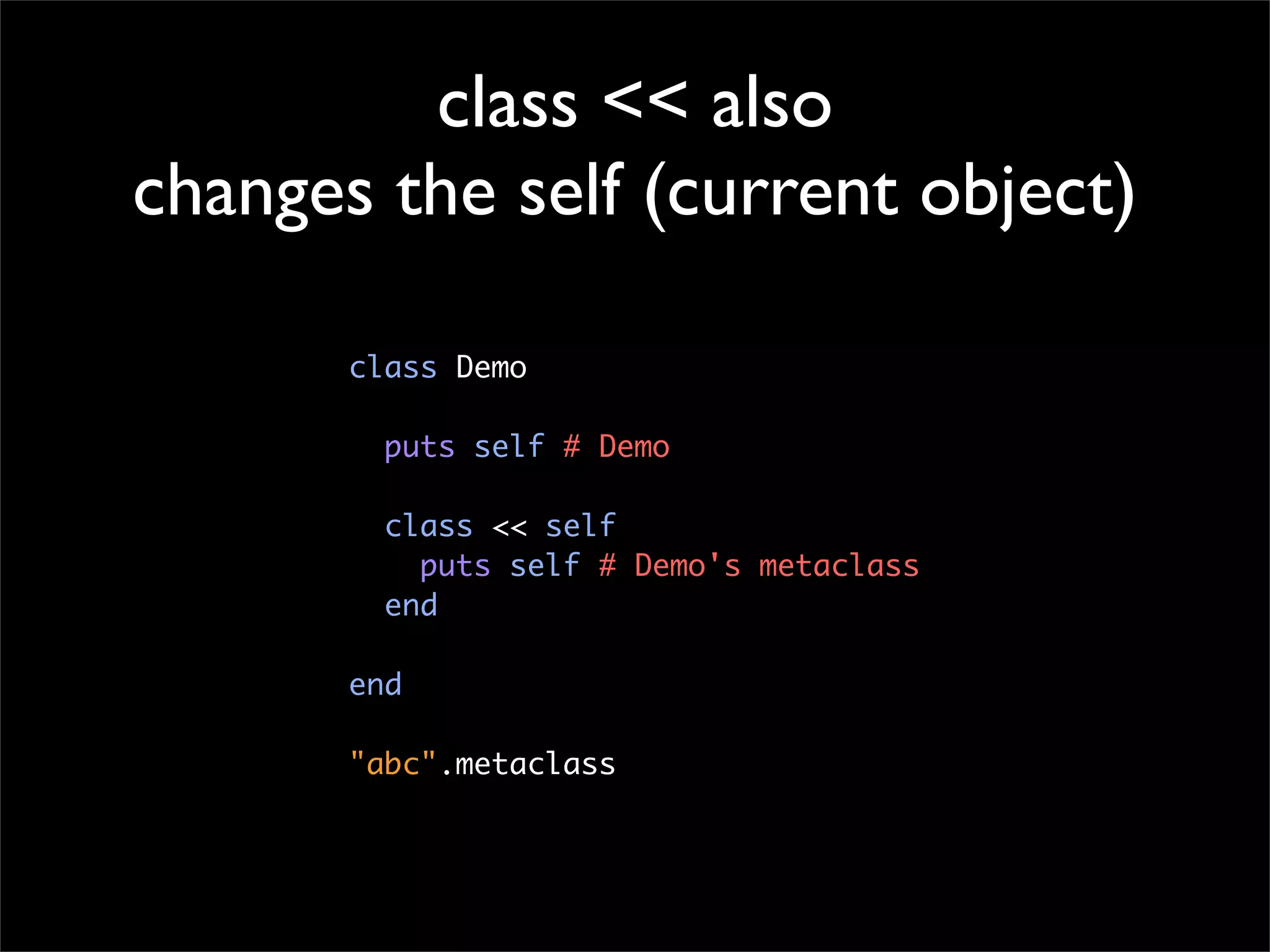
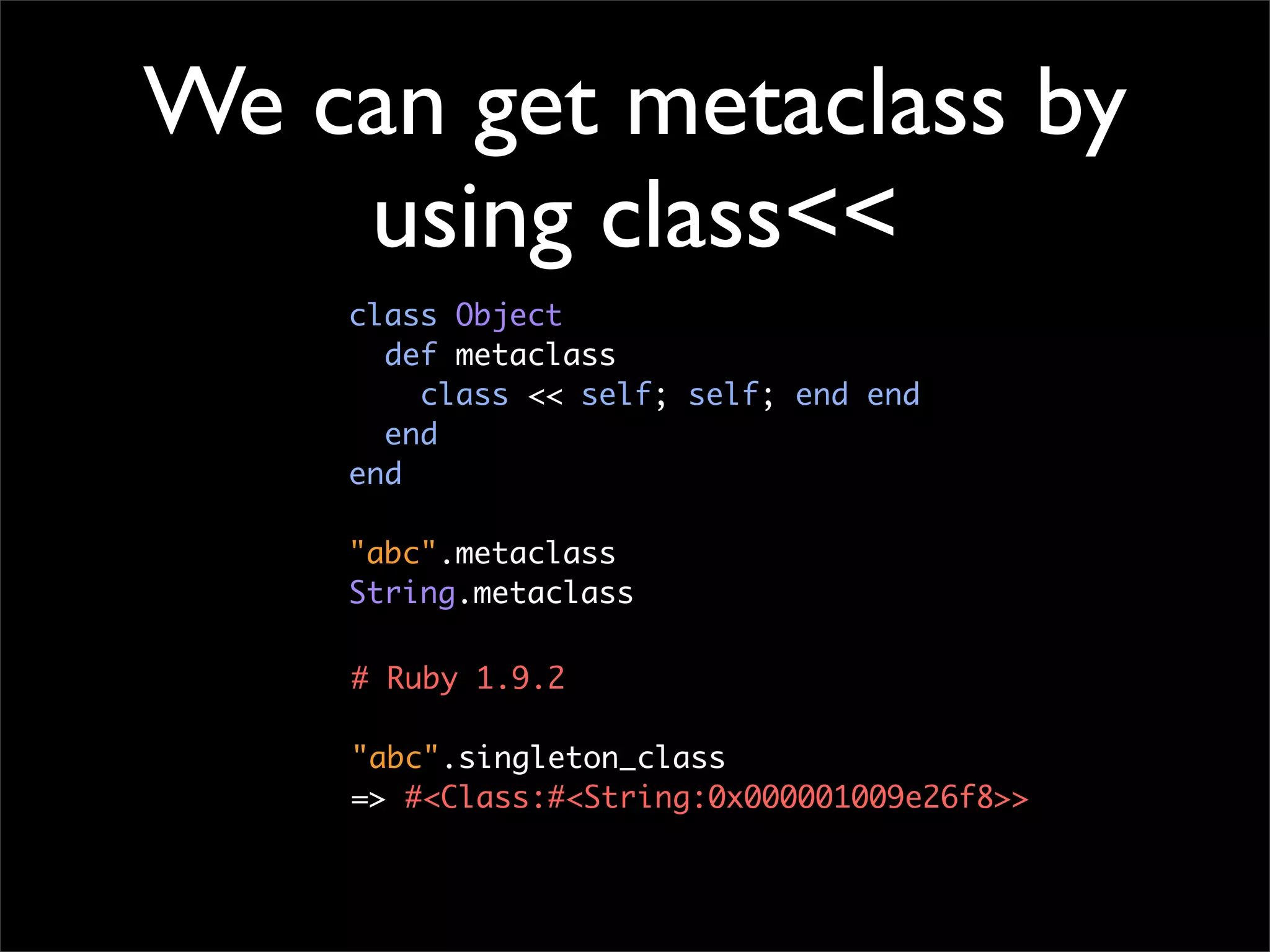
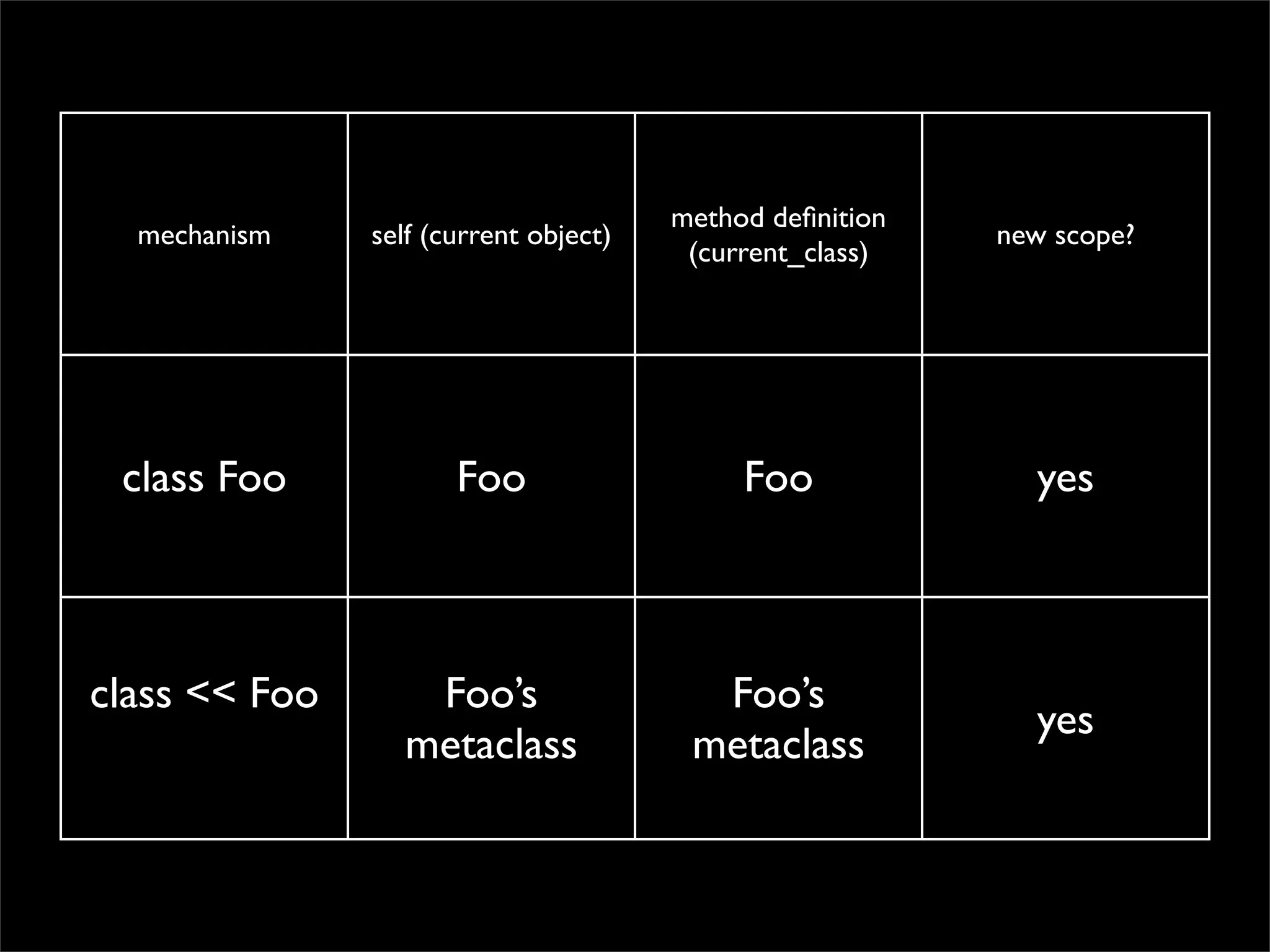
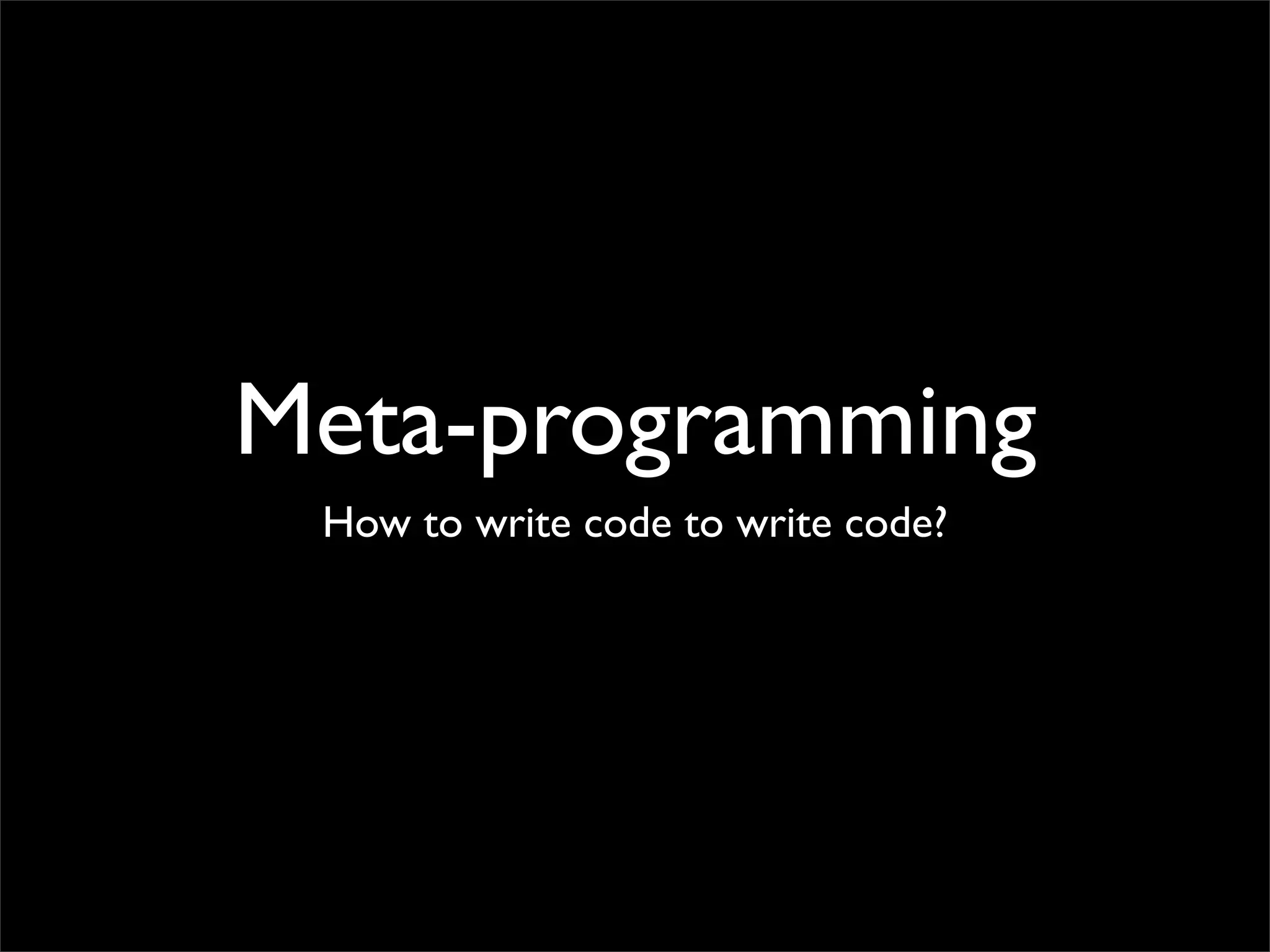
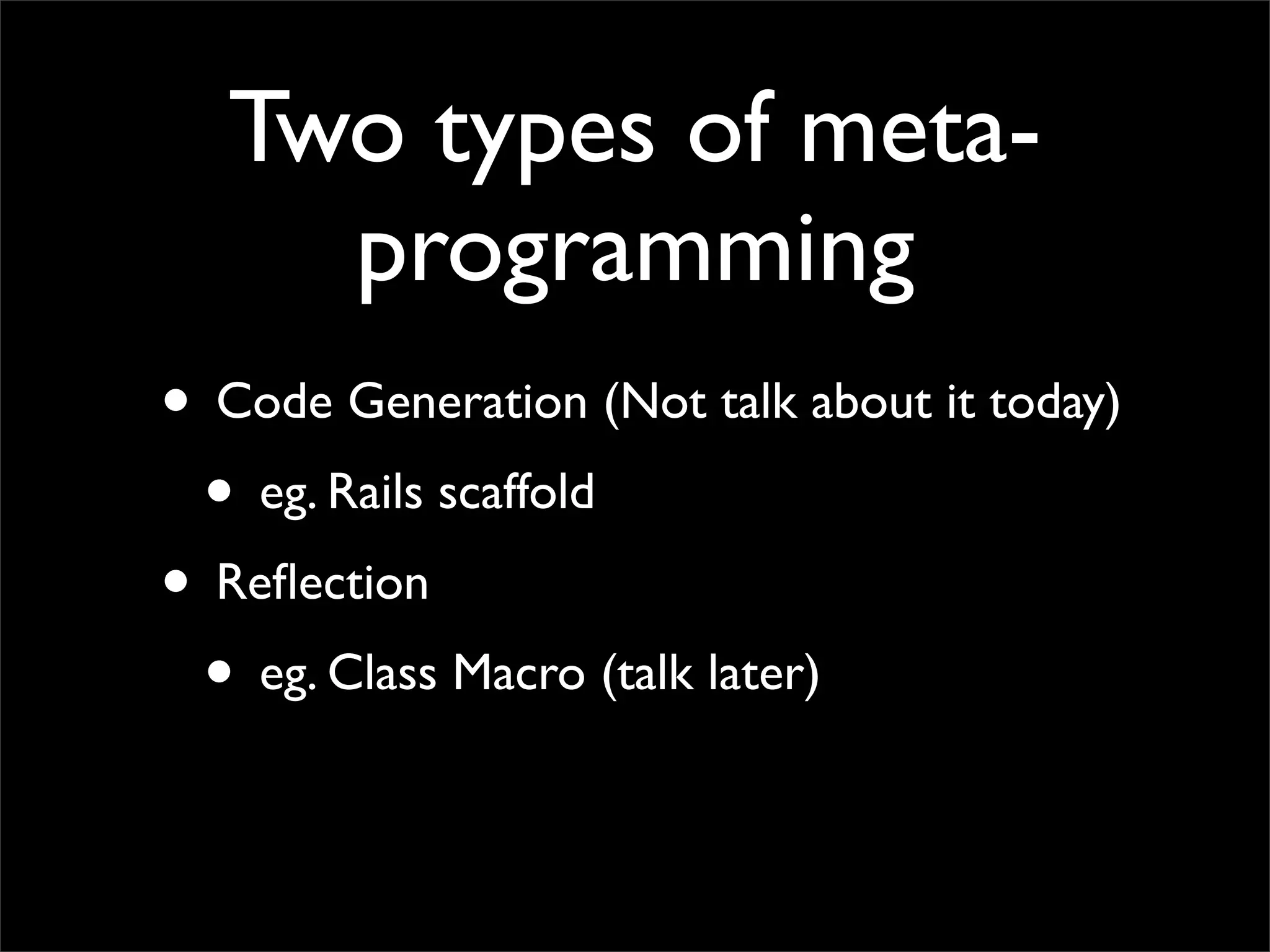

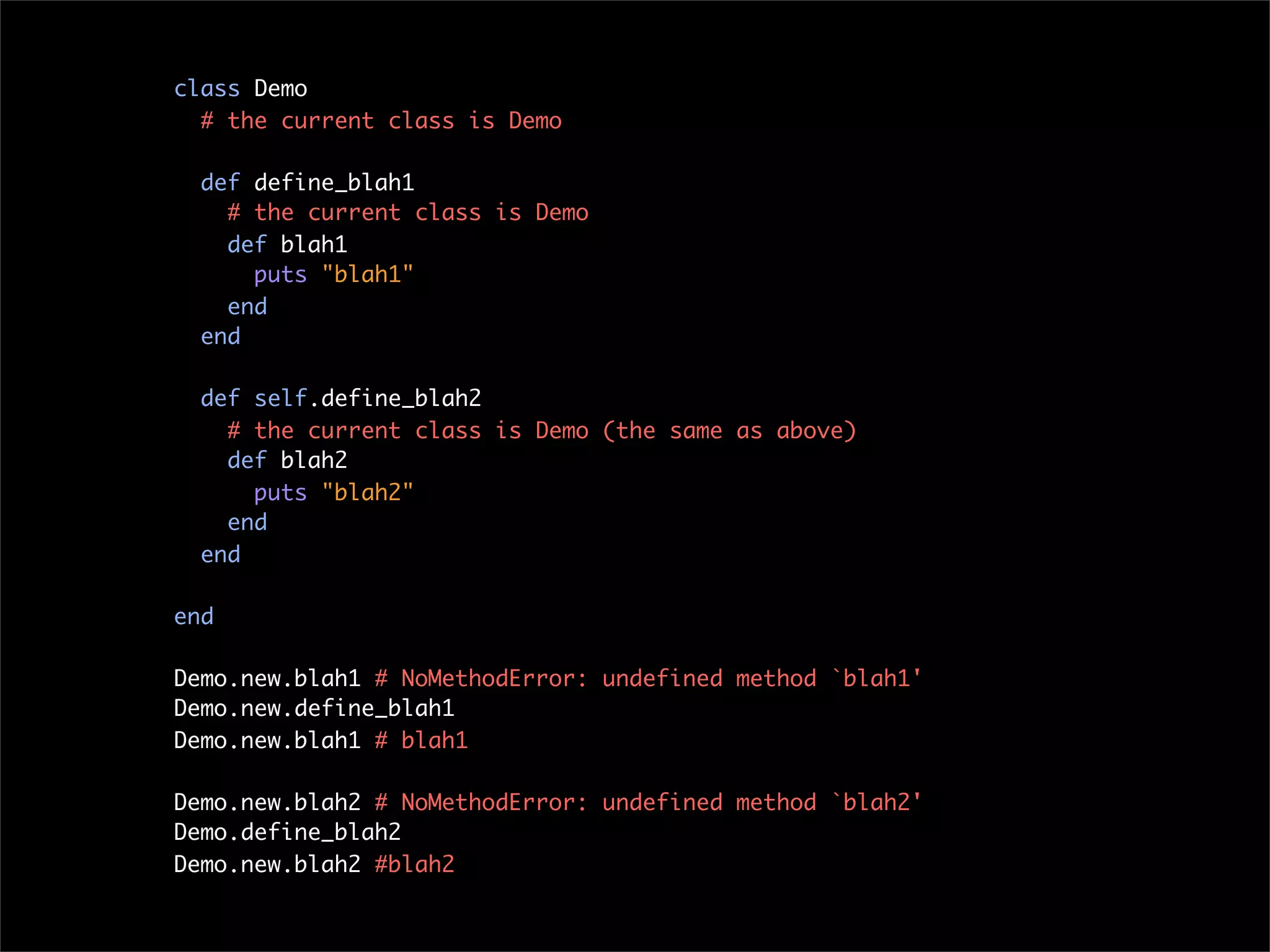

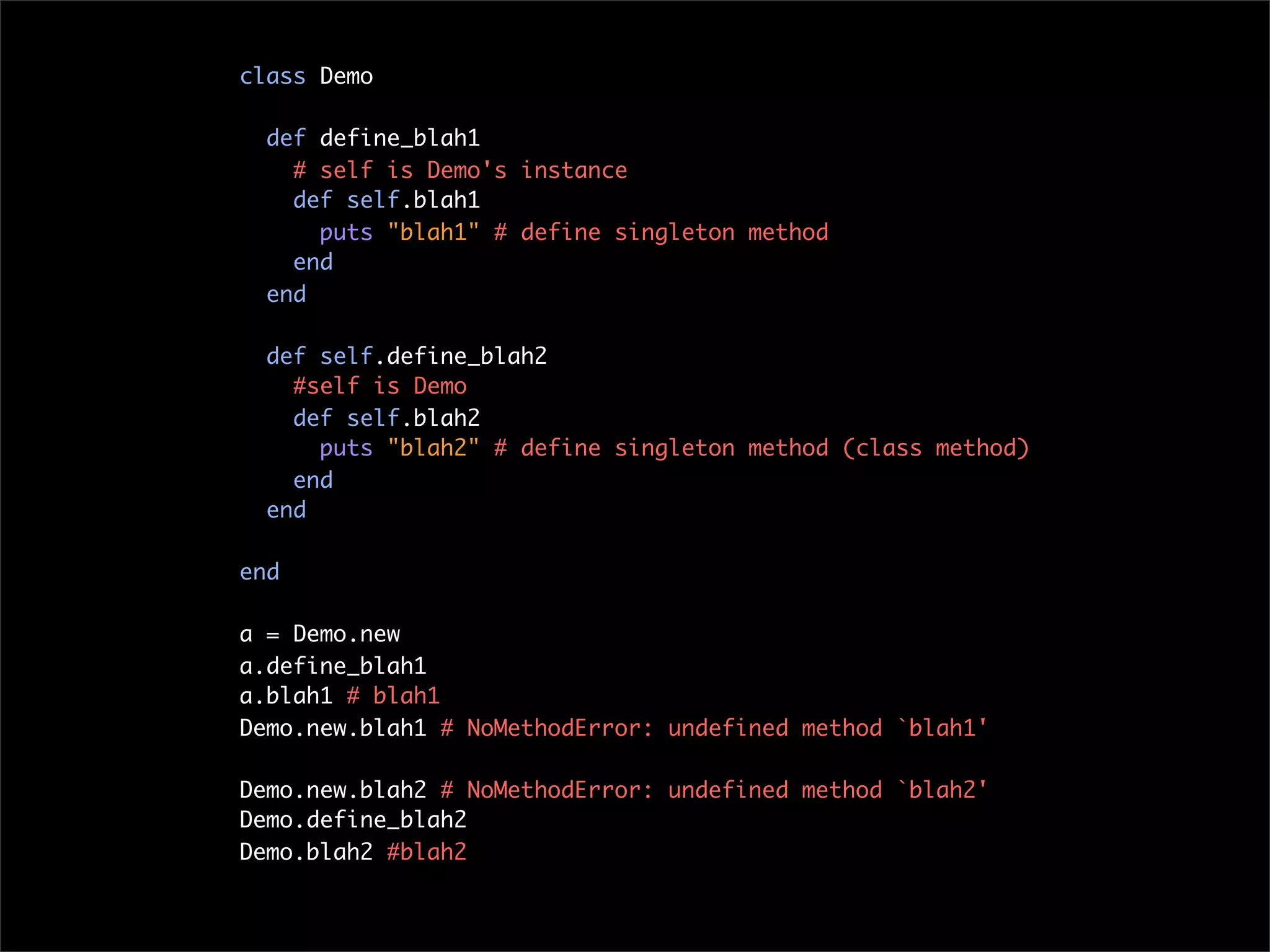


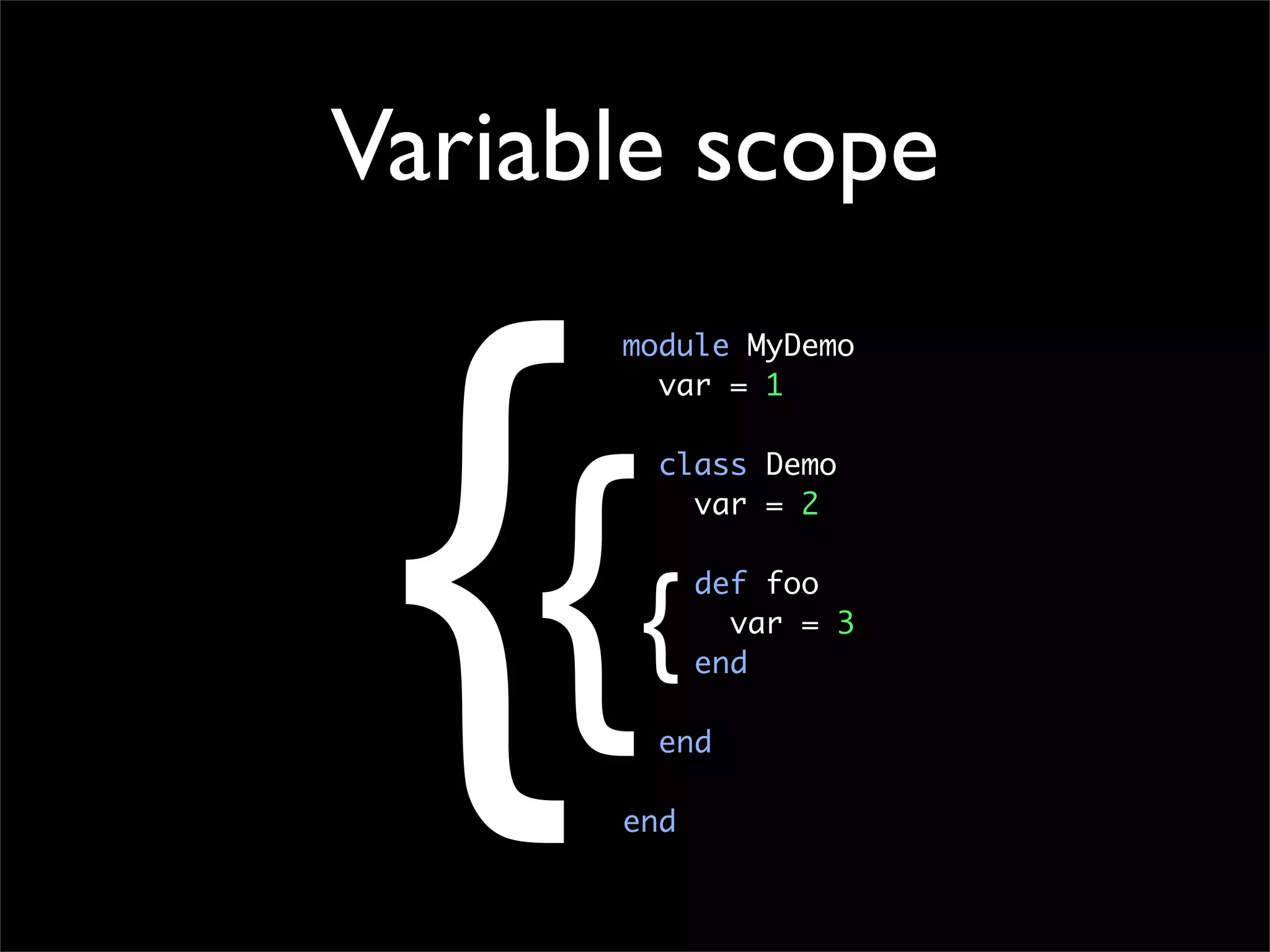
![block variable scope var1 = "foo" [1,2,3].each do |i| puts var var1 = "bar" var2 = "baz" end puts var1 # foo puts var2 # NameError: undefined local variable or method](https://image.slidesharecdn.com/designing-ruby-apis-100424202457-phpapp01/75/Designing-Ruby-APIs-80-2048.jpg)
![define_method unlike “def”, you can access outside variable!! class Demo # define instance methods ["aaa", "bbb", "ccc"].each do |name| define_method(name) do puts name.upcase end end # define class methods class << self ["xxx", "yyy", "zzz"].each do |name| define_method(name) do puts name.upcase end end end end Demo.new.aaa # AAA Demo.new.bbb # BBB Demo.yyy # YYY Demo.zzz # ZZZ](https://image.slidesharecdn.com/designing-ruby-apis-100424202457-phpapp01/75/Designing-Ruby-APIs-81-2048.jpg)
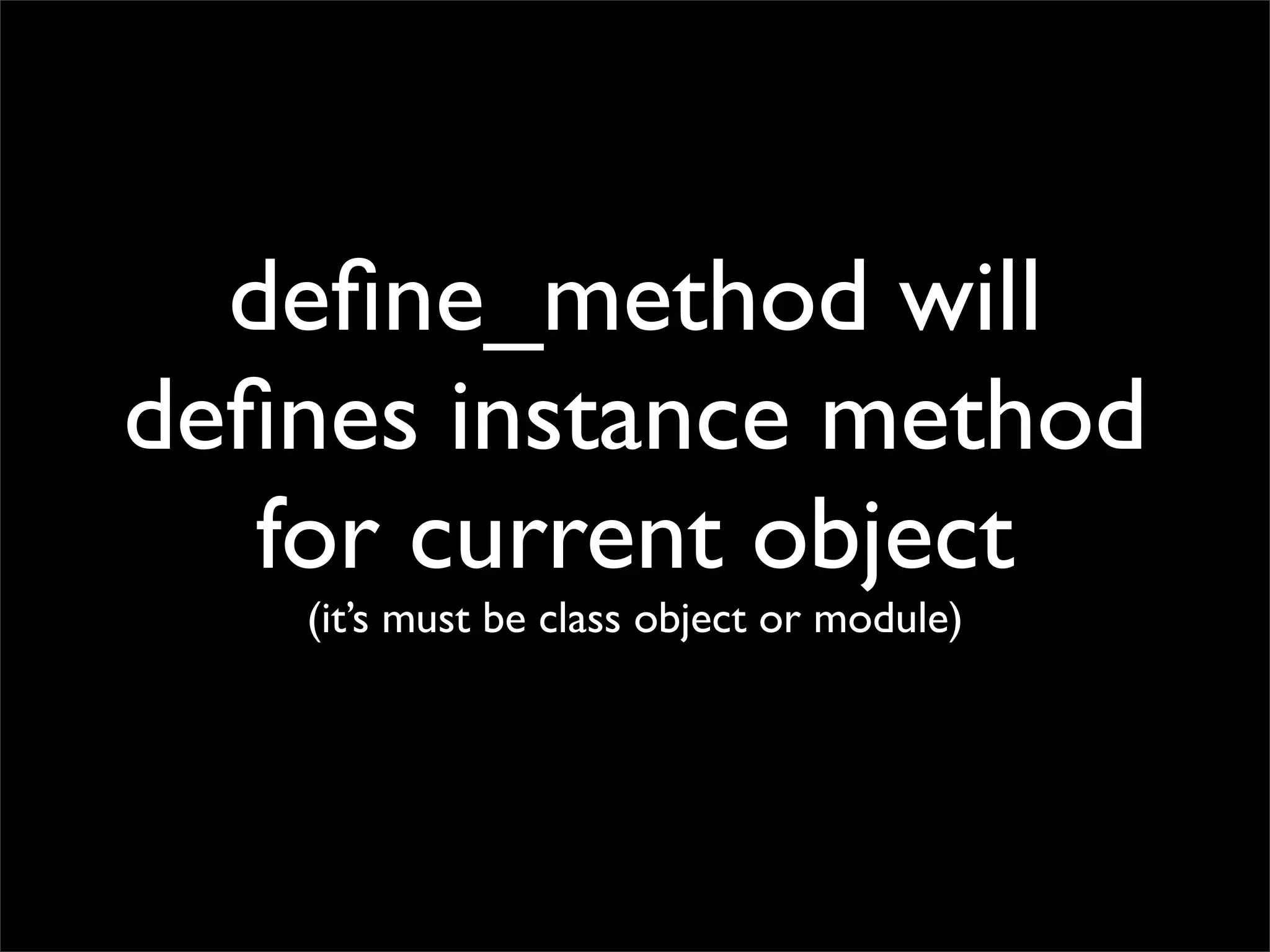
![class Class def define_more_methods # define instance methods ["aaa", "bbb", "ccc"].each do |name| Use class define_method(name) do puts name.upcase end end method to # define class methods class << self define methods ["xxx", "yyy", "zzz"].each do |name| define_method(name) do puts name.upcase (global) end end end end end class Demo define_more_methods end](https://image.slidesharecdn.com/designing-ruby-apis-100424202457-phpapp01/75/Designing-Ruby-APIs-83-2048.jpg)
![module Mixin module ClassMethods def define_more_methods # define instance methods ["aaa", "bbb", "ccc"].each do |name| define_method(name) do Use class puts name.upcase end end method to # define class methods class << self ["xxx", "yyy", "zzz"].each do |name| define methods define_method(name) do puts name.upcase end (localized) end end end end end class Demo extend Mixin::ClassMethods define_more_methods end](https://image.slidesharecdn.com/designing-ruby-apis-100424202457-phpapp01/75/Designing-Ruby-APIs-84-2048.jpg)

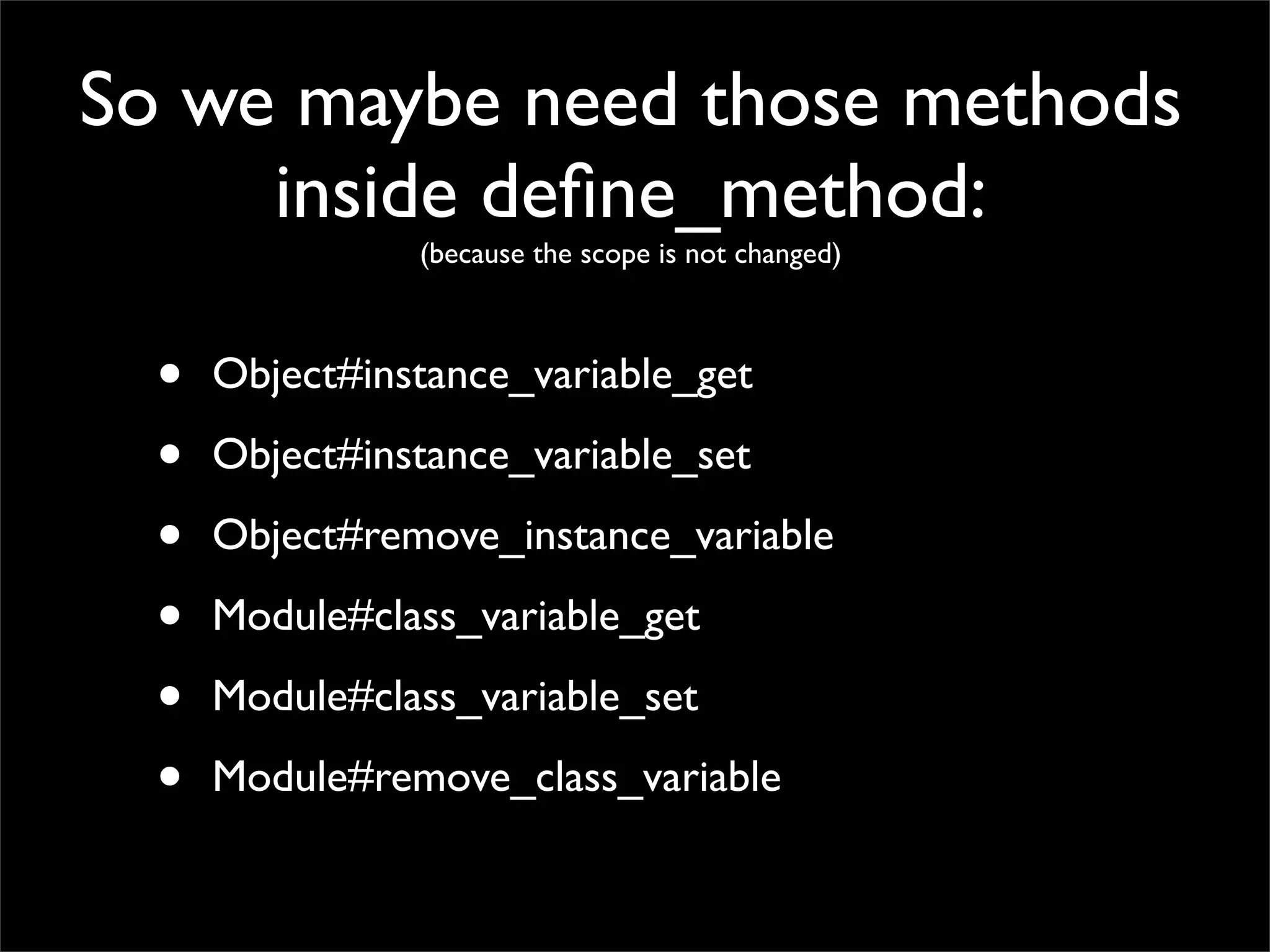


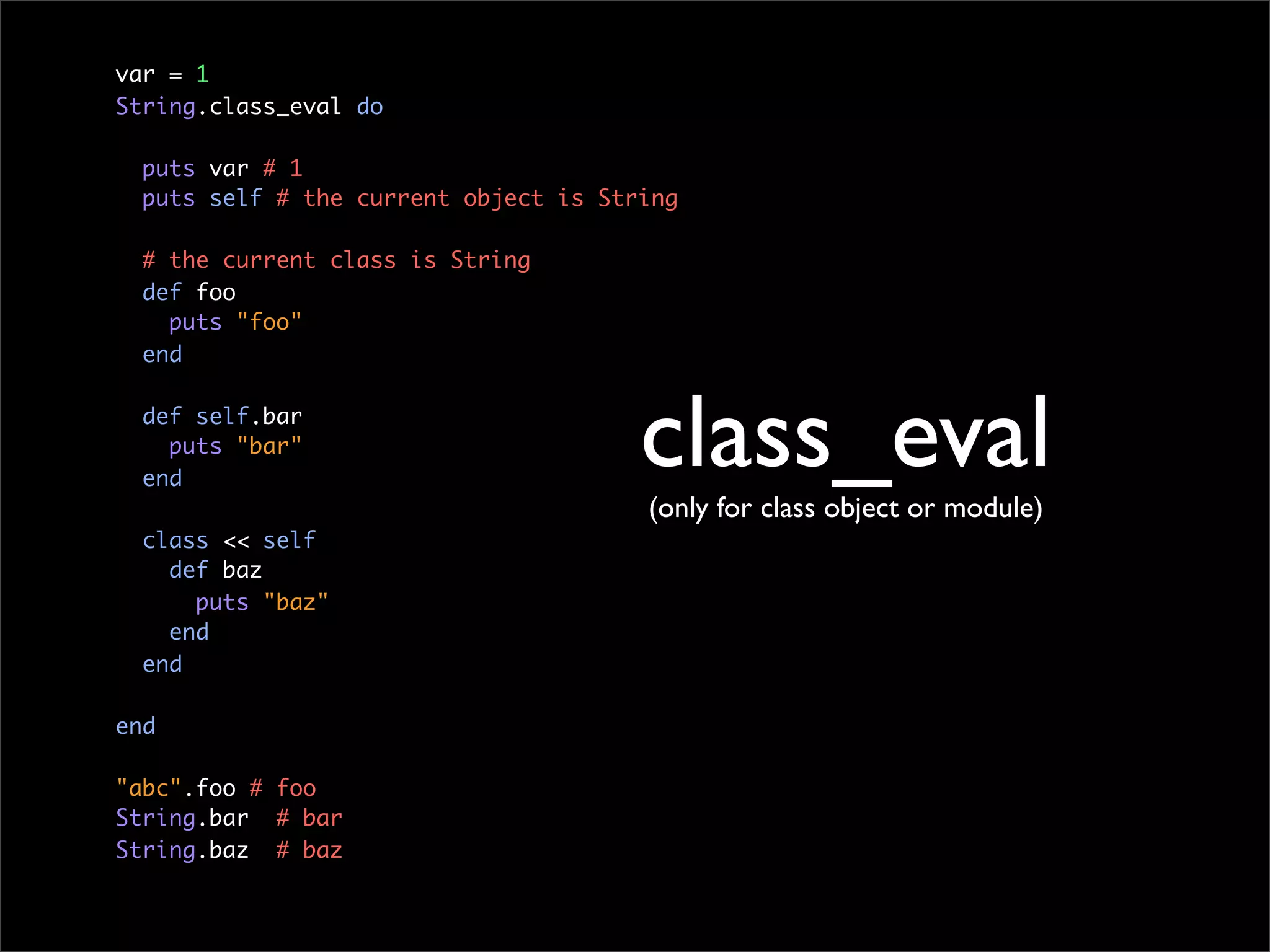
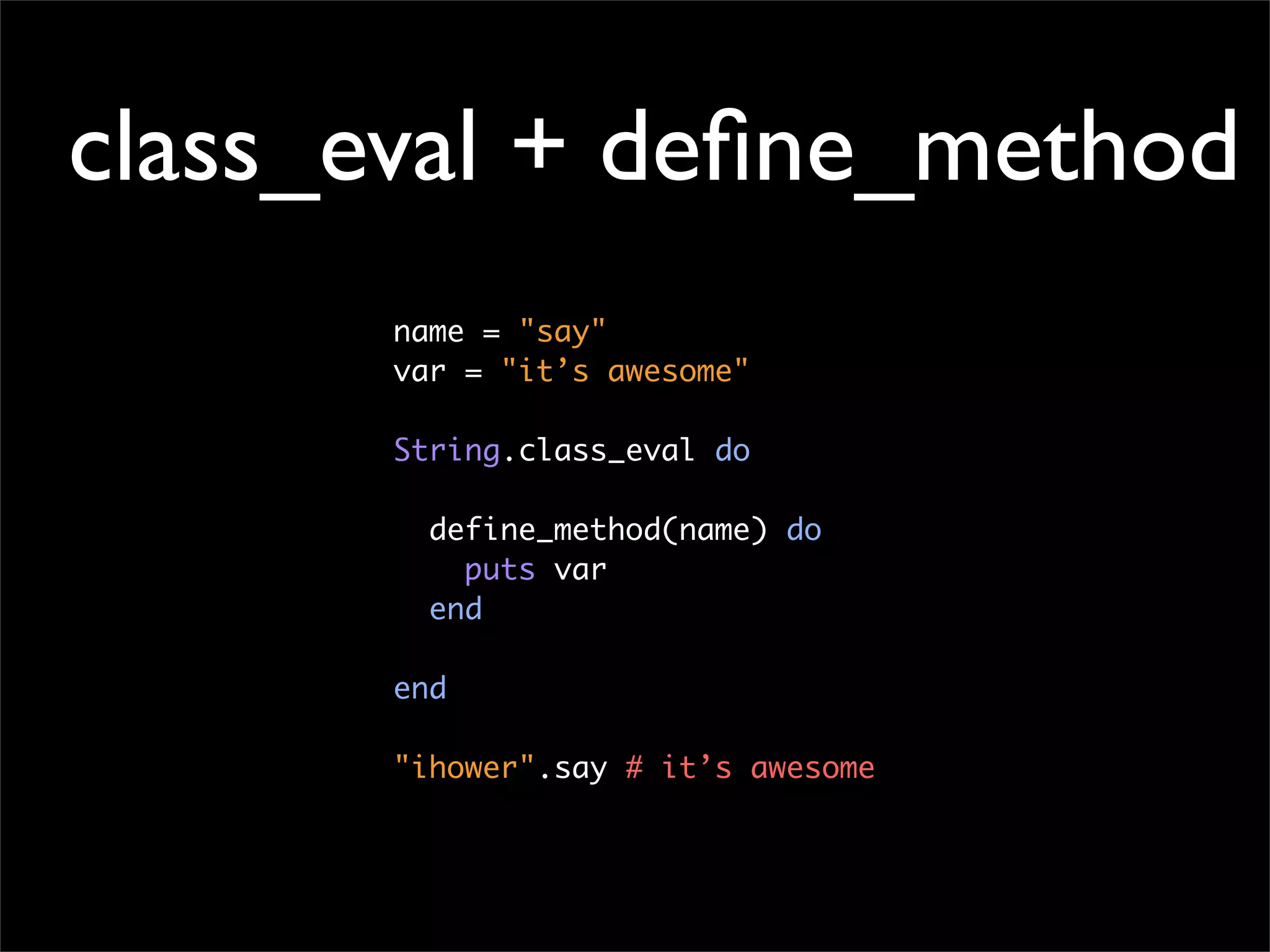

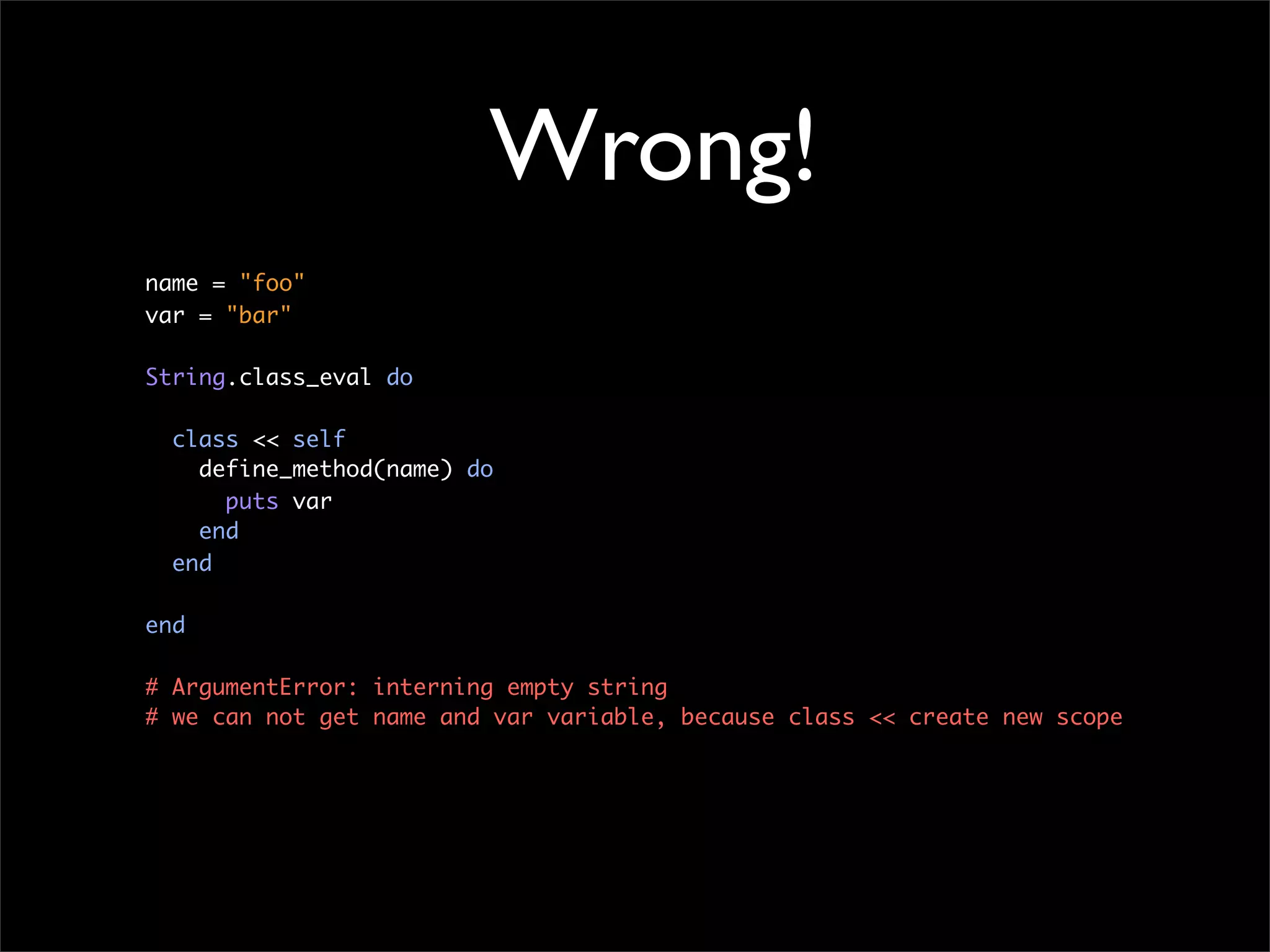
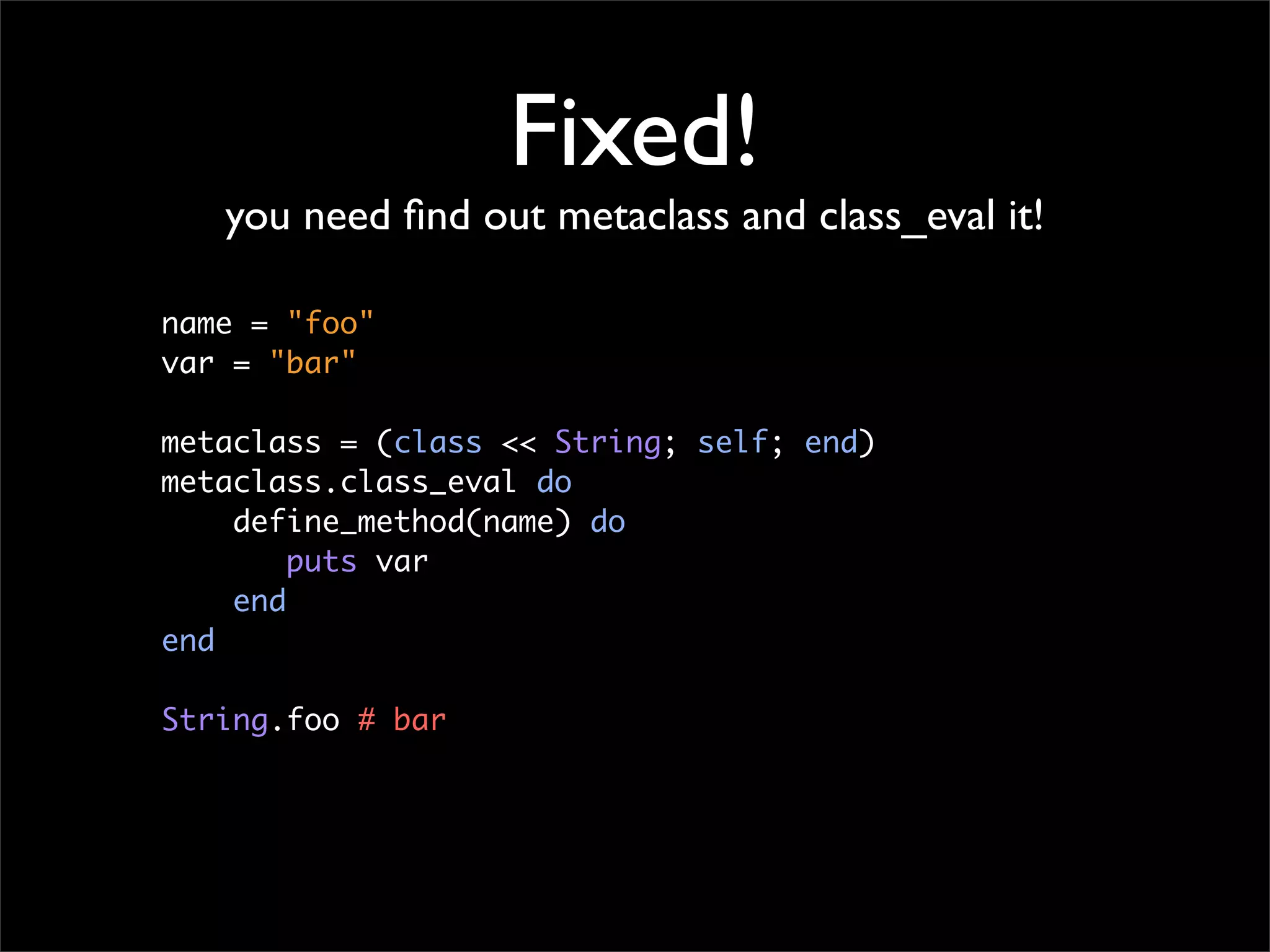

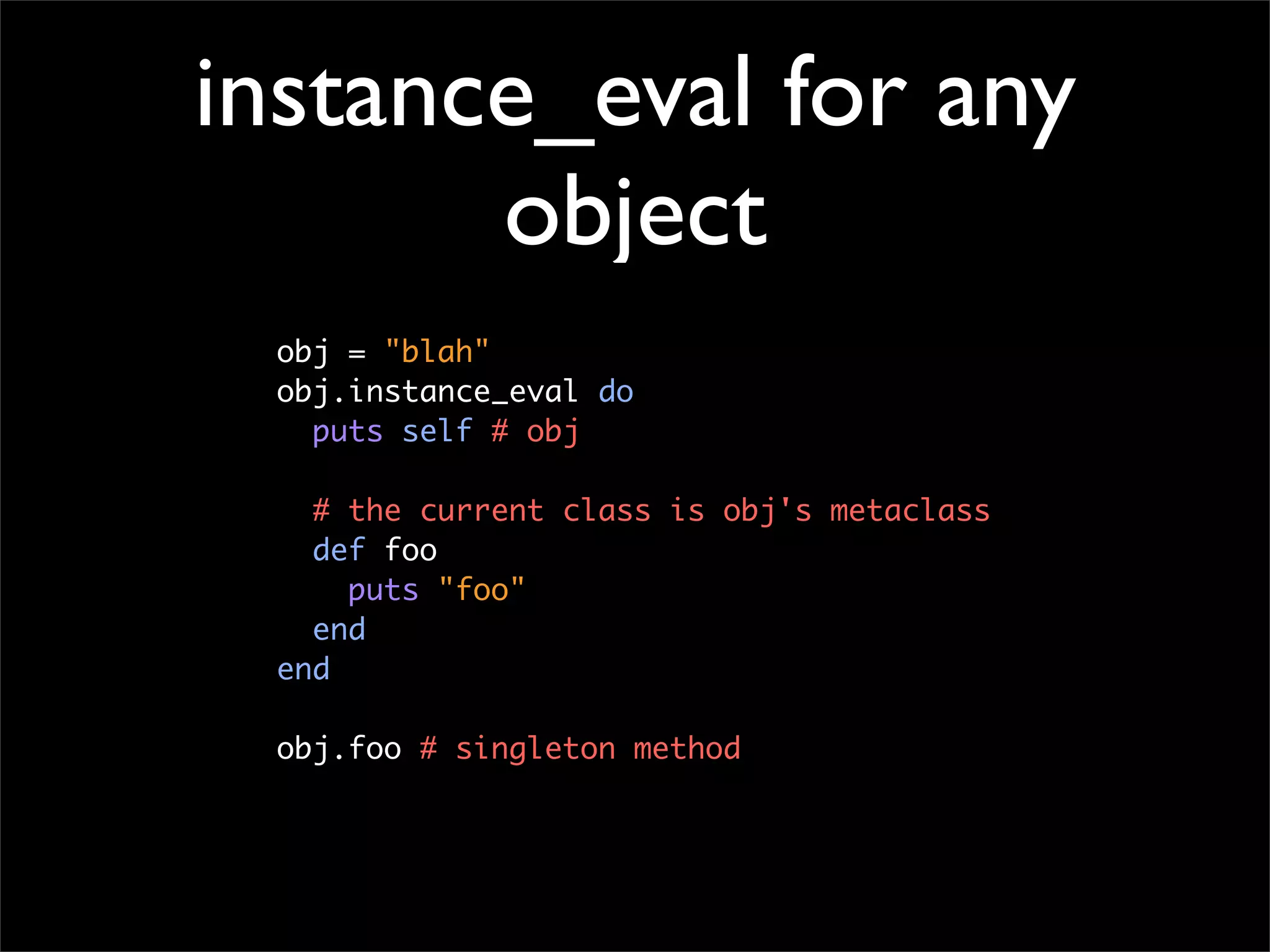
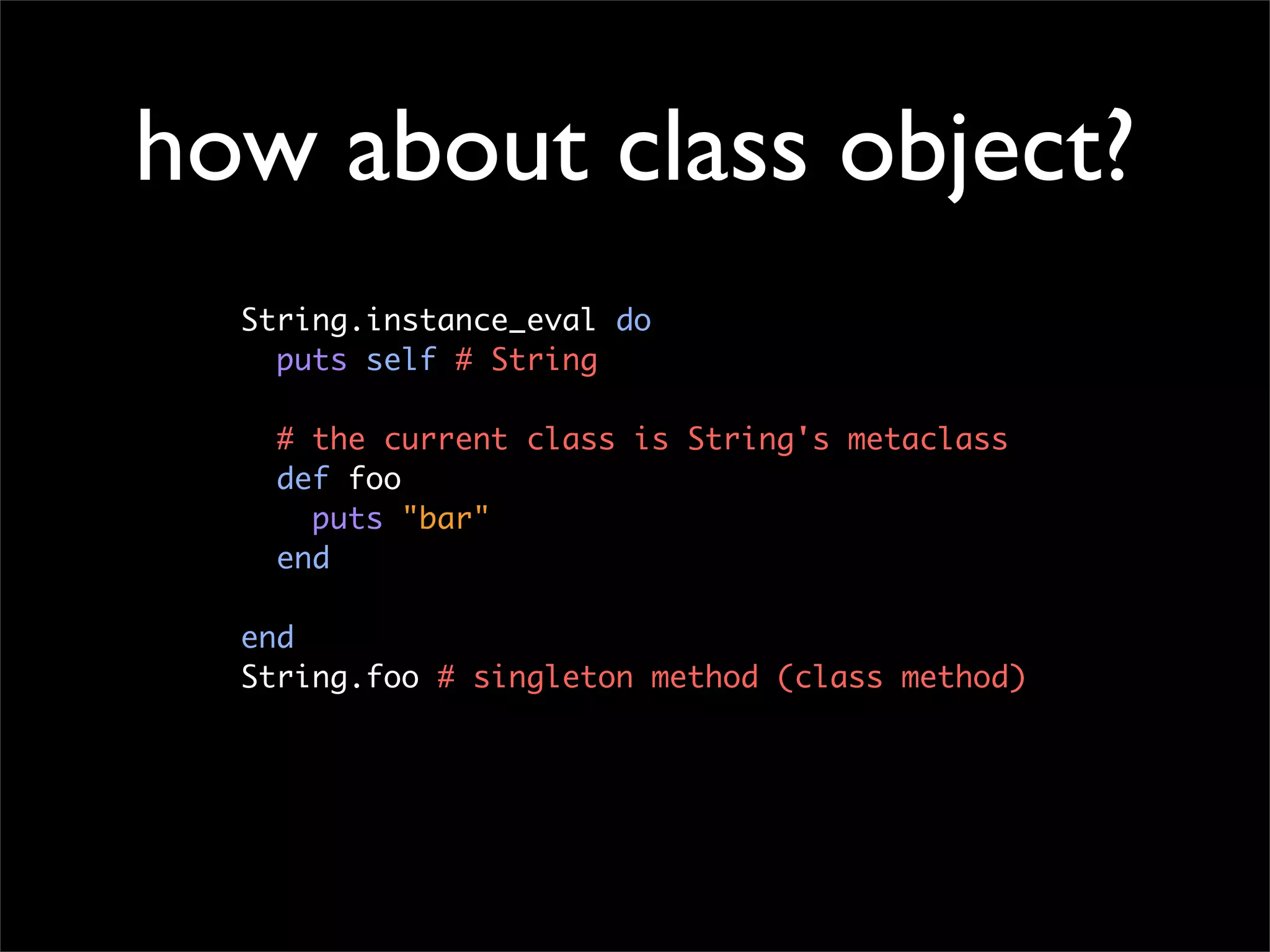
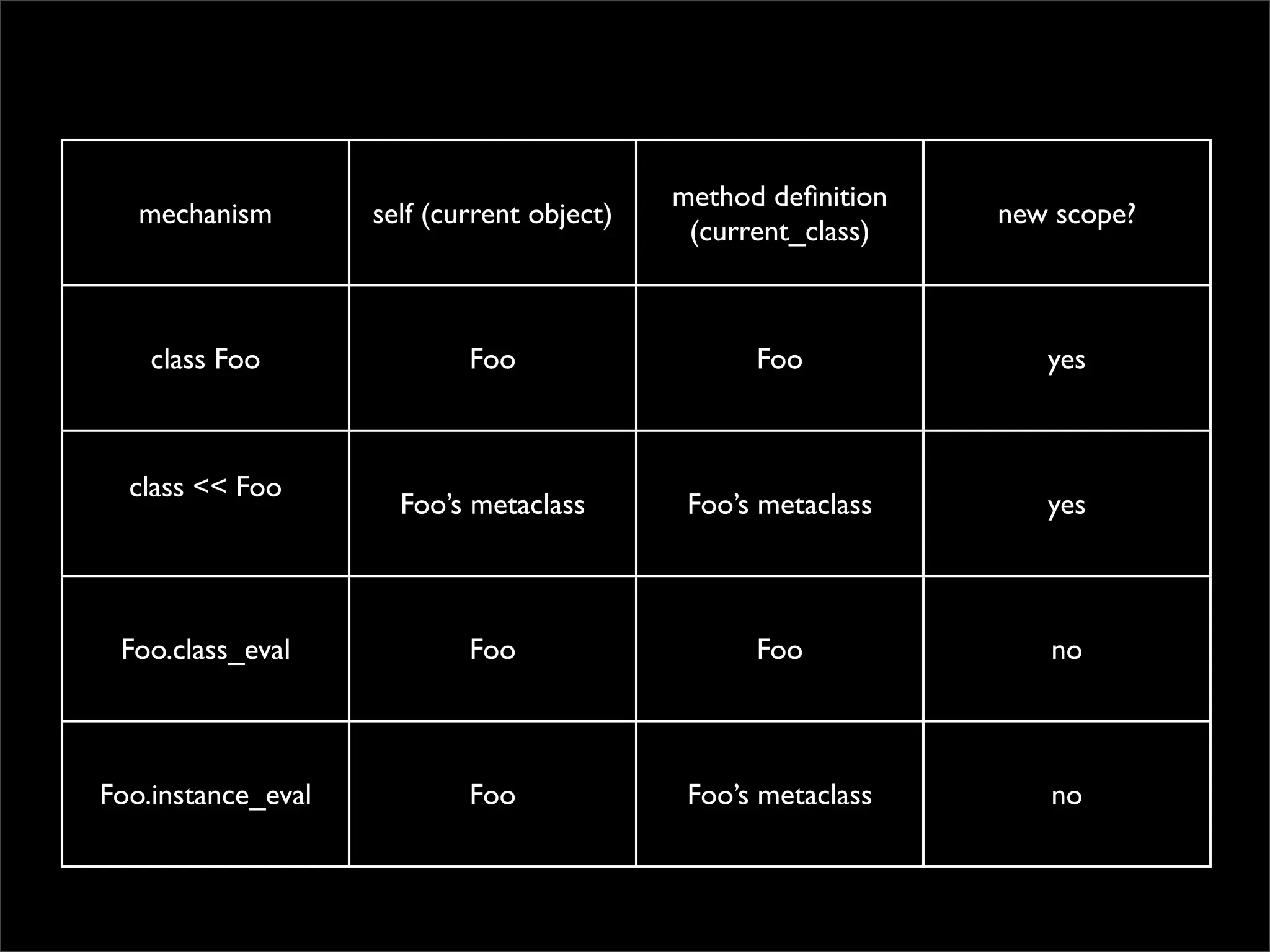

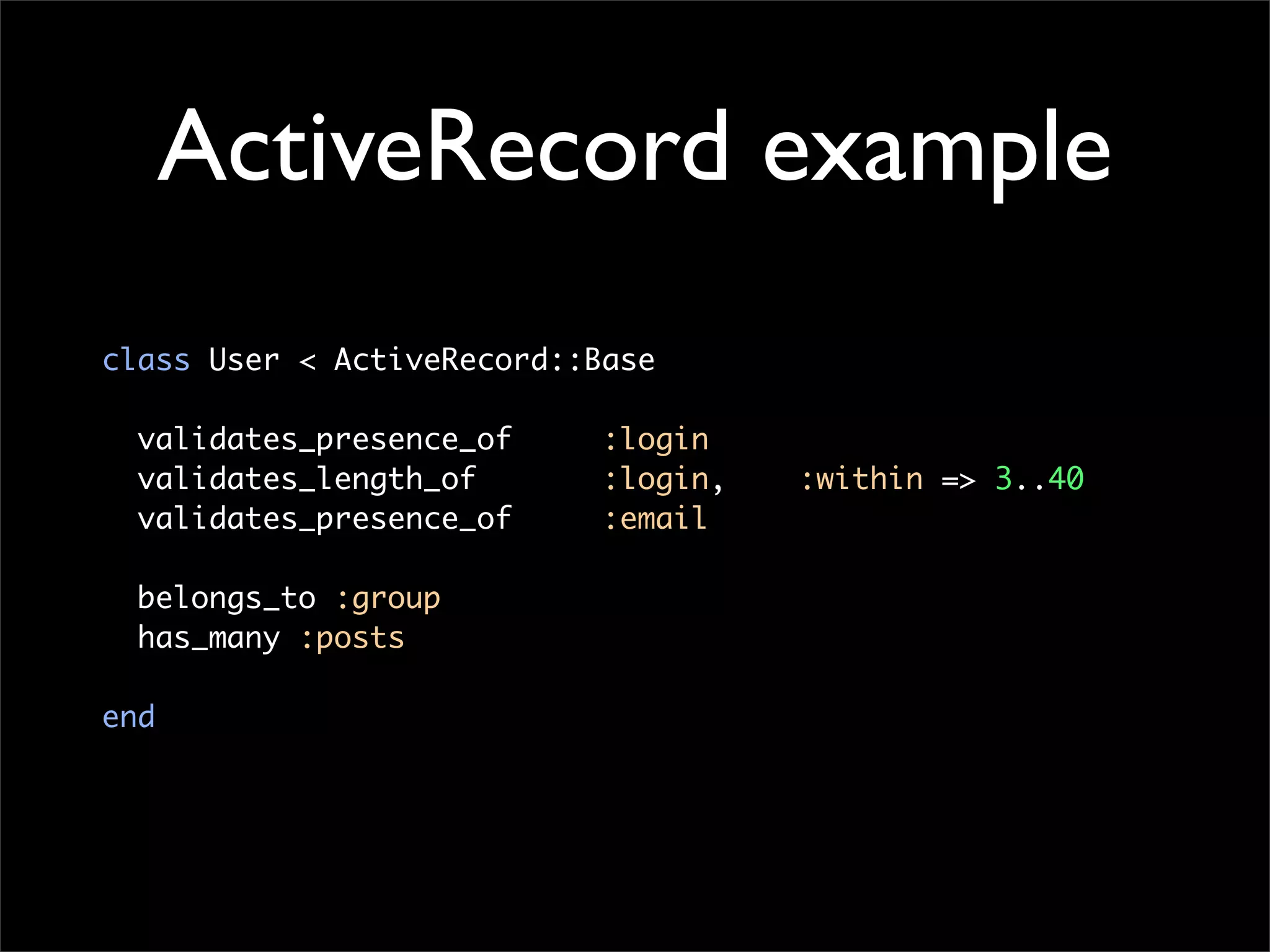
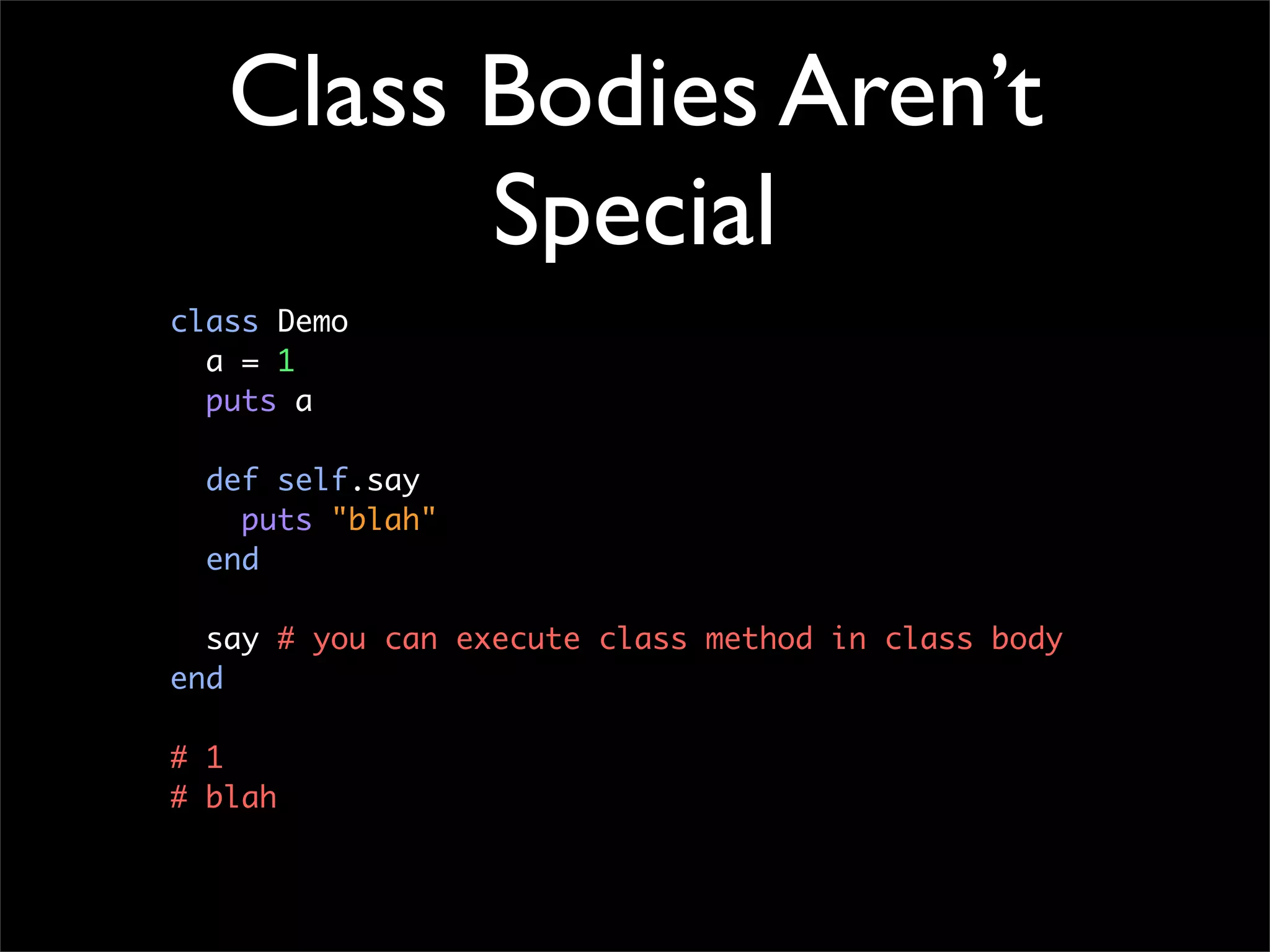
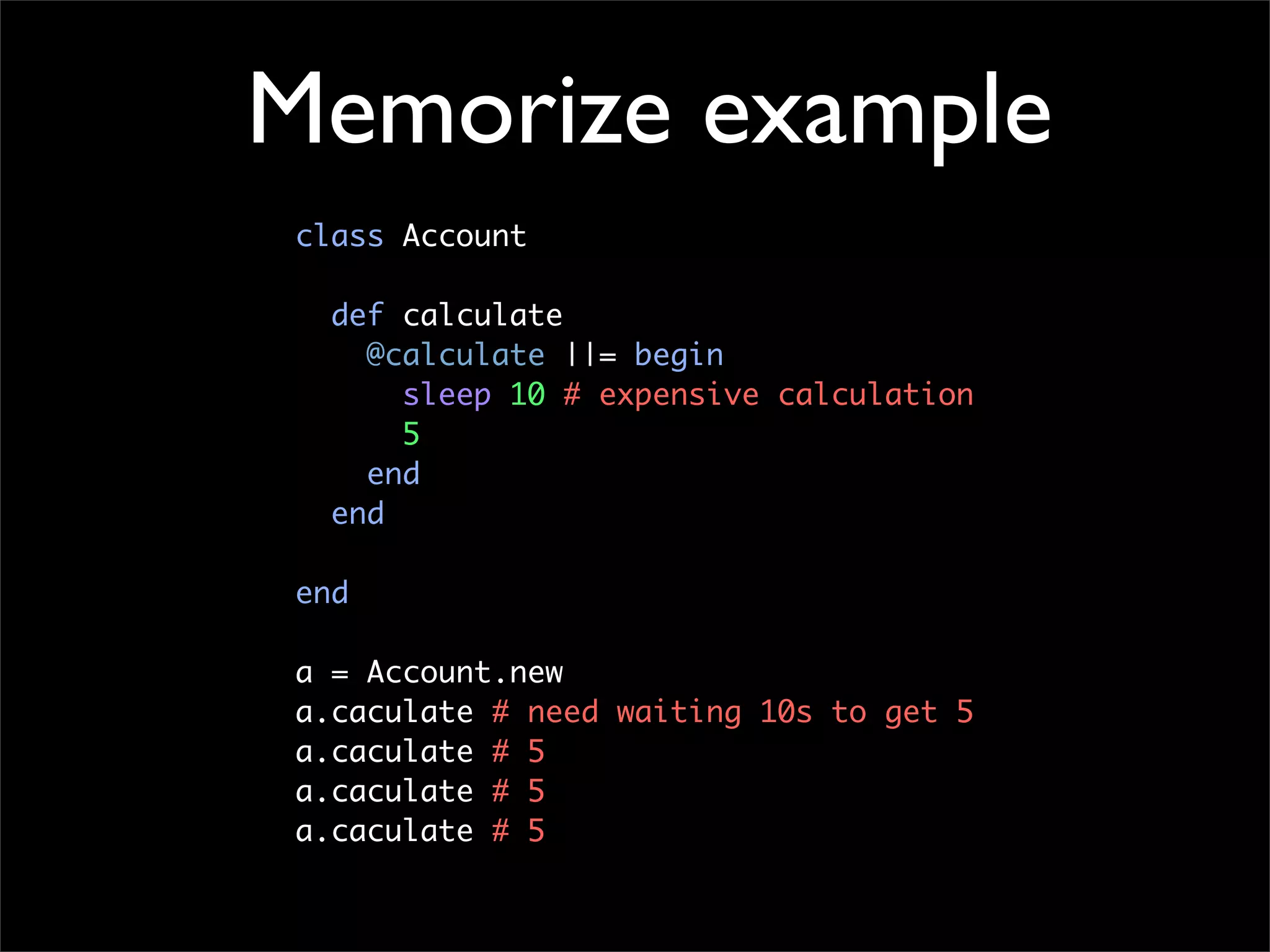
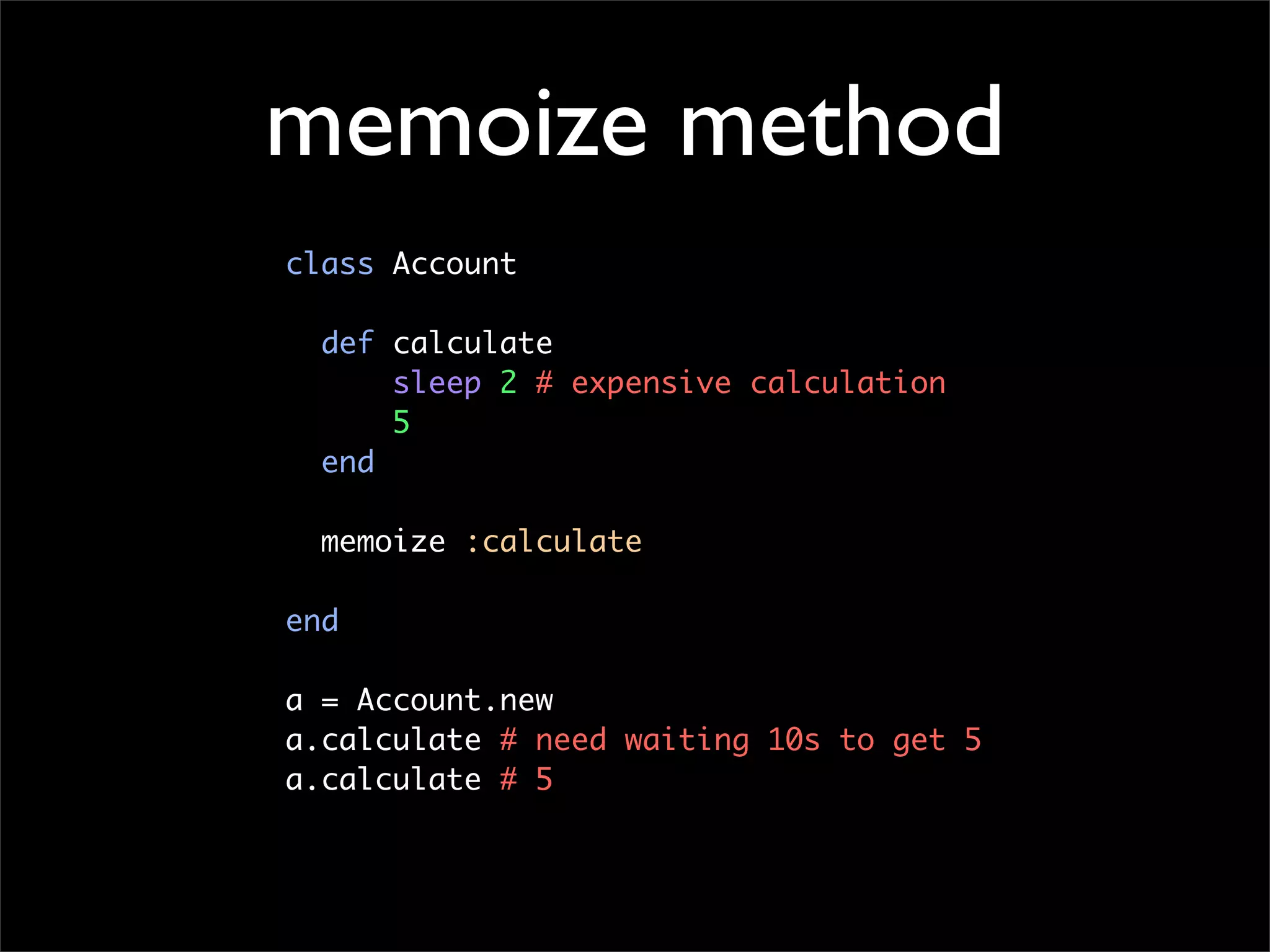
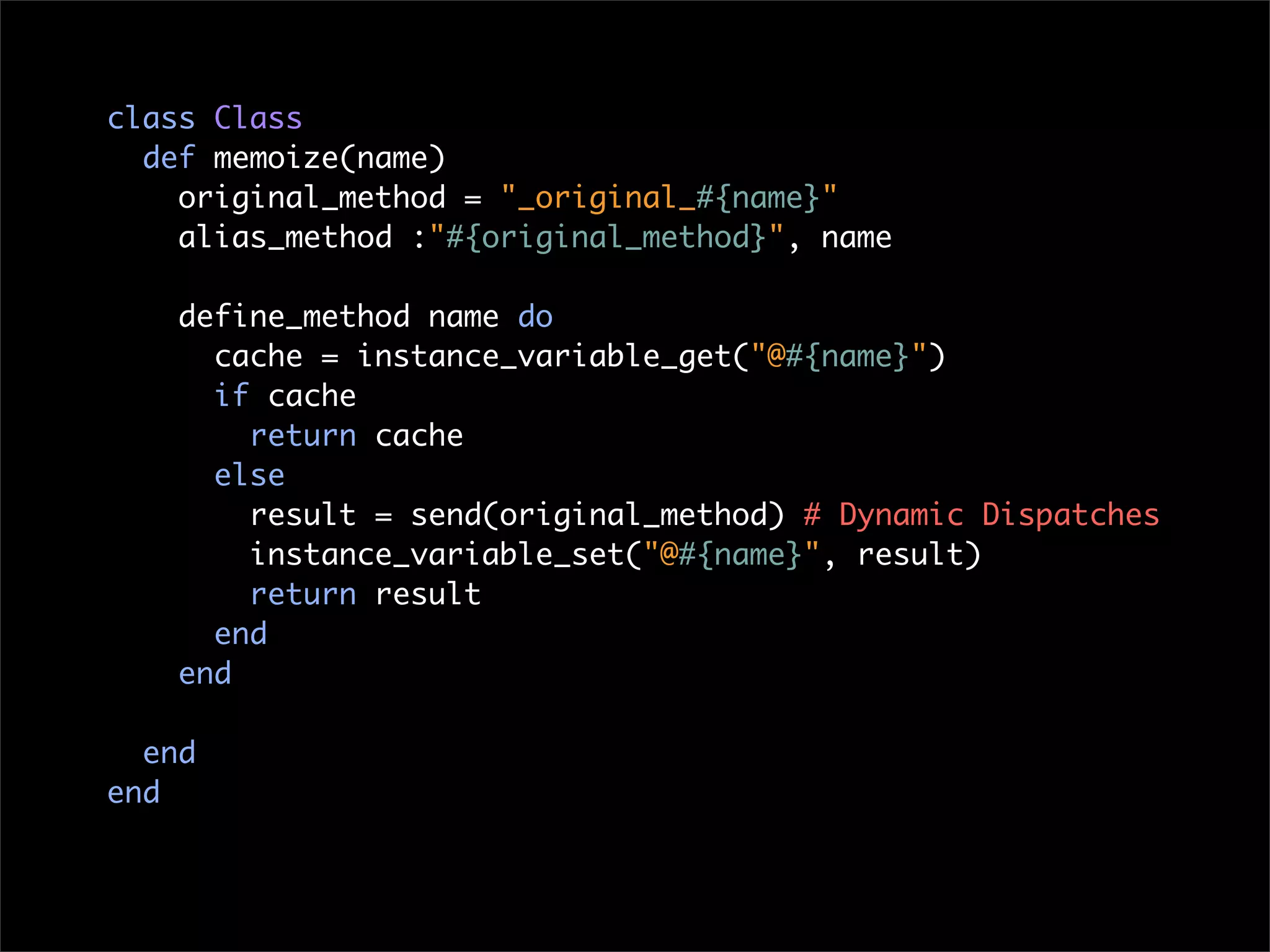
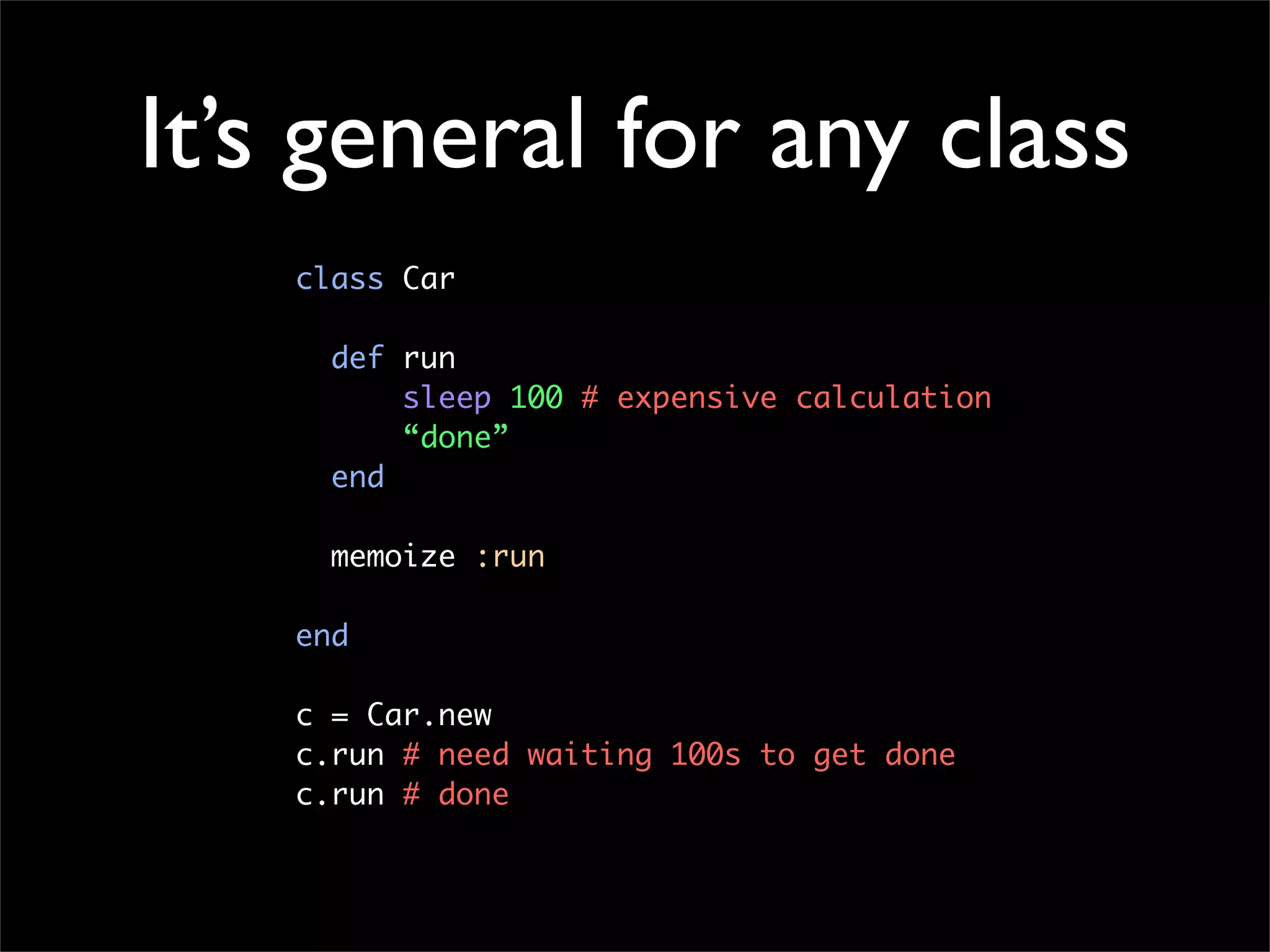
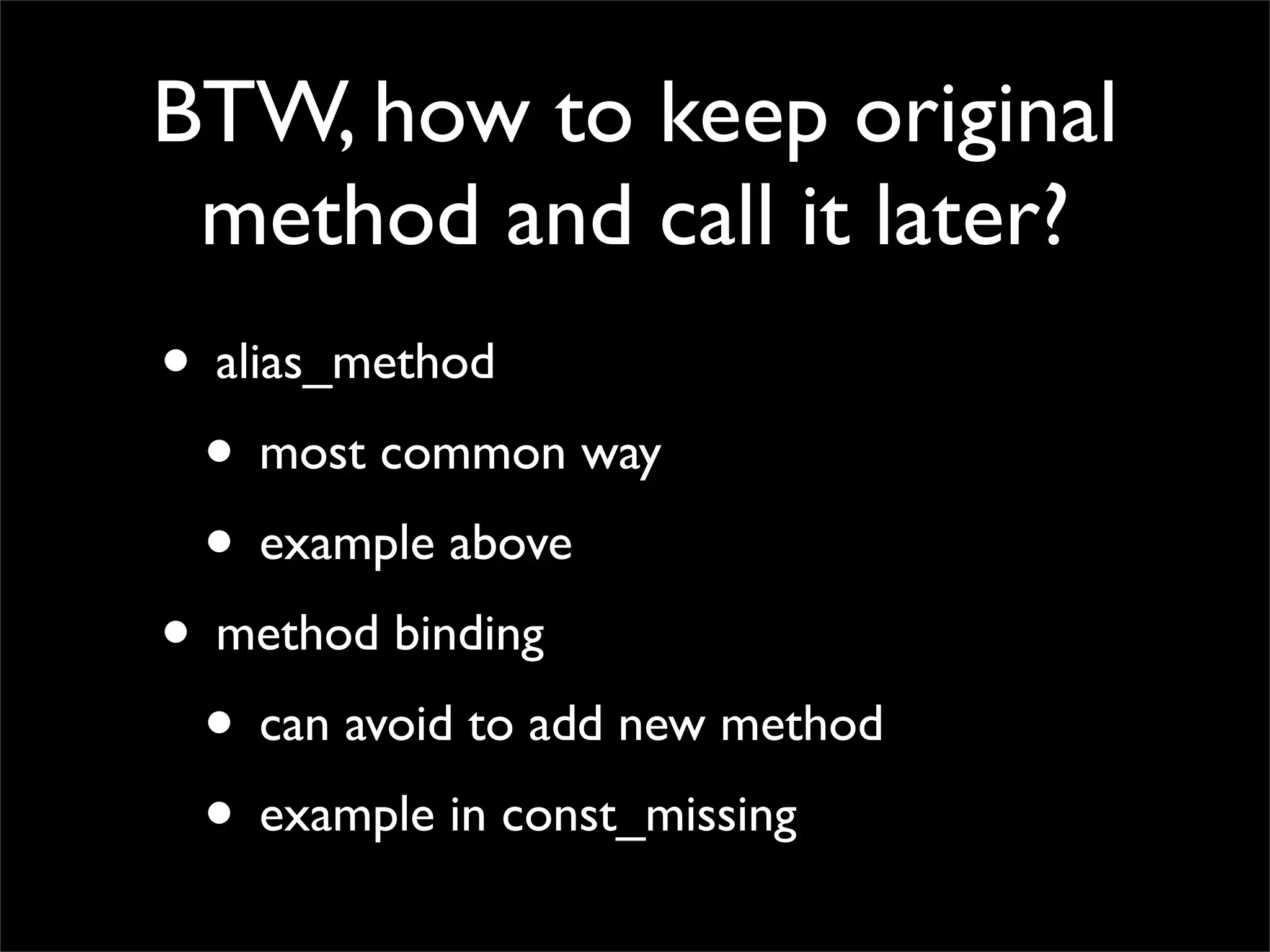

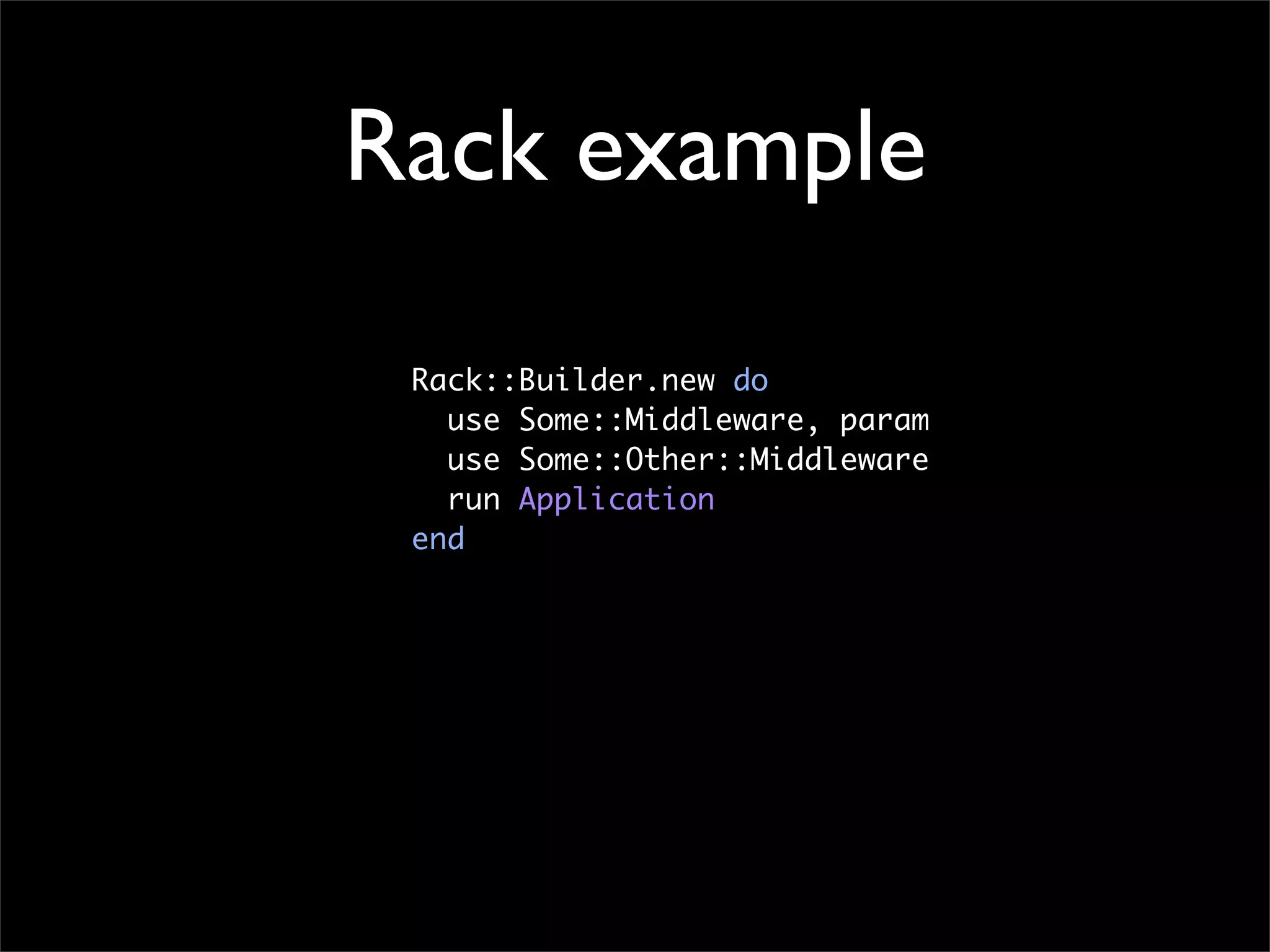
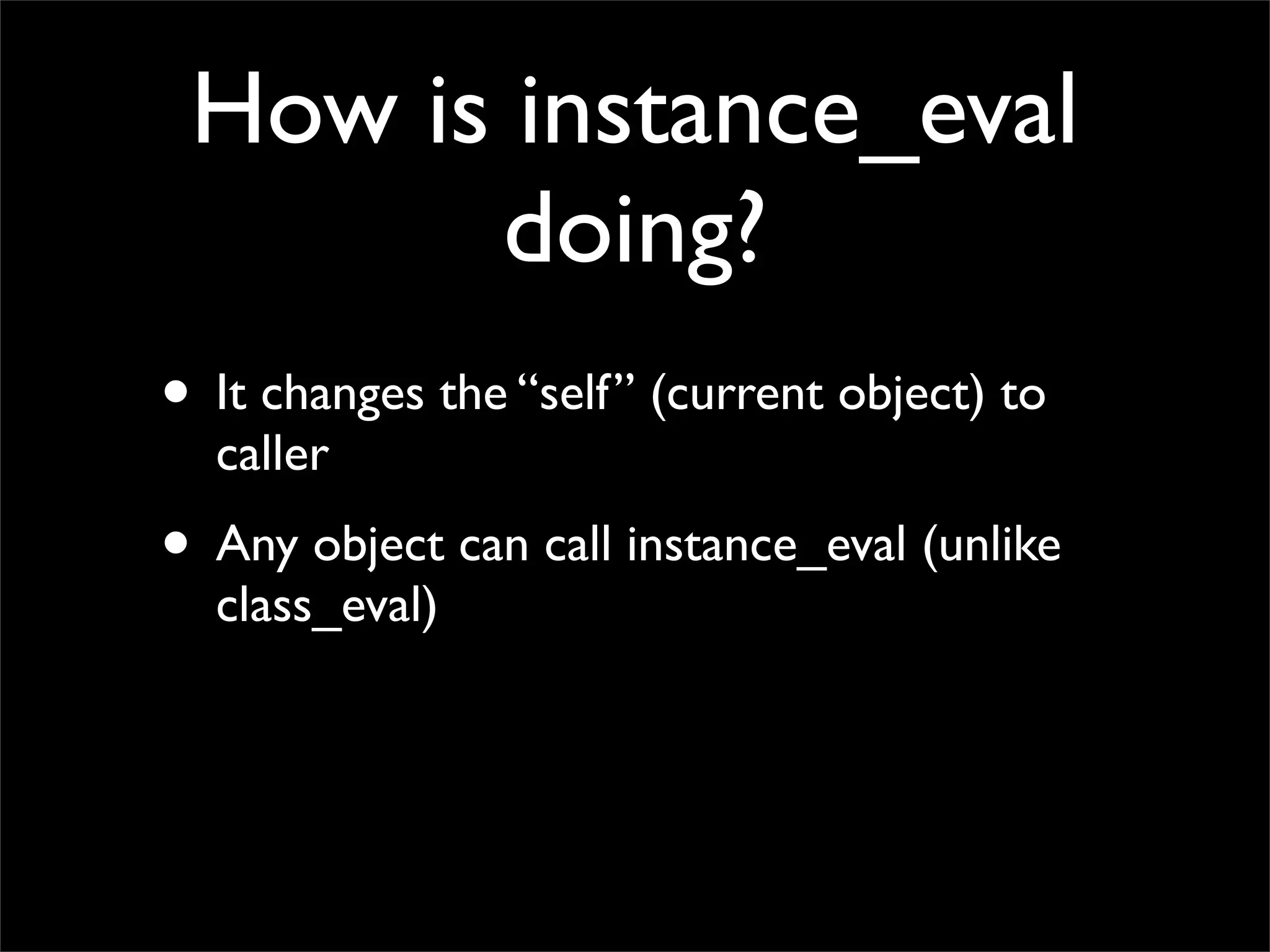
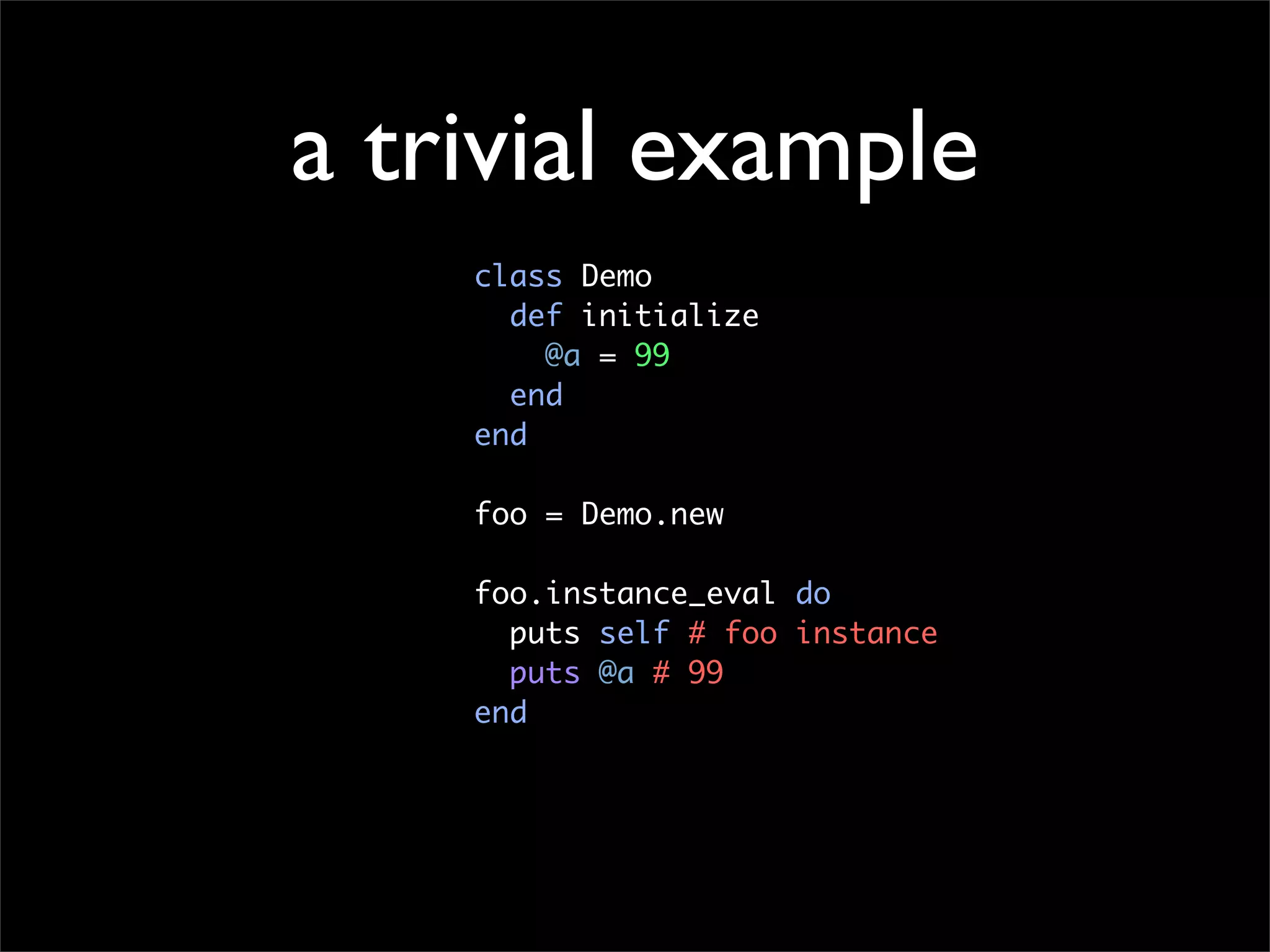
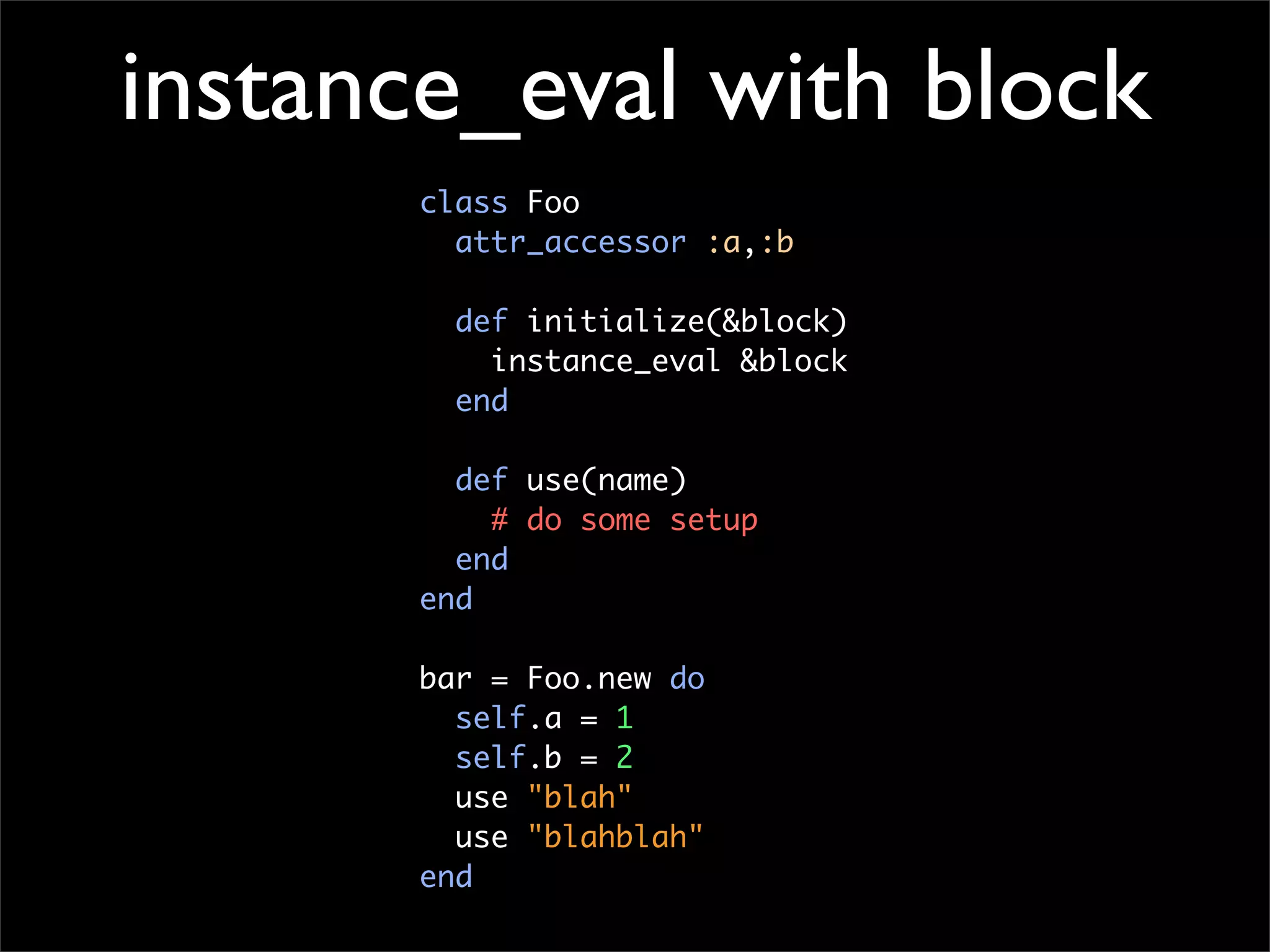
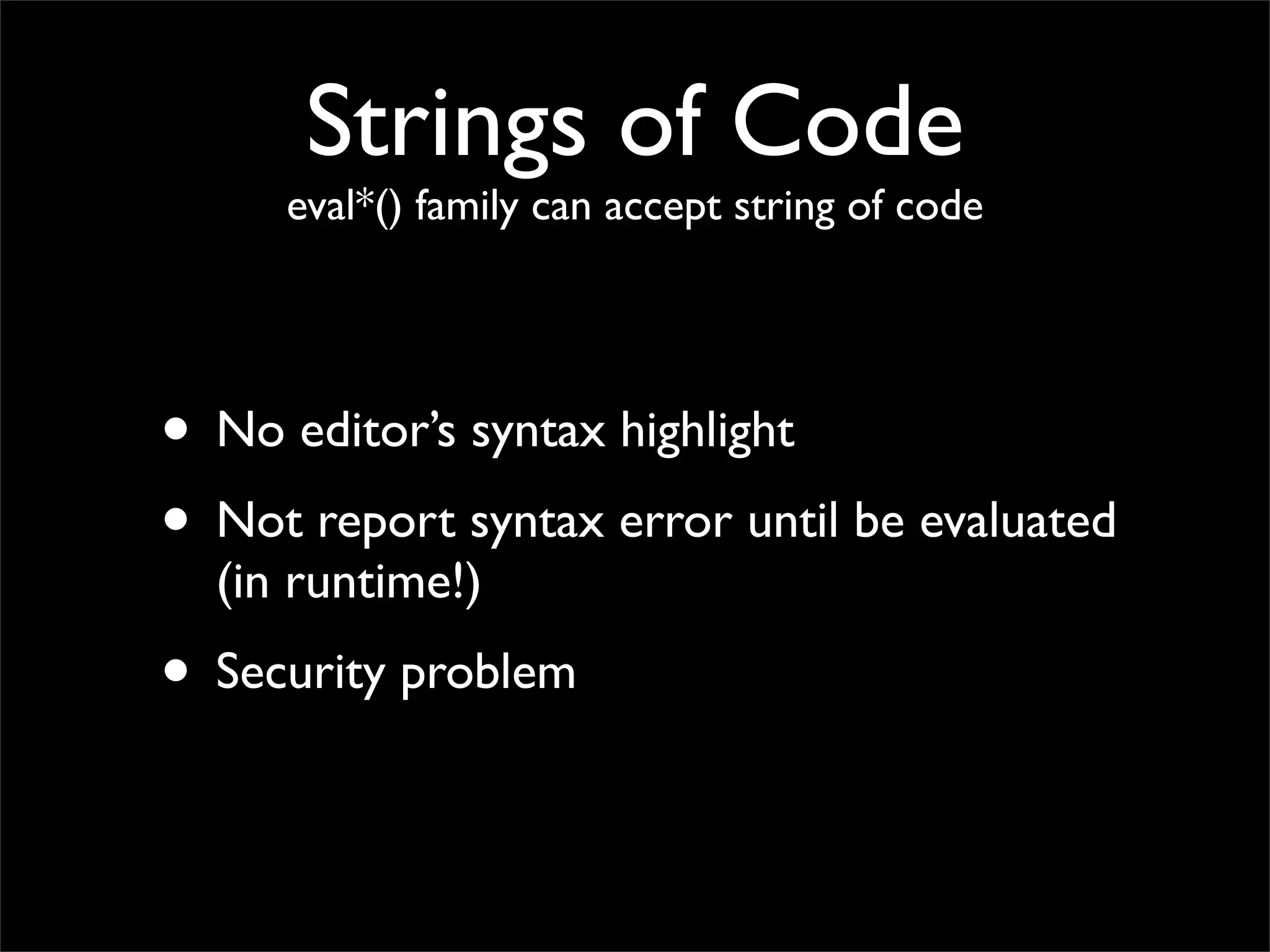

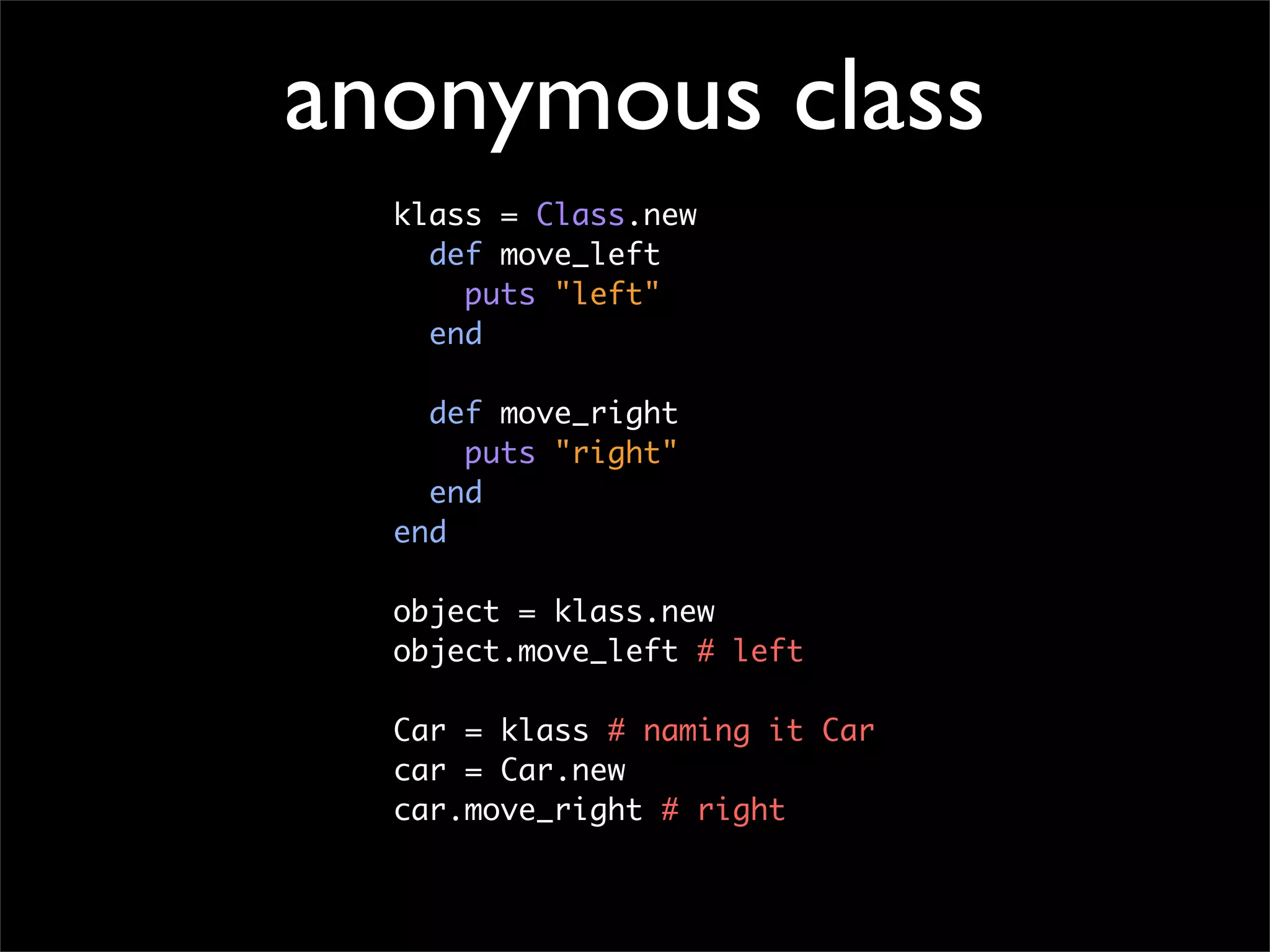
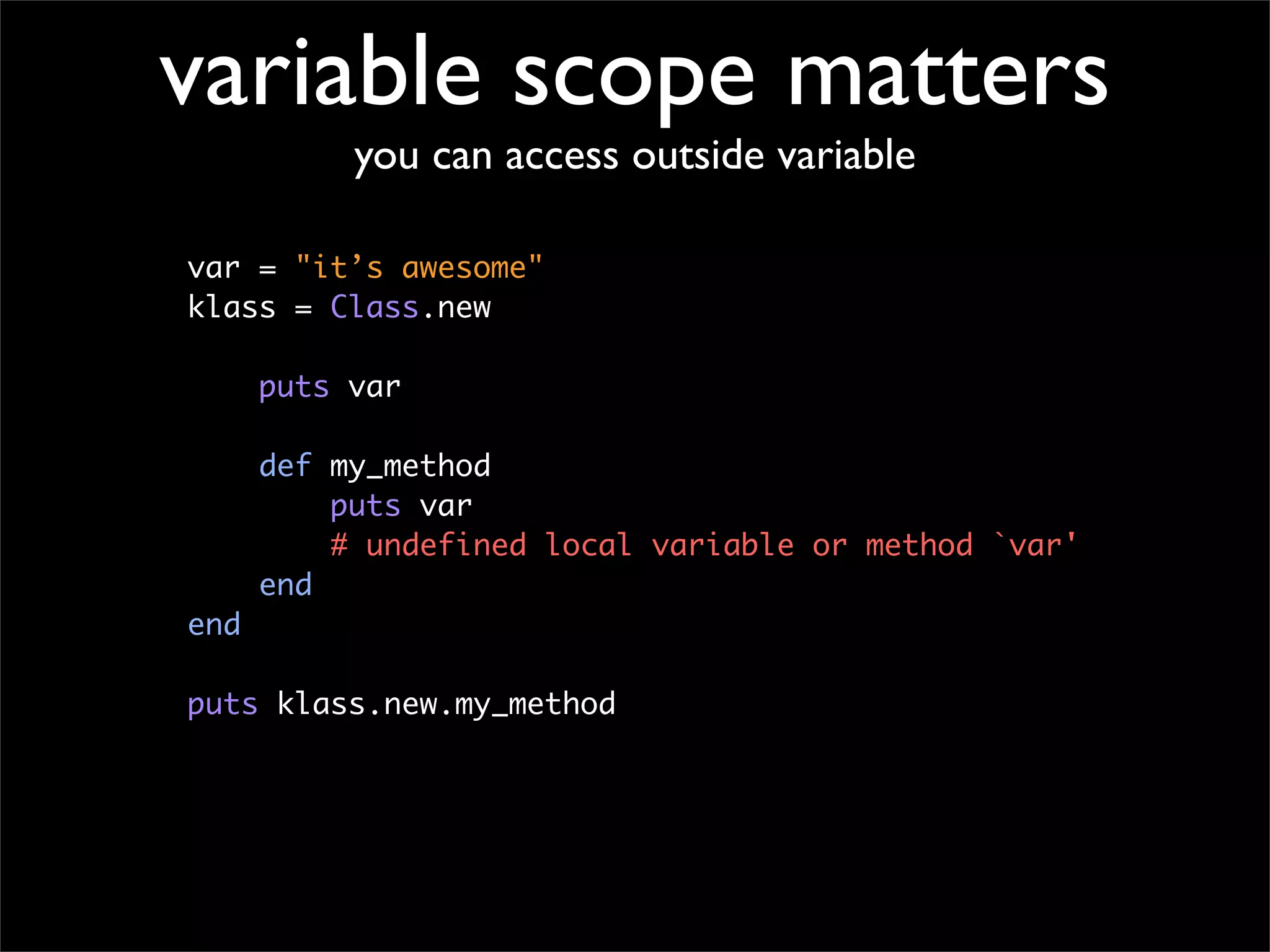
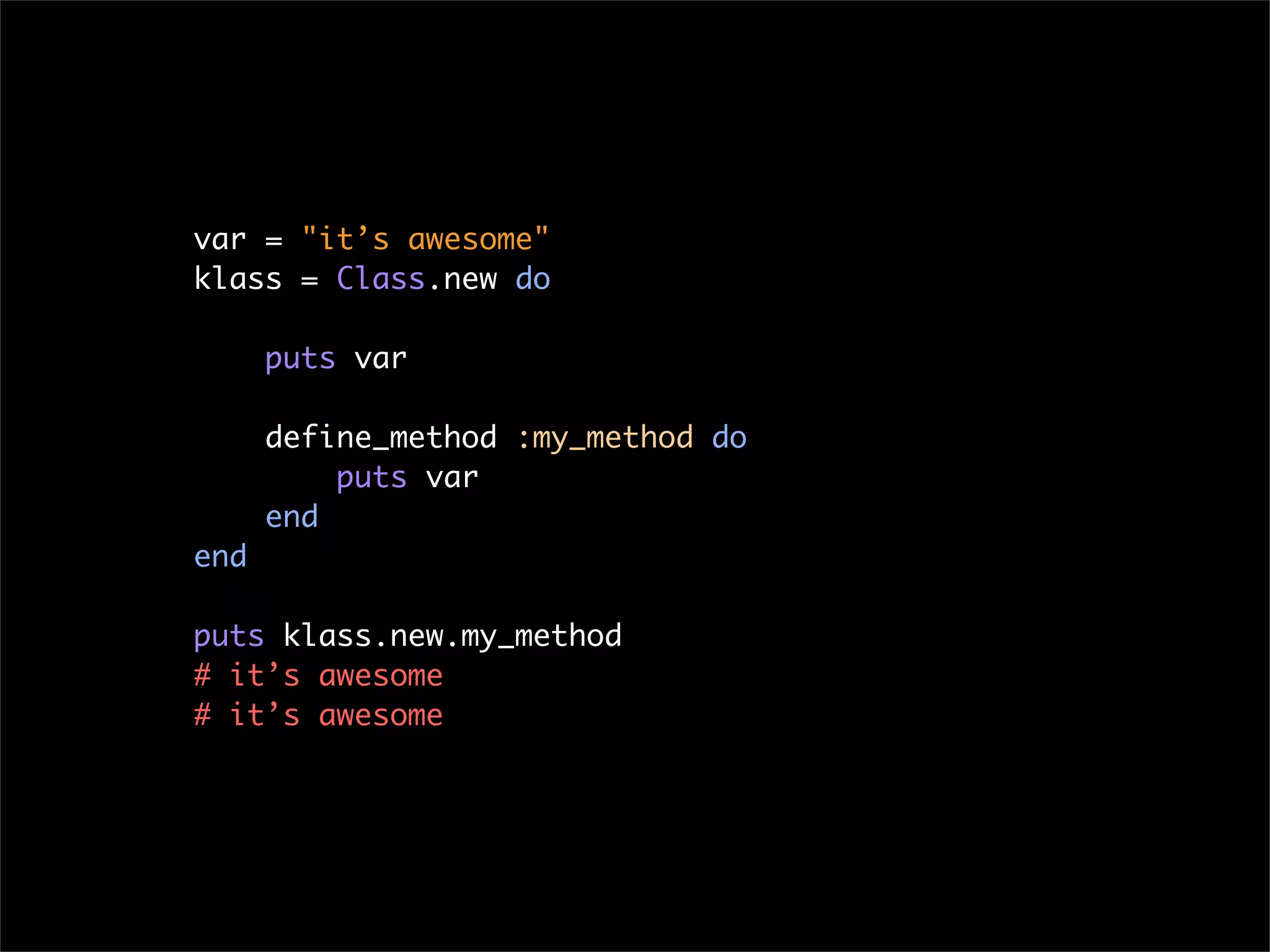
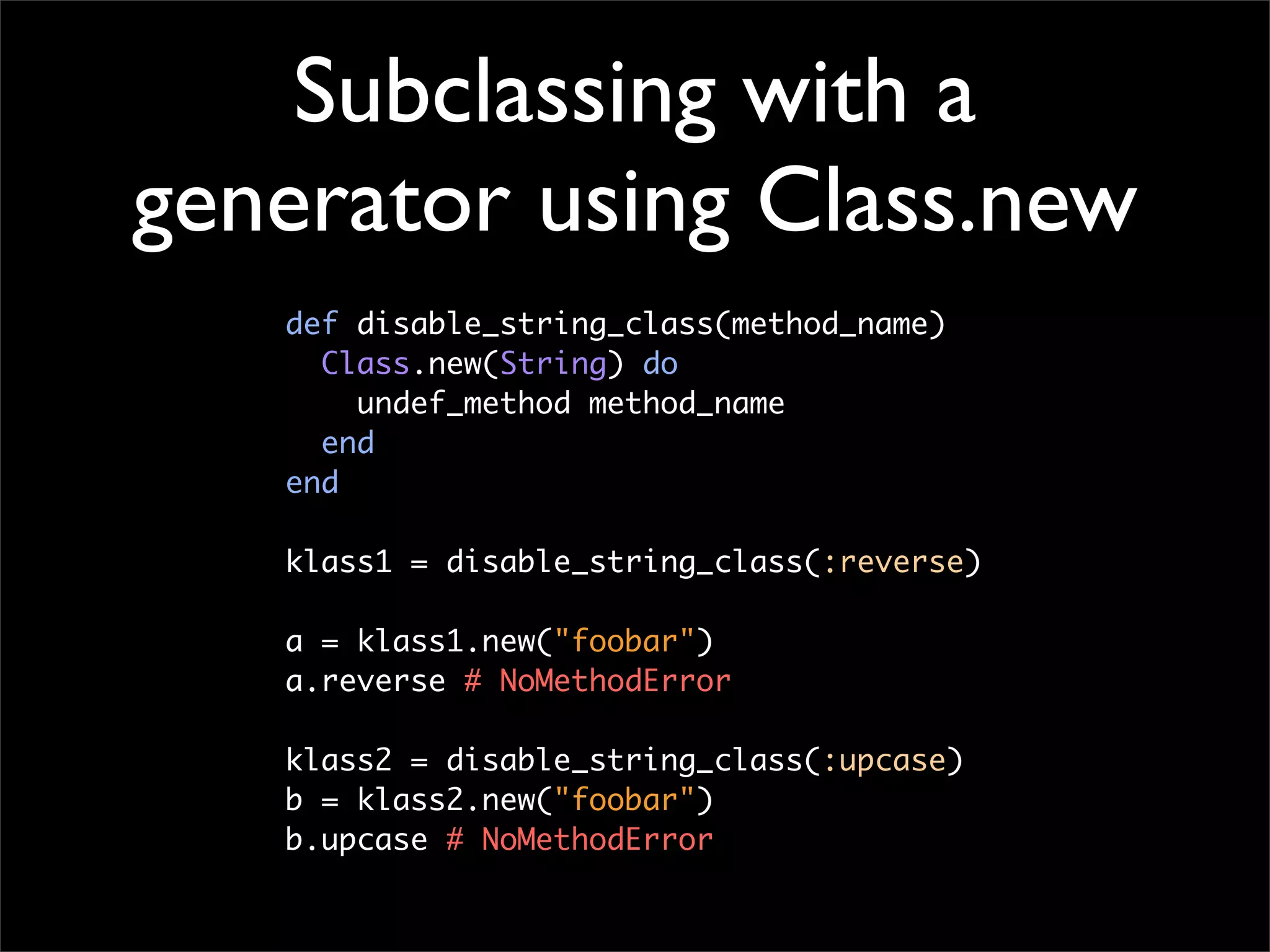
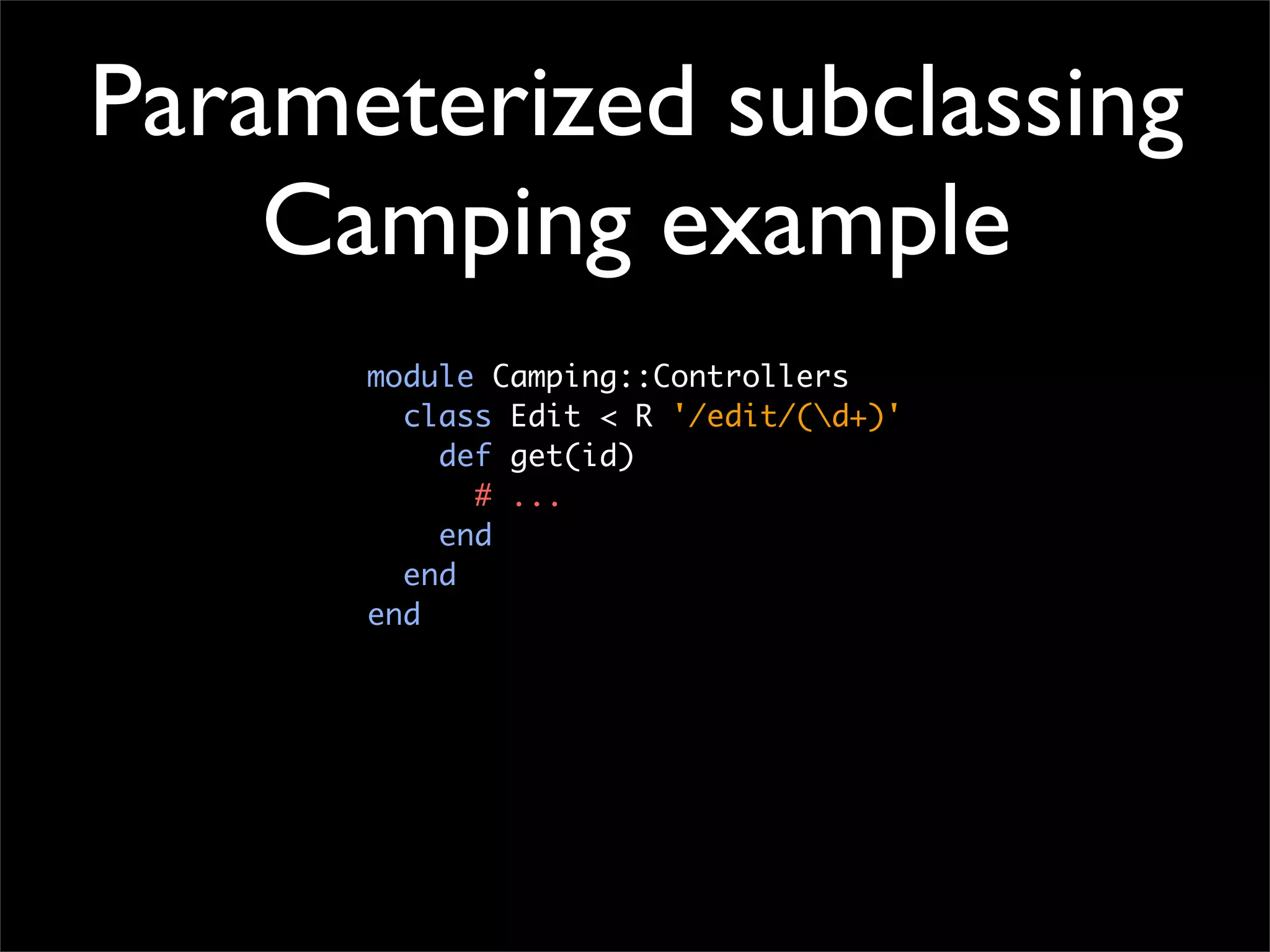
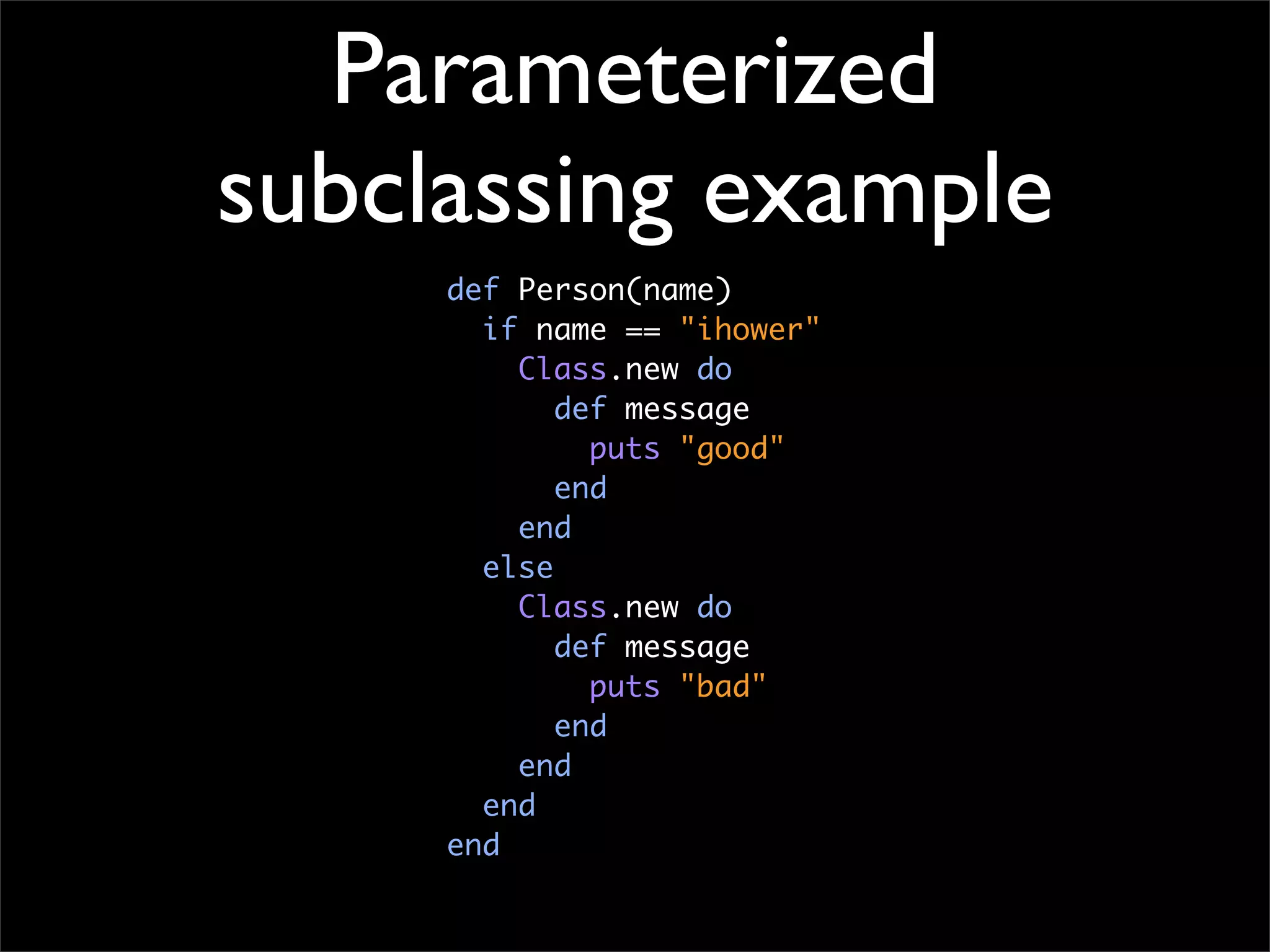
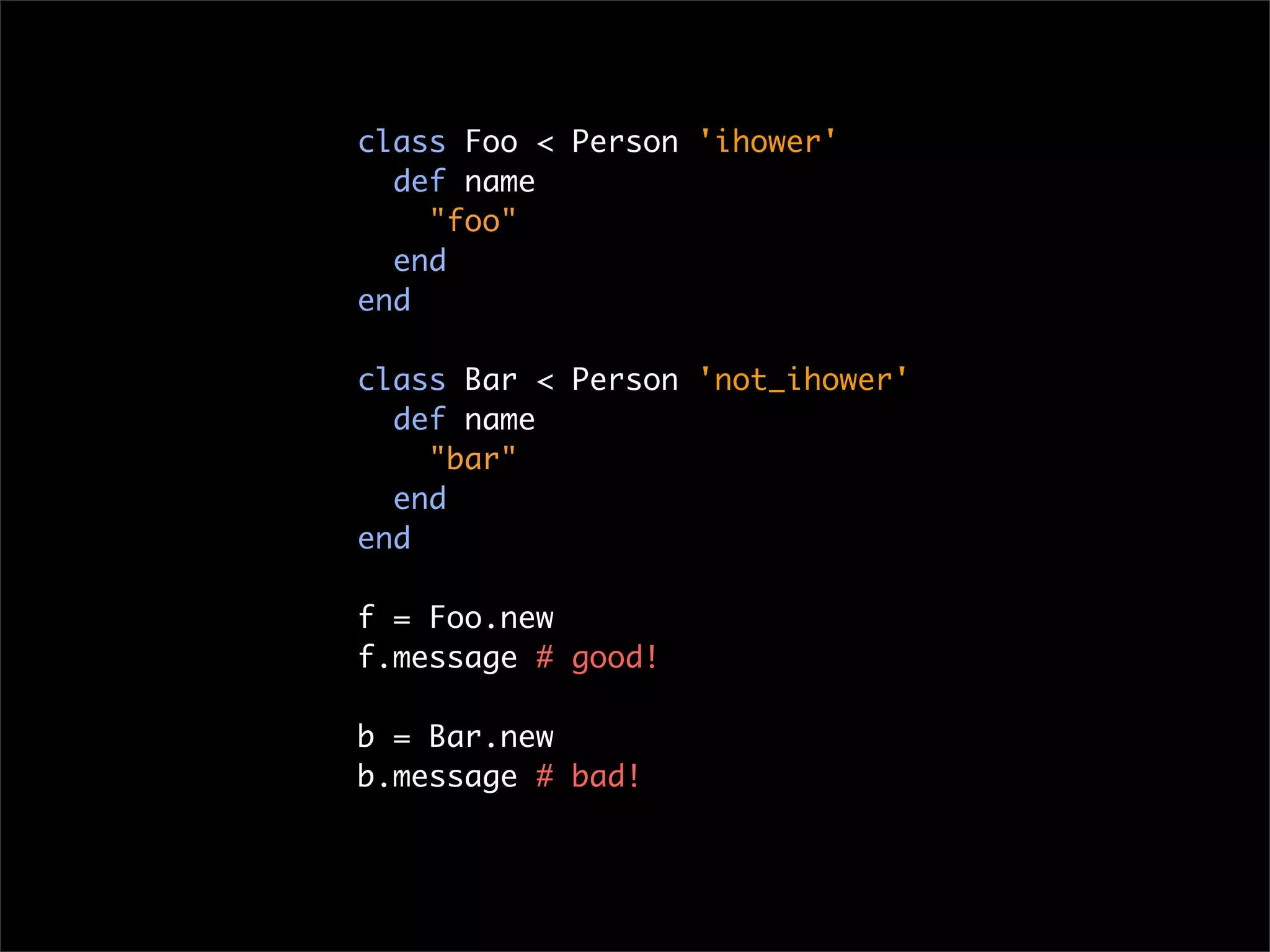


![a DSL class ContactForm < MailForm::Base to "jose.valim@plataformatec.com.br" from "contact_form@app_name.com" subject "Contact form" attributes :name, :email, :message end ContactForm.new(params[:contact_form]).deliver](https://image.slidesharecdn.com/designing-ruby-apis-100424202457-phpapp01/75/Designing-Ruby-APIs-122-2048.jpg)
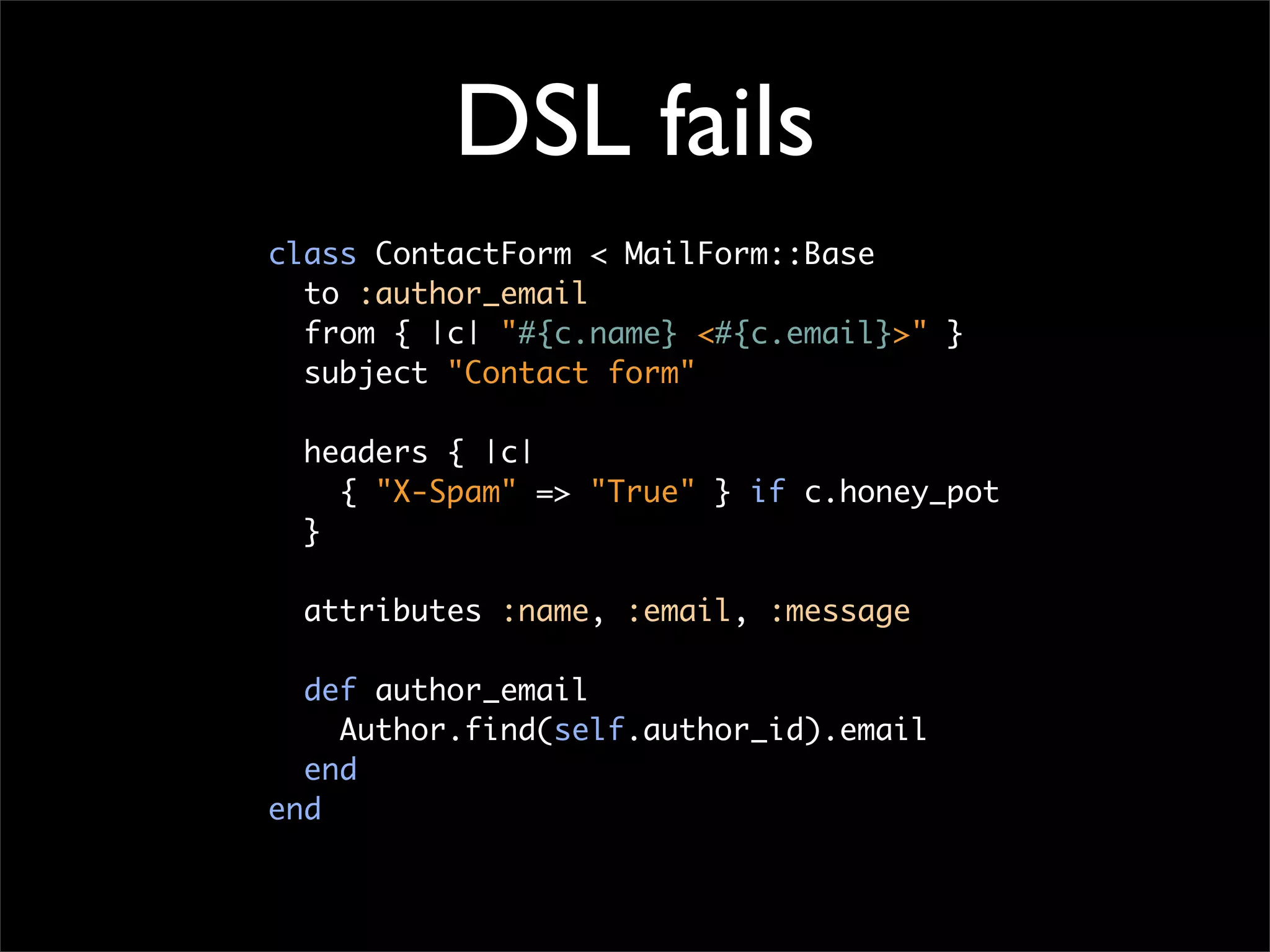
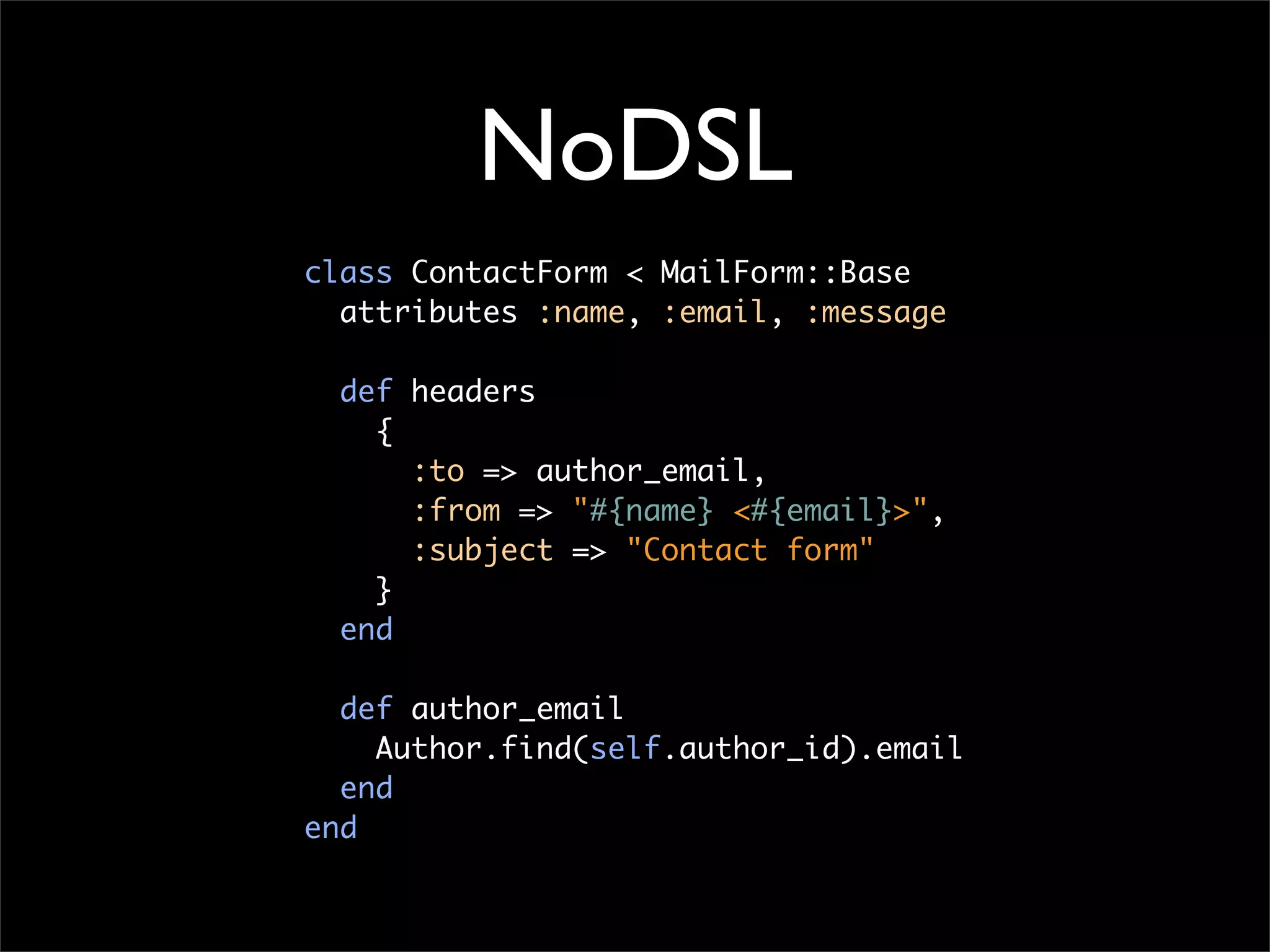

![Rake example task :process do # do some processing end namespace :app do task :setup do # do some setup Rake::Task[:process].invoke end end rake app:setup](https://image.slidesharecdn.com/designing-ruby-apis-100424202457-phpapp01/75/Designing-Ruby-APIs-126-2048.jpg)
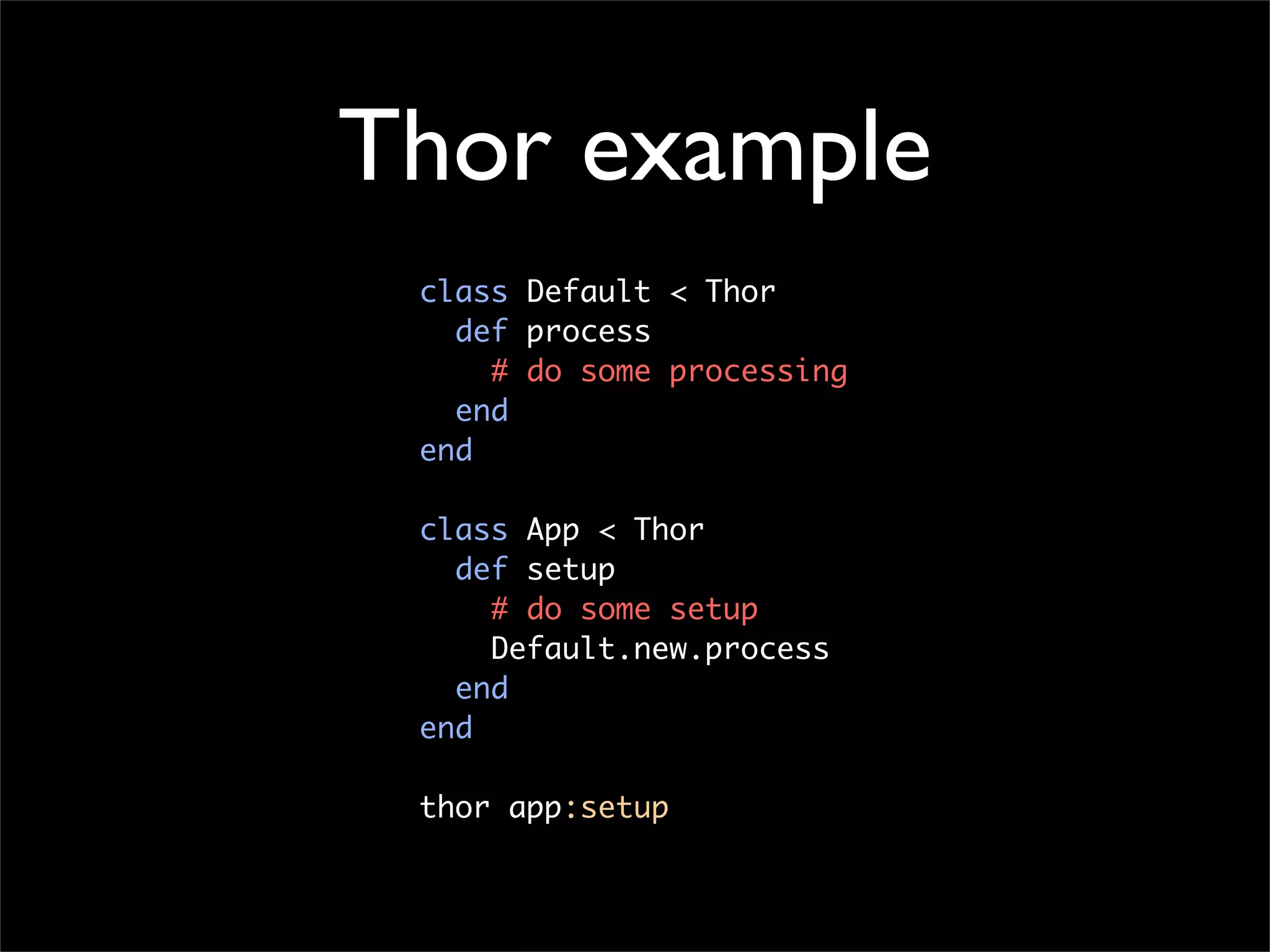
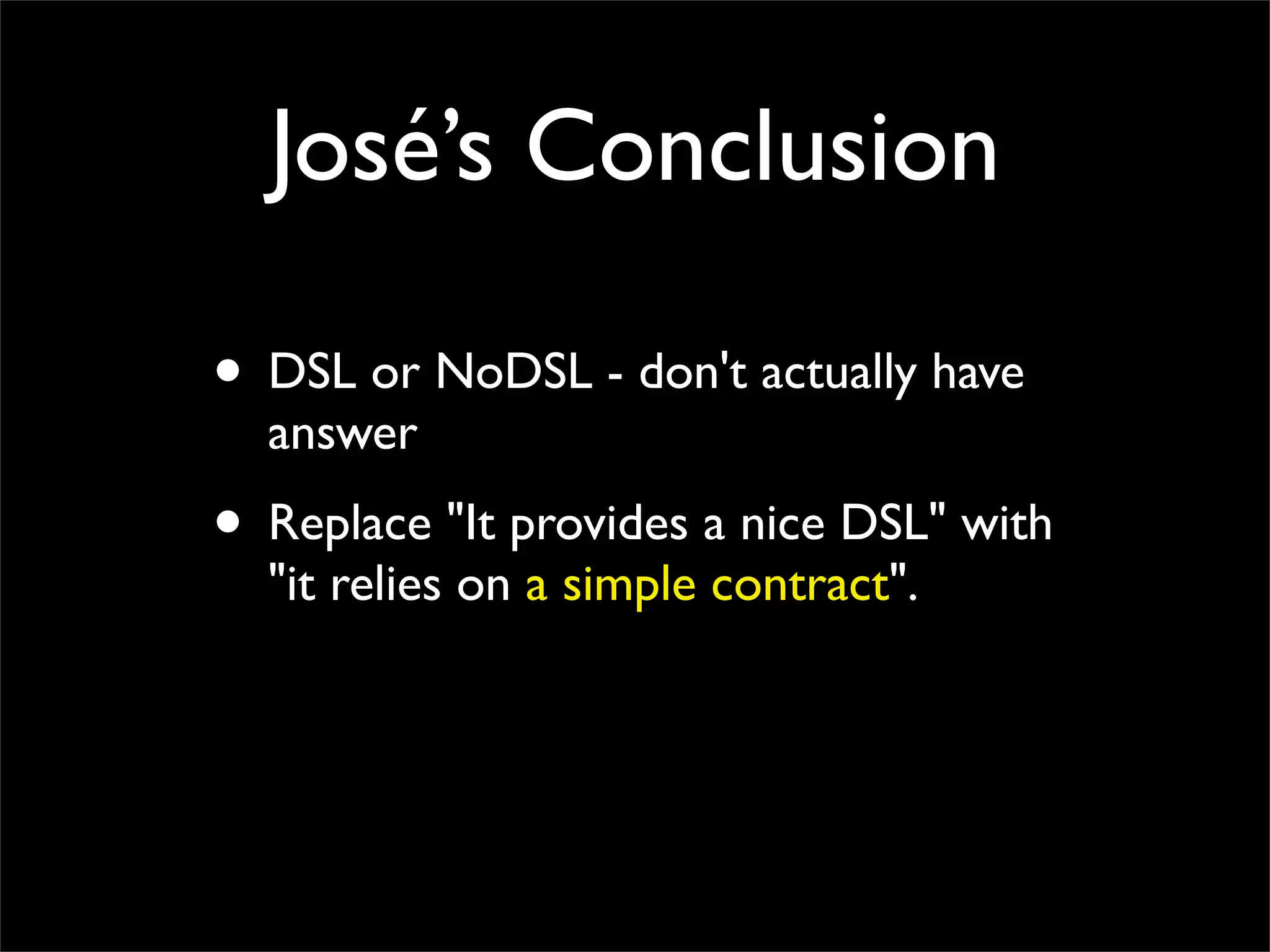

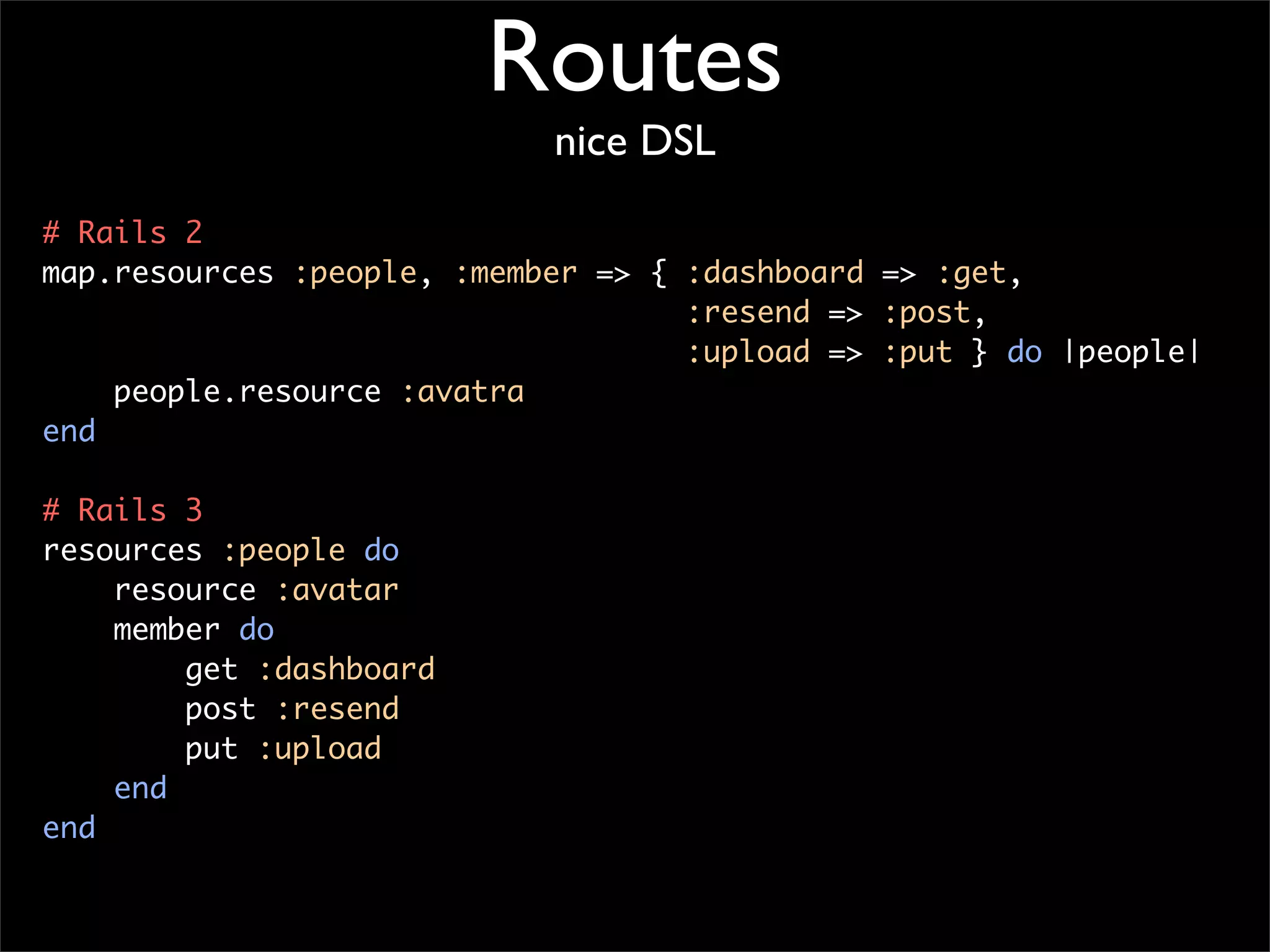
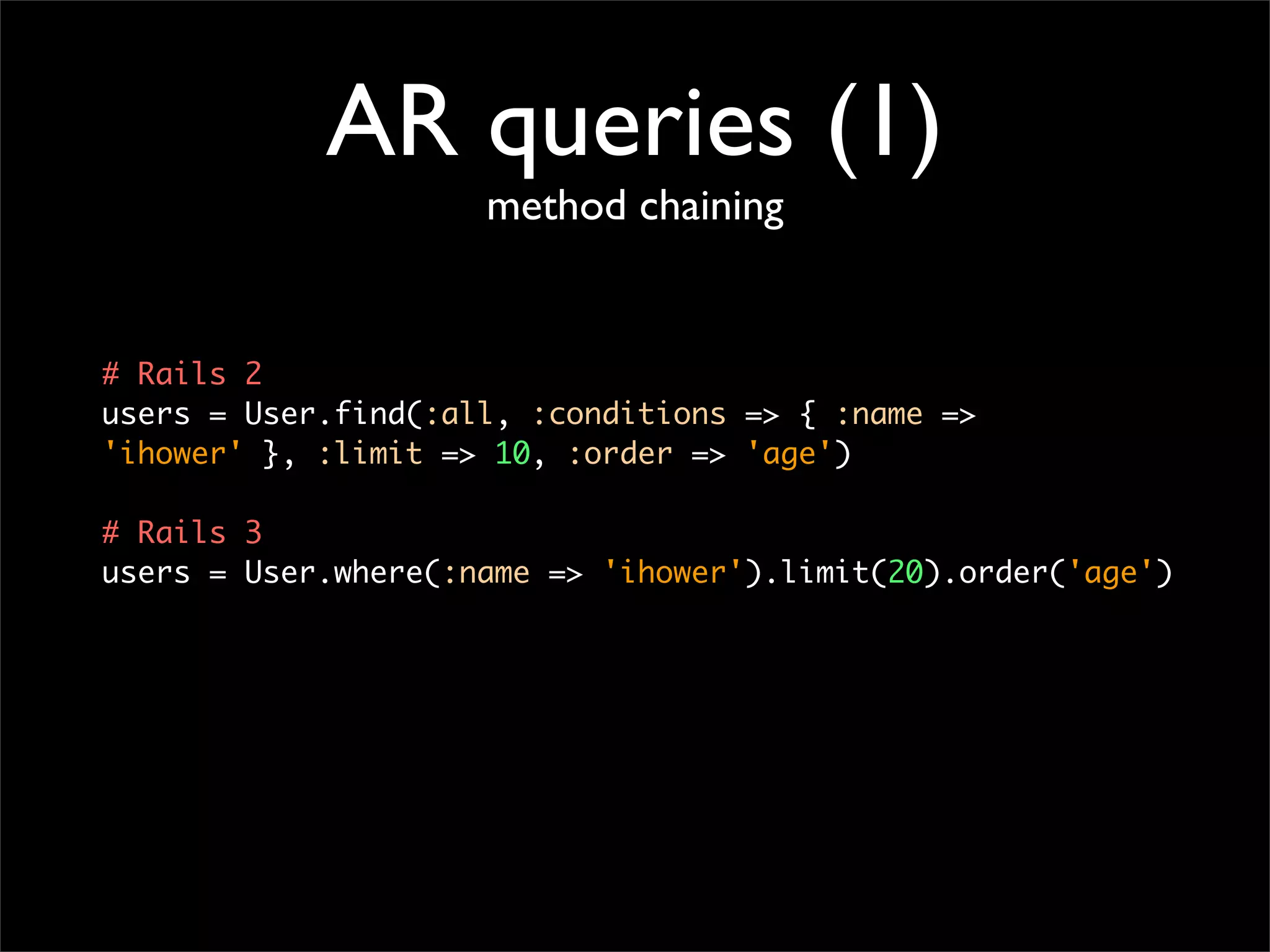
![AR queries (2) Unify finders, named_scope, with_scope to Relation # Rails 2 users = User users = users.some_named_scope if params[:some] sort = params[:sort] || "id" conditions = {} if params[:name] conditions = User.merge_conditions( conditions, { :name => params[:name] } ) end if params[:age] conditions = User.merge_conditions( conditions, { :age => params[:age] } ) end find_conditions = { :conditions => conditions, :order => "#{sort} #{dir}" } sort = params[:sort] || "id" users = users.find(:all, :conditions => conditions, :order => sort )](https://image.slidesharecdn.com/designing-ruby-apis-100424202457-phpapp01/75/Designing-Ruby-APIs-132-2048.jpg)
![AR queries (2) Unify finders, named_scope, with_scope to Relation # Rails 3 users = User users = users.some_scope if params[:some] users = users.where( :name => params[:name] ) if params[:name] users = users.where( :age => params[:age] ) if params[:age] users = users.order( params[:sort] || "id" )](https://image.slidesharecdn.com/designing-ruby-apis-100424202457-phpapp01/75/Designing-Ruby-APIs-133-2048.jpg)
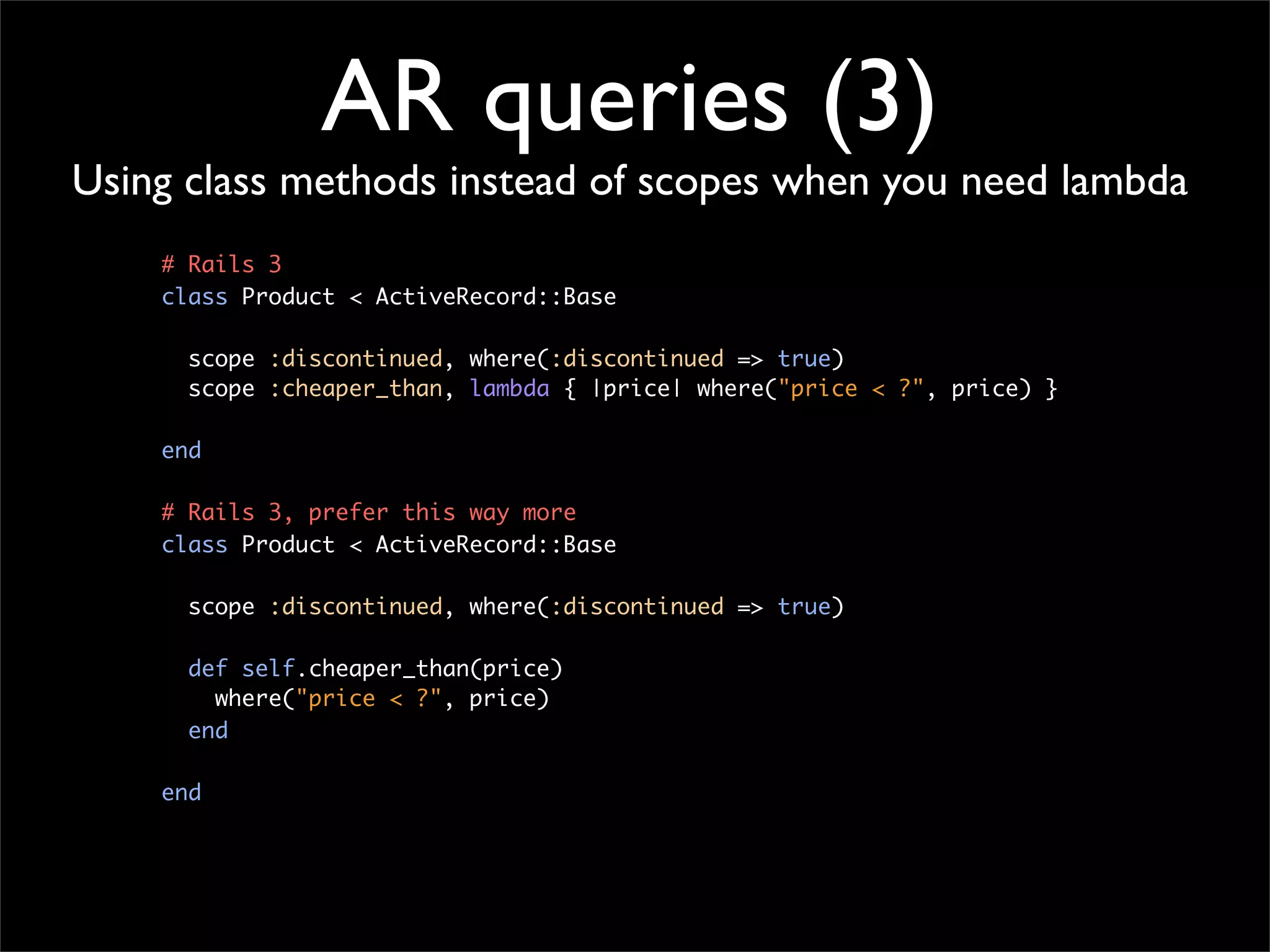
![AR validation (1) # Rails 2 class User < ActiveRecord::Base validates_presence_of :email validates_uniqueness_of :email validates_format_of :email, :with => /^[wd]+$/ :on => :create, :message => "is invalid" end # Rails 3 class User < ActiveRecord::Base validates :email, :presence => true, :uniqueness => true, :format => { :with => /^([^@s]+)@((?:[-a-z0-9]+.)+[a-z]{2,})$/i } end http://asciicasts.com/episodes/211-validations-in-rails-3](https://image.slidesharecdn.com/designing-ruby-apis-100424202457-phpapp01/75/Designing-Ruby-APIs-135-2048.jpg)
![AR validation (2) custom validator # Rails 3 class User < ActiveRecord::Base validates :email, :presence => true, :uniqueness => true, :email_format => true end class EmailFormatValidator < ActiveModel::EachValidator def validate_each(object, attribute, value) unless value =~ /^([^@s]+)@((?:[-a-z0-9]+.)+[a-z]{2,})$/i object.errors[attribute] << (options[:message] || "is not formatted properly") end end end](https://image.slidesharecdn.com/designing-ruby-apis-100424202457-phpapp01/75/Designing-Ruby-APIs-136-2048.jpg)
